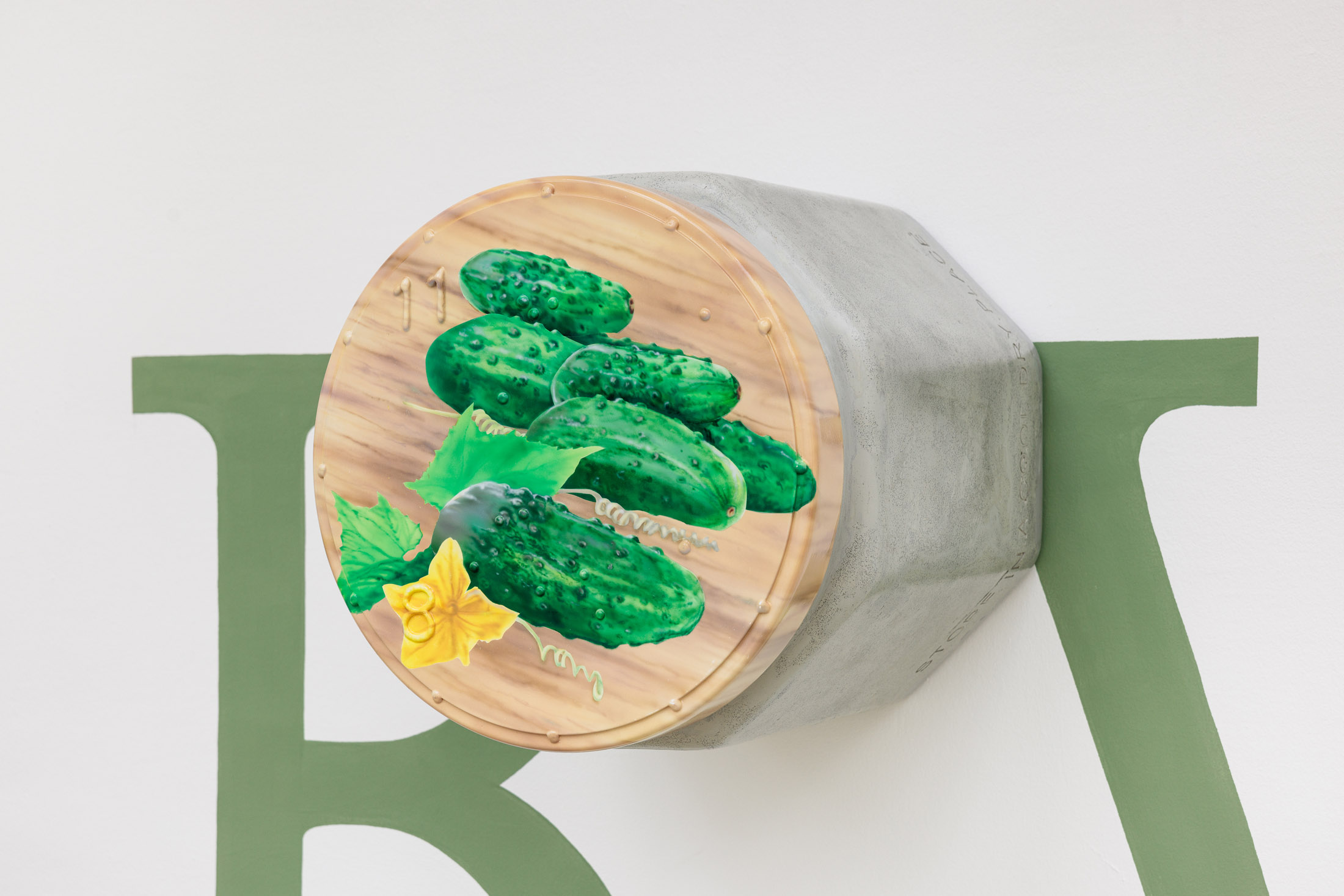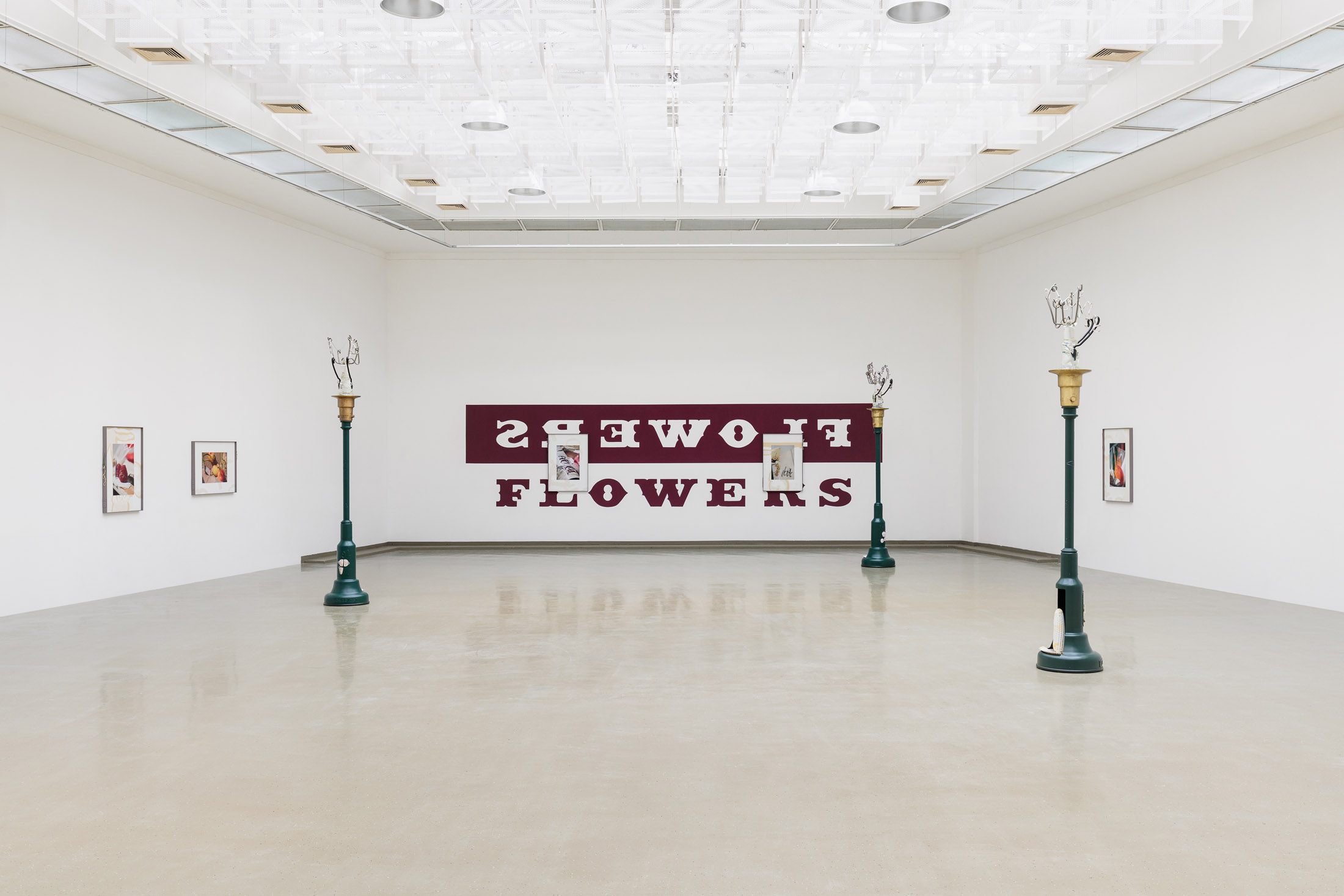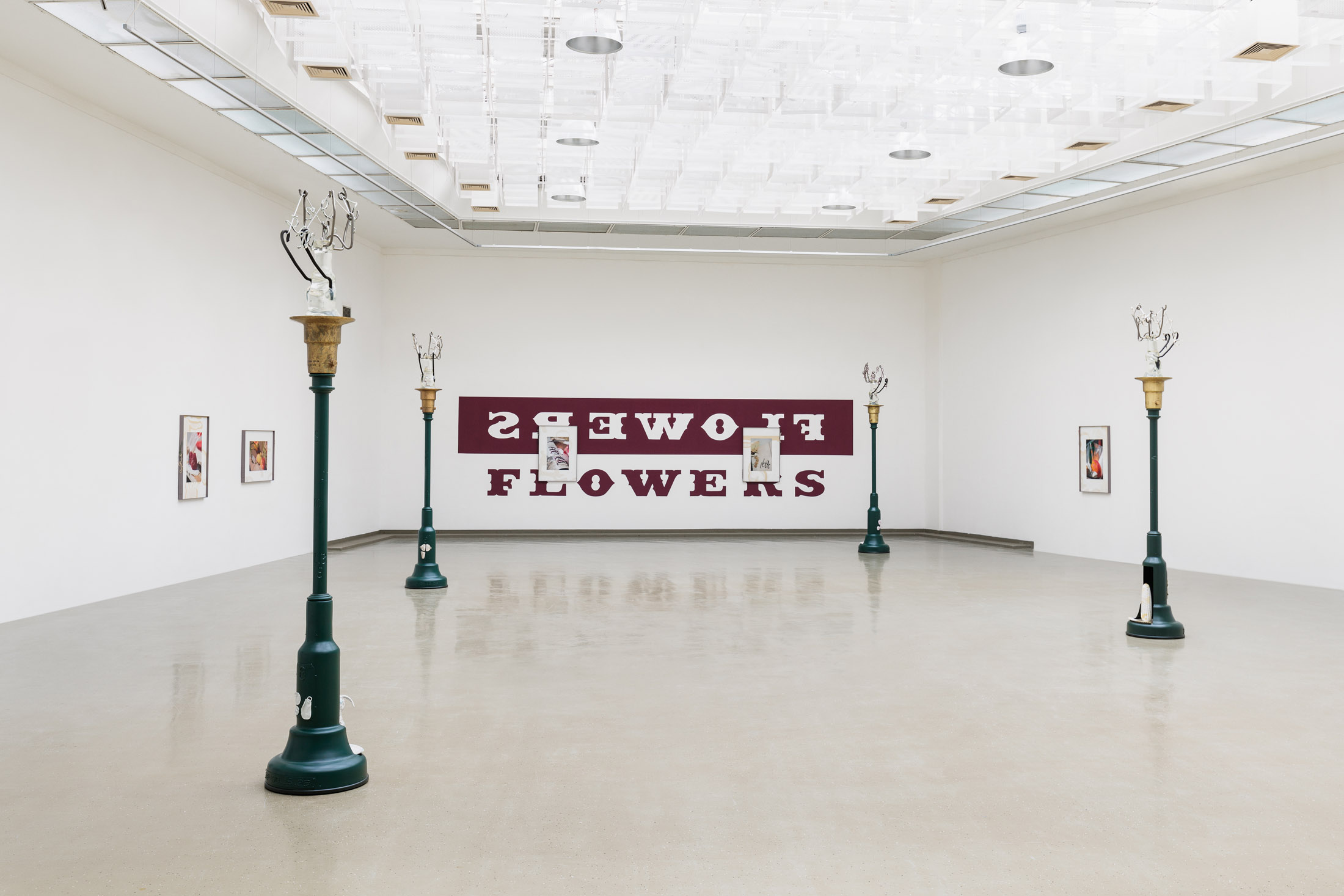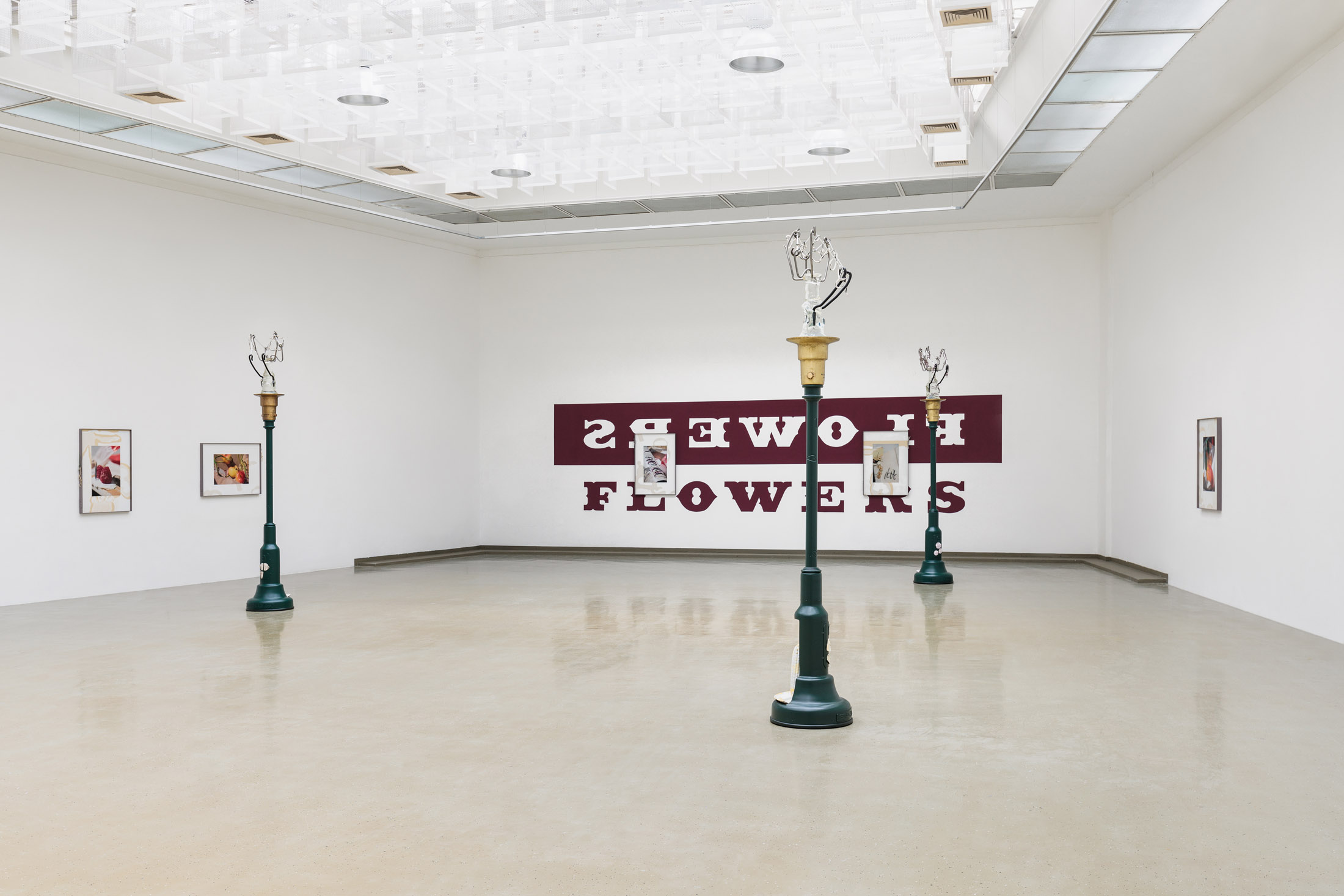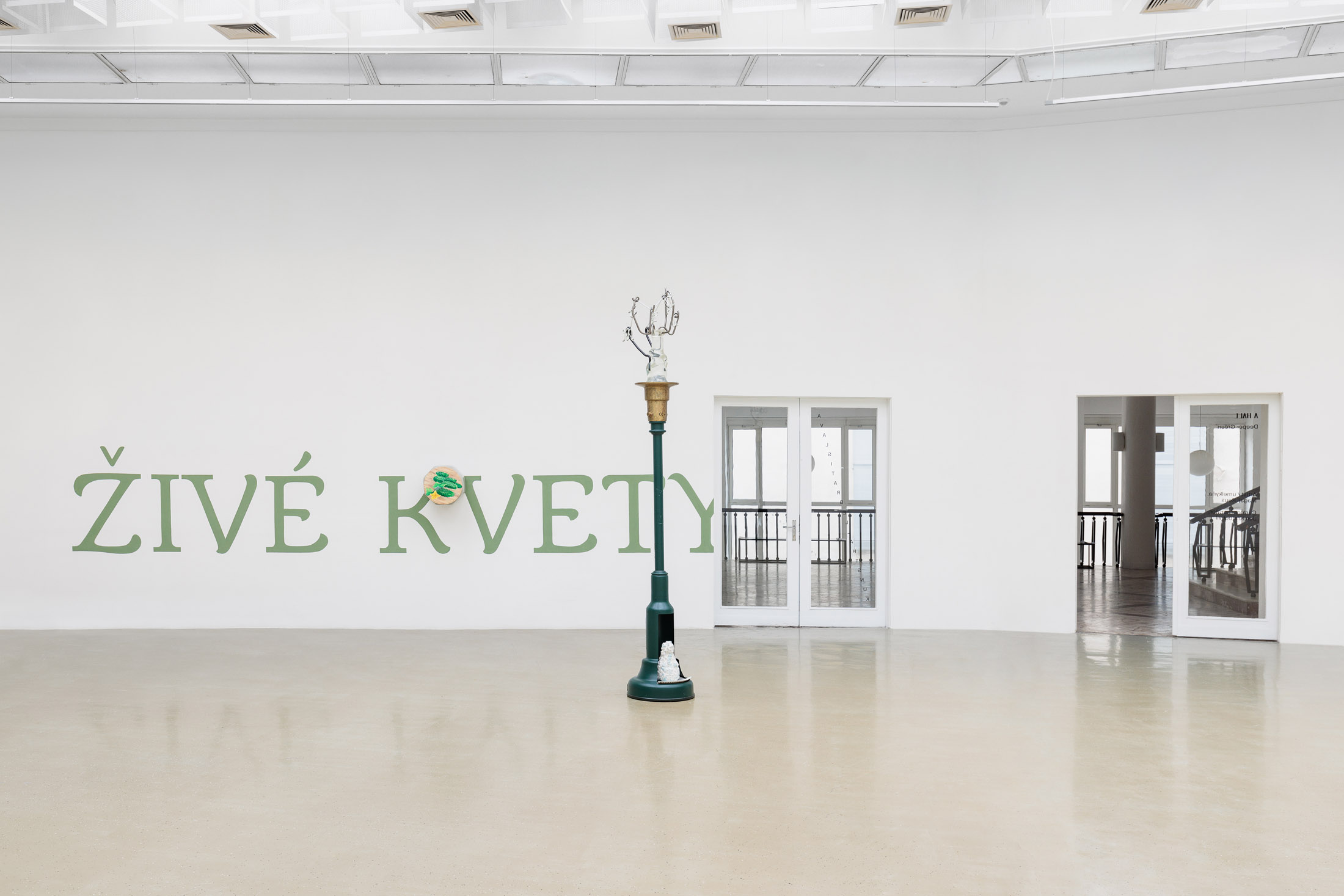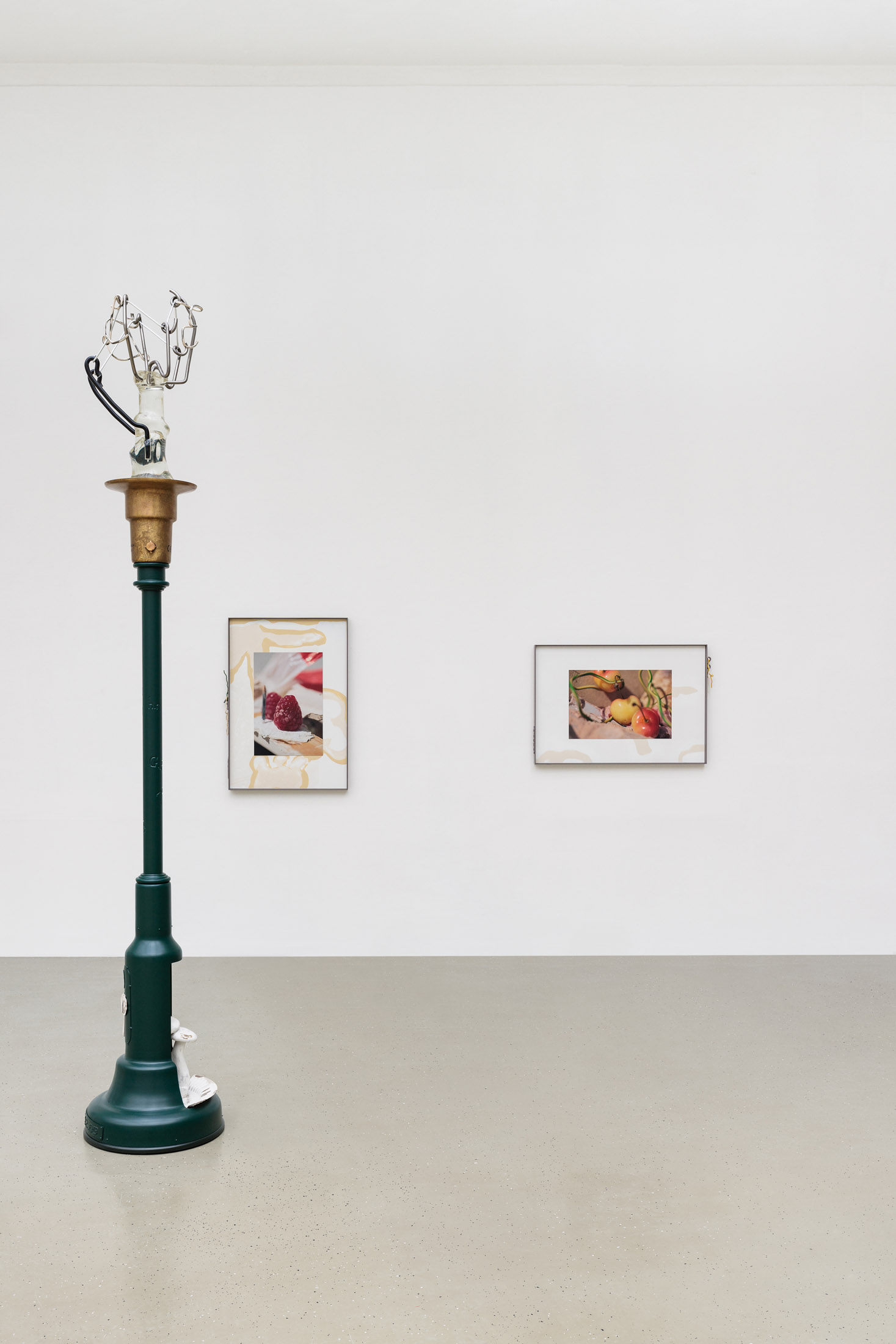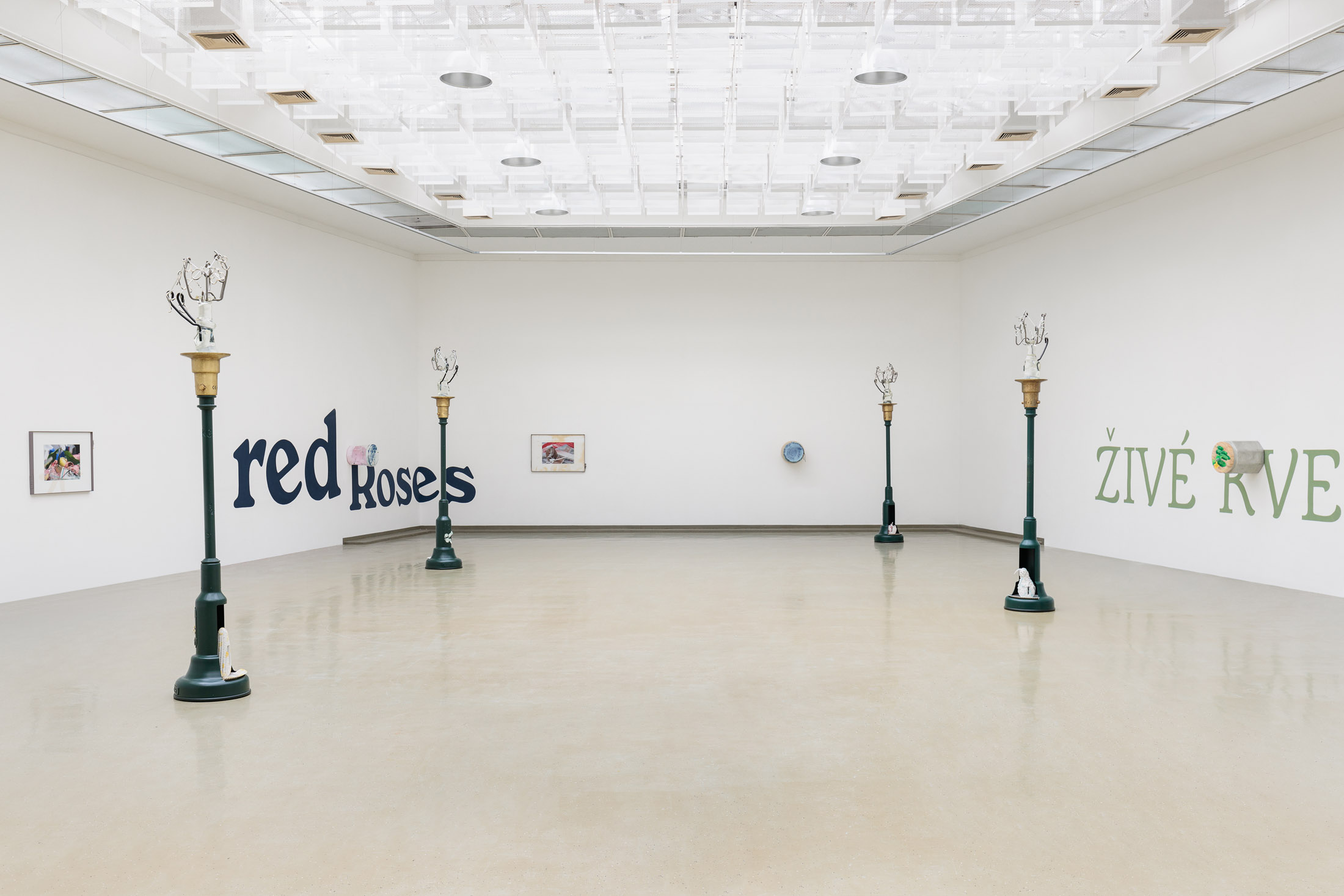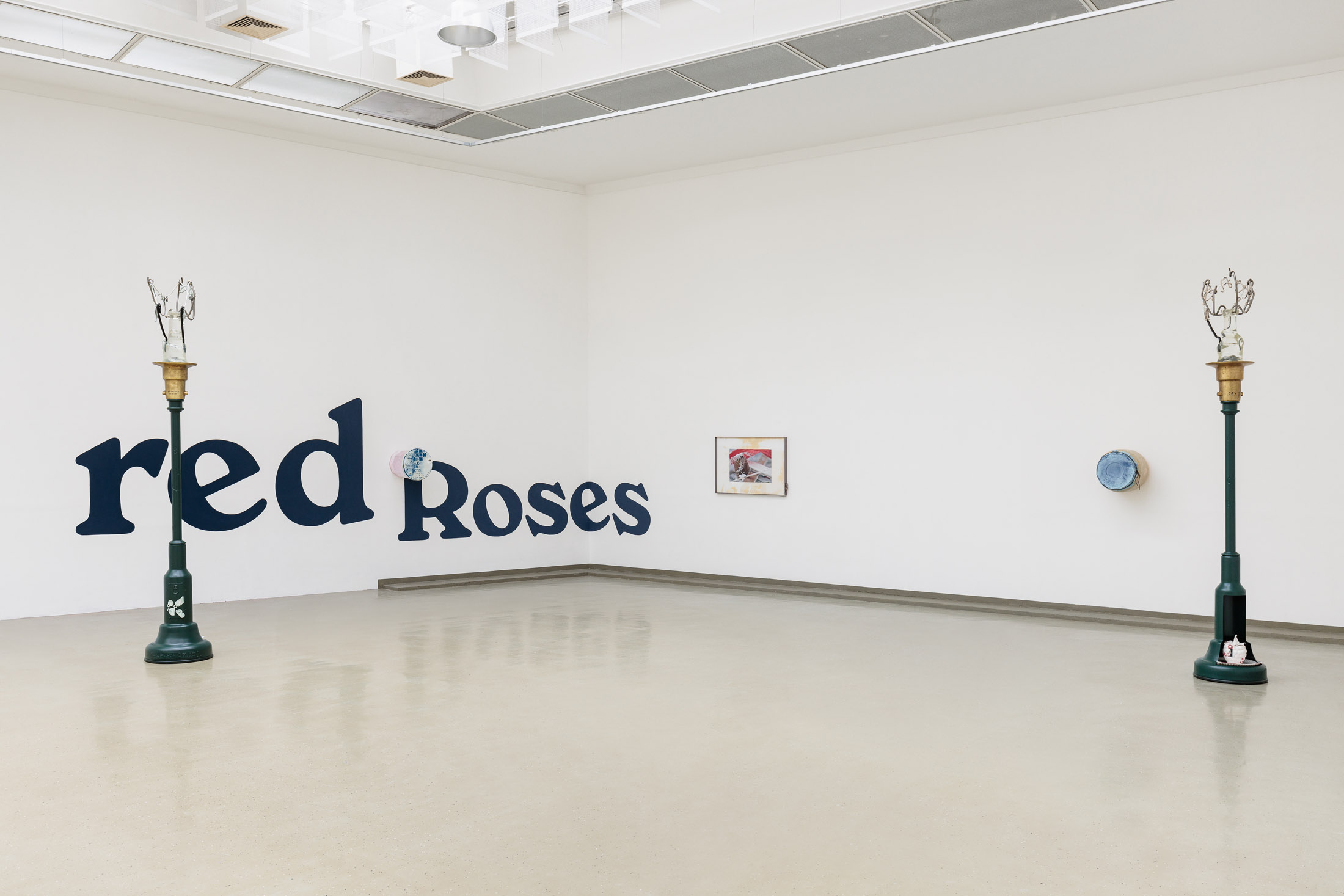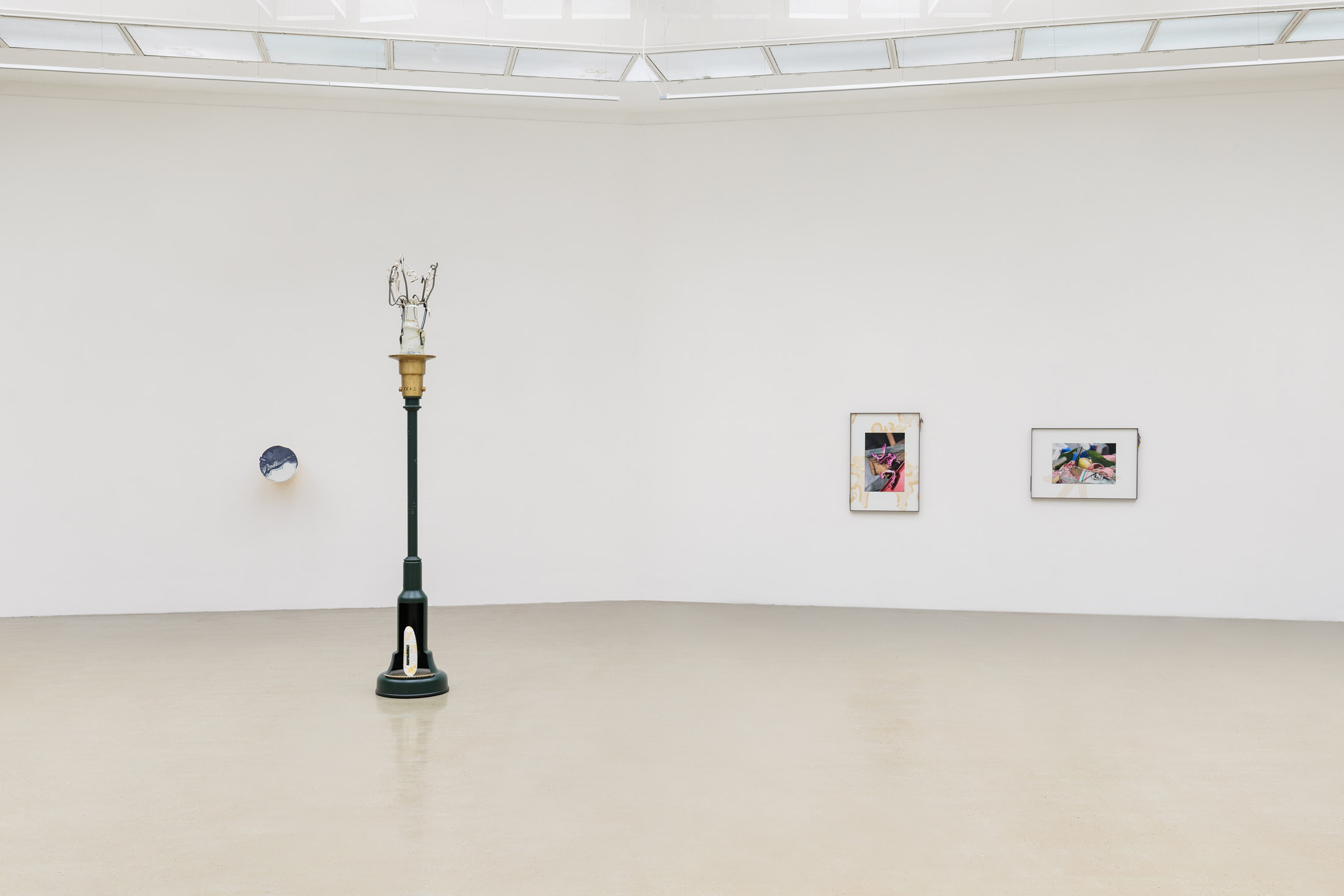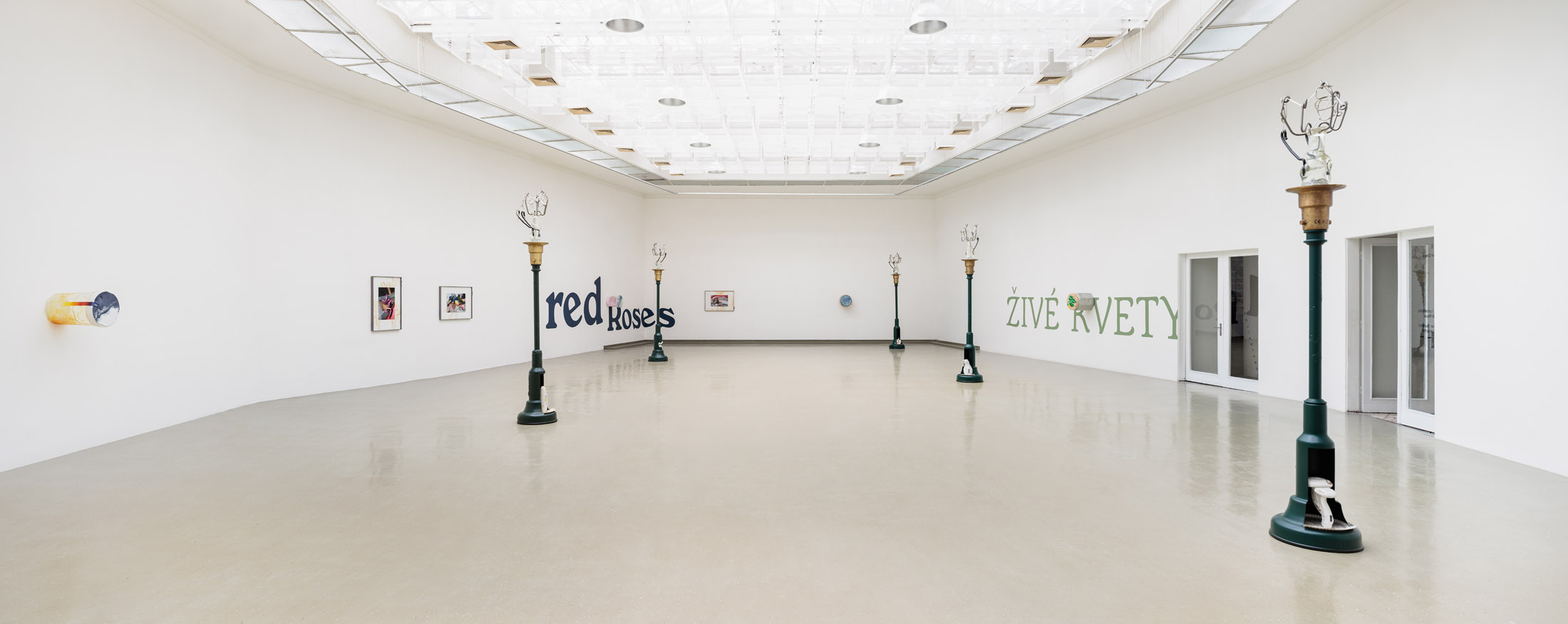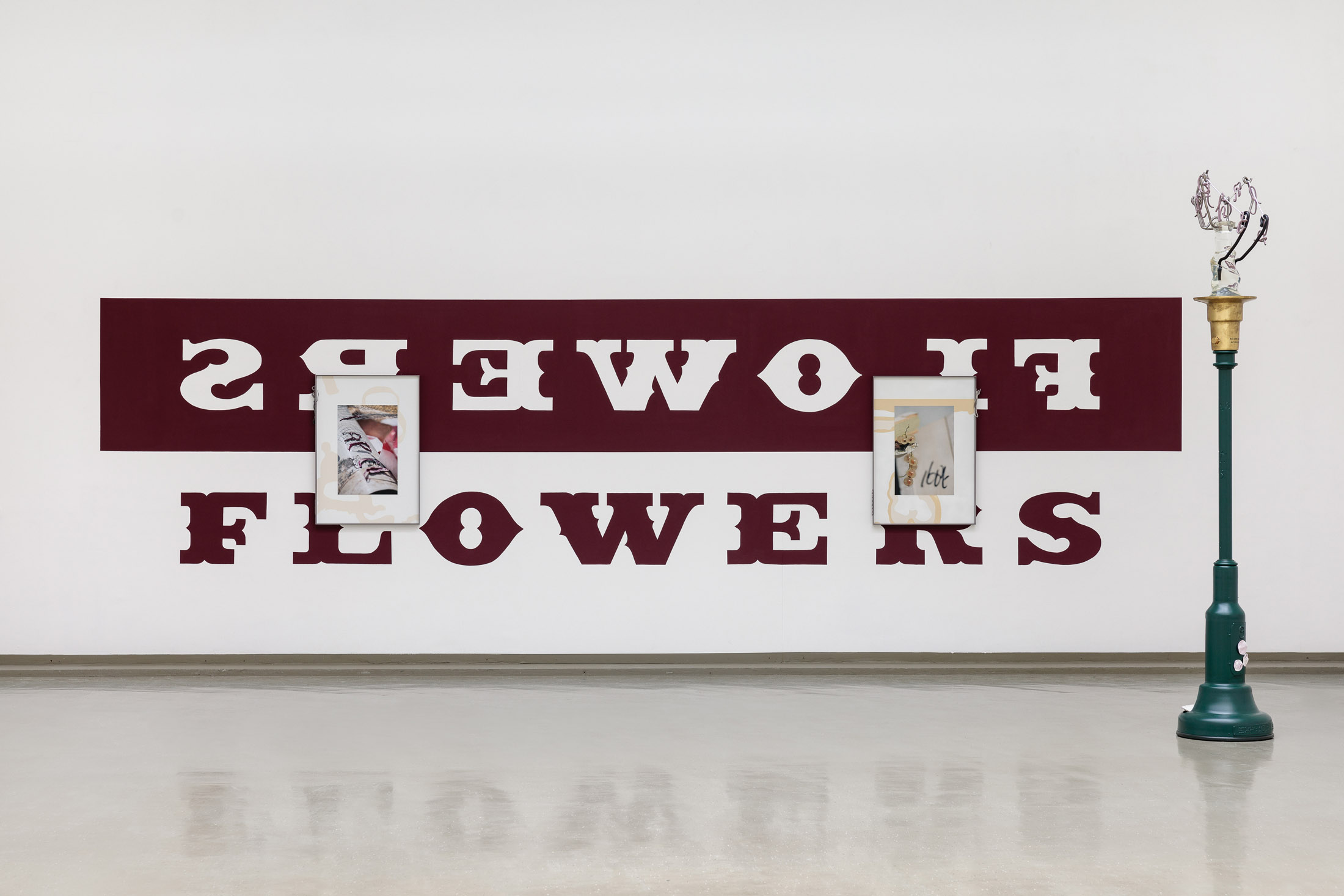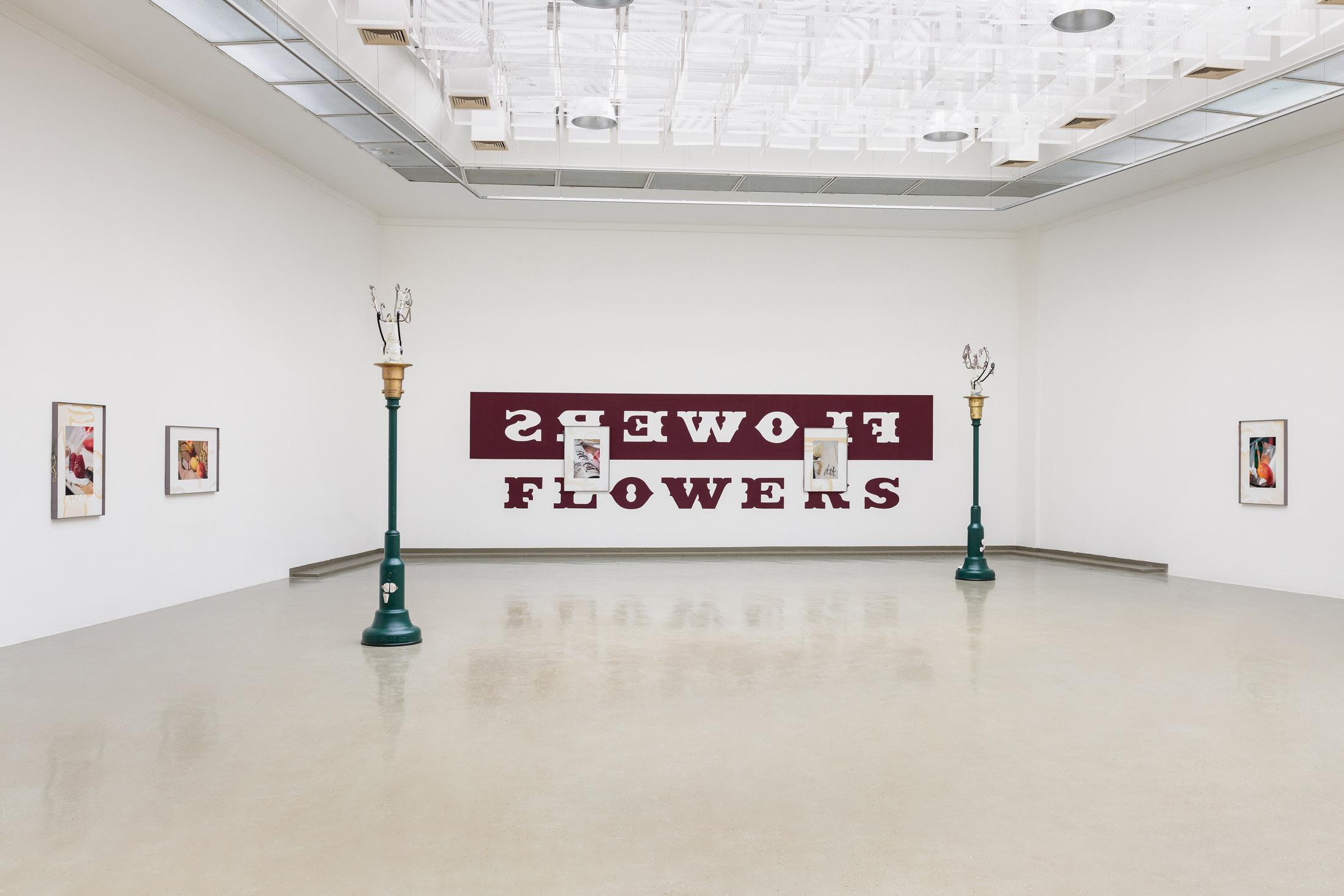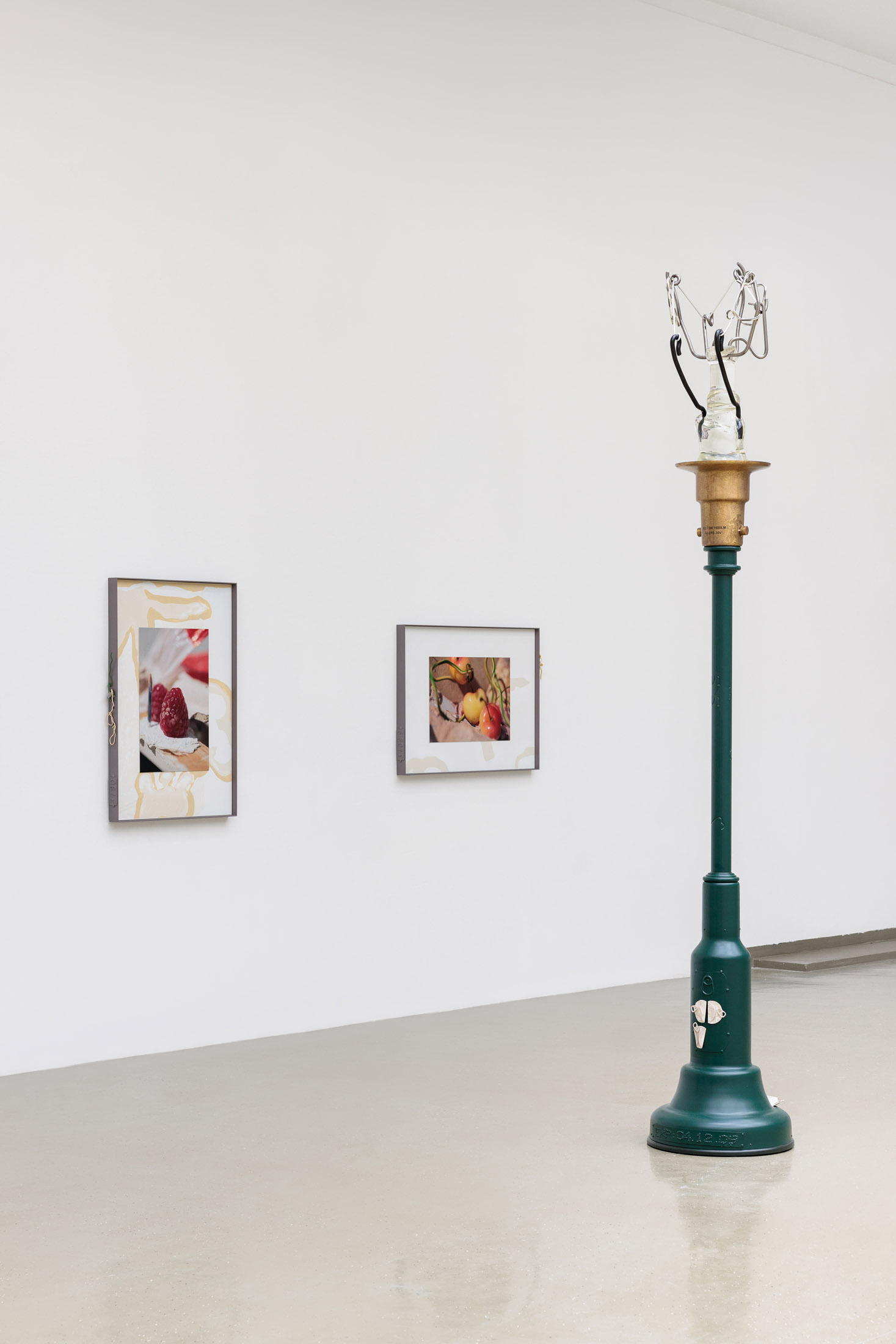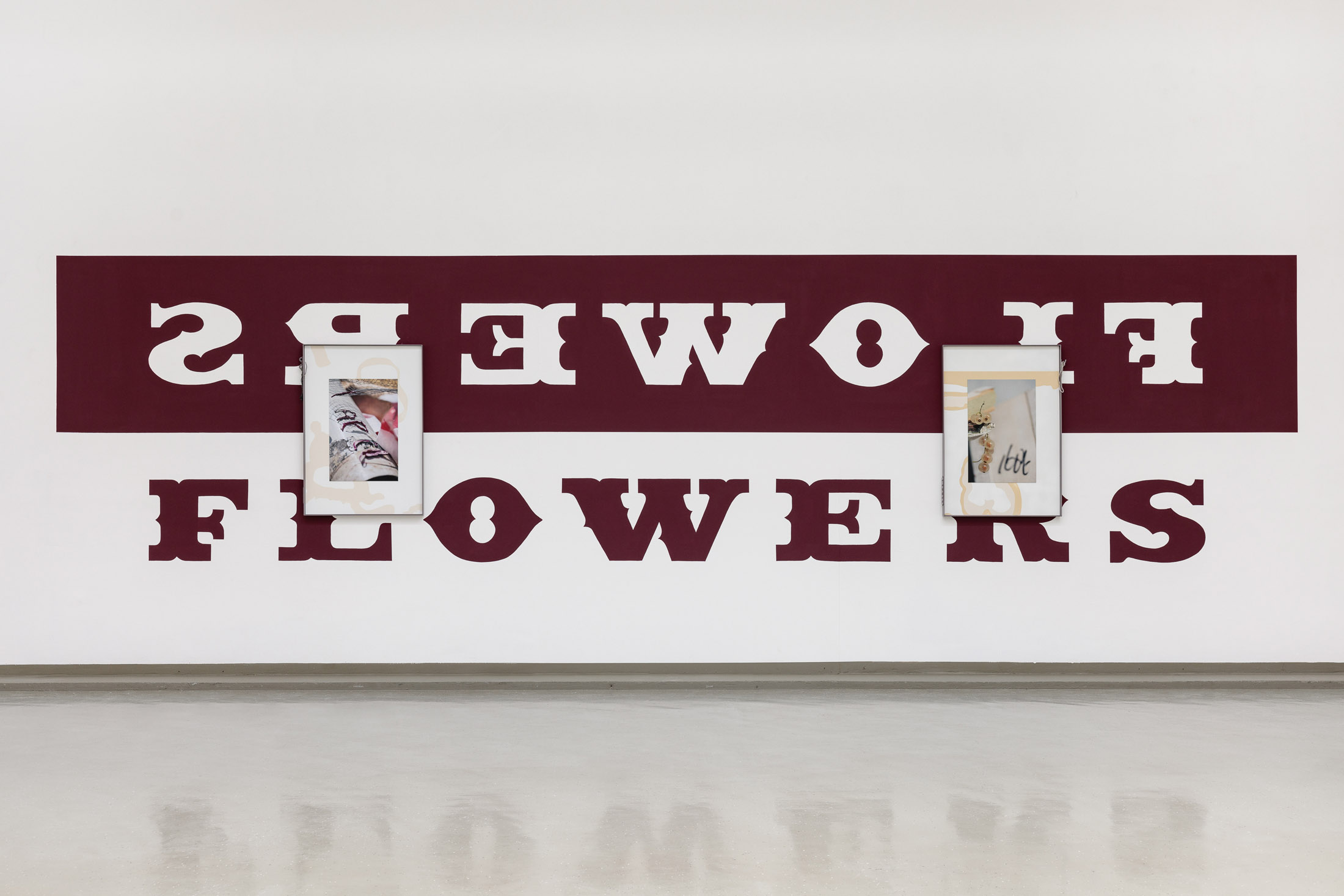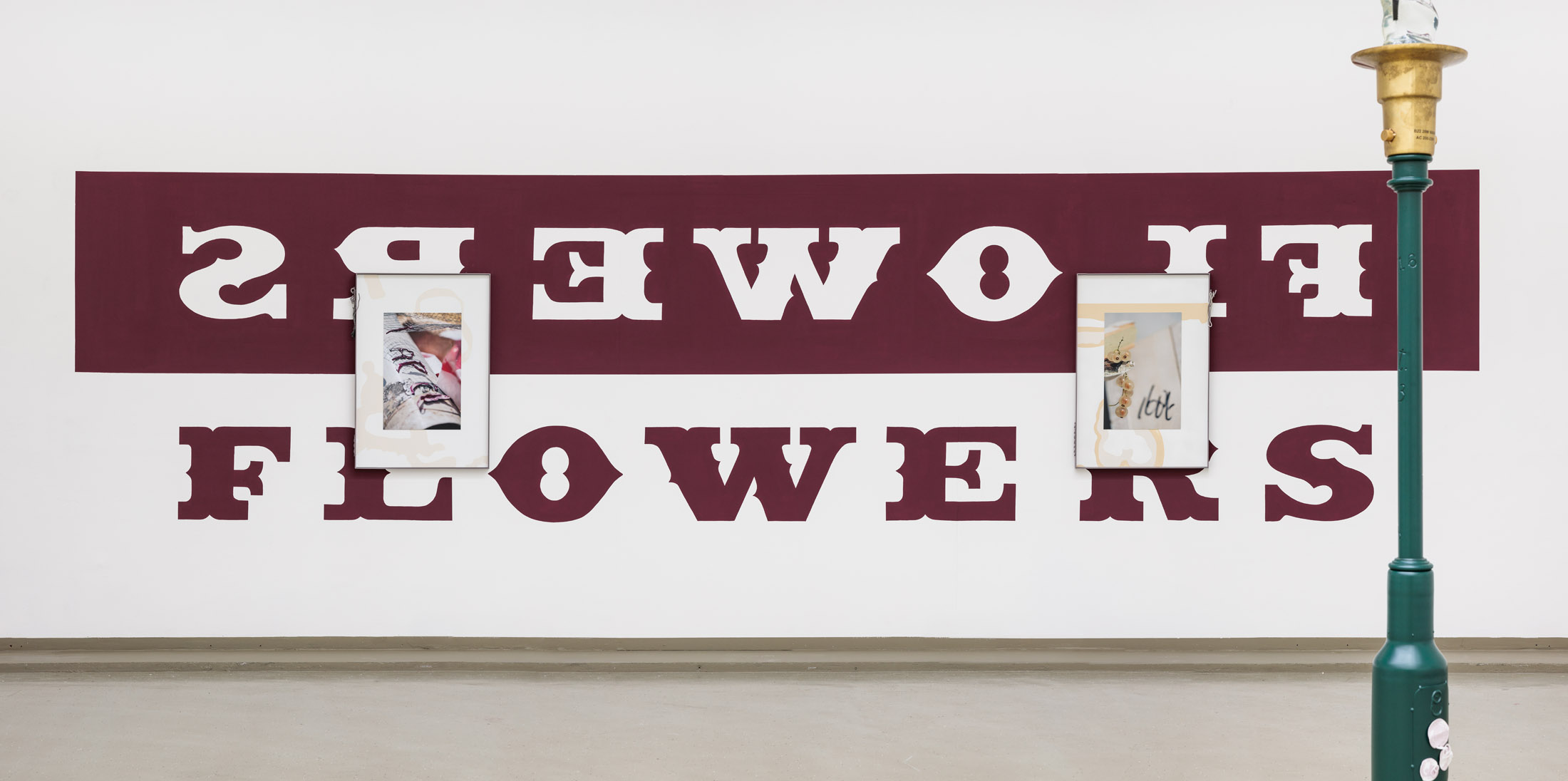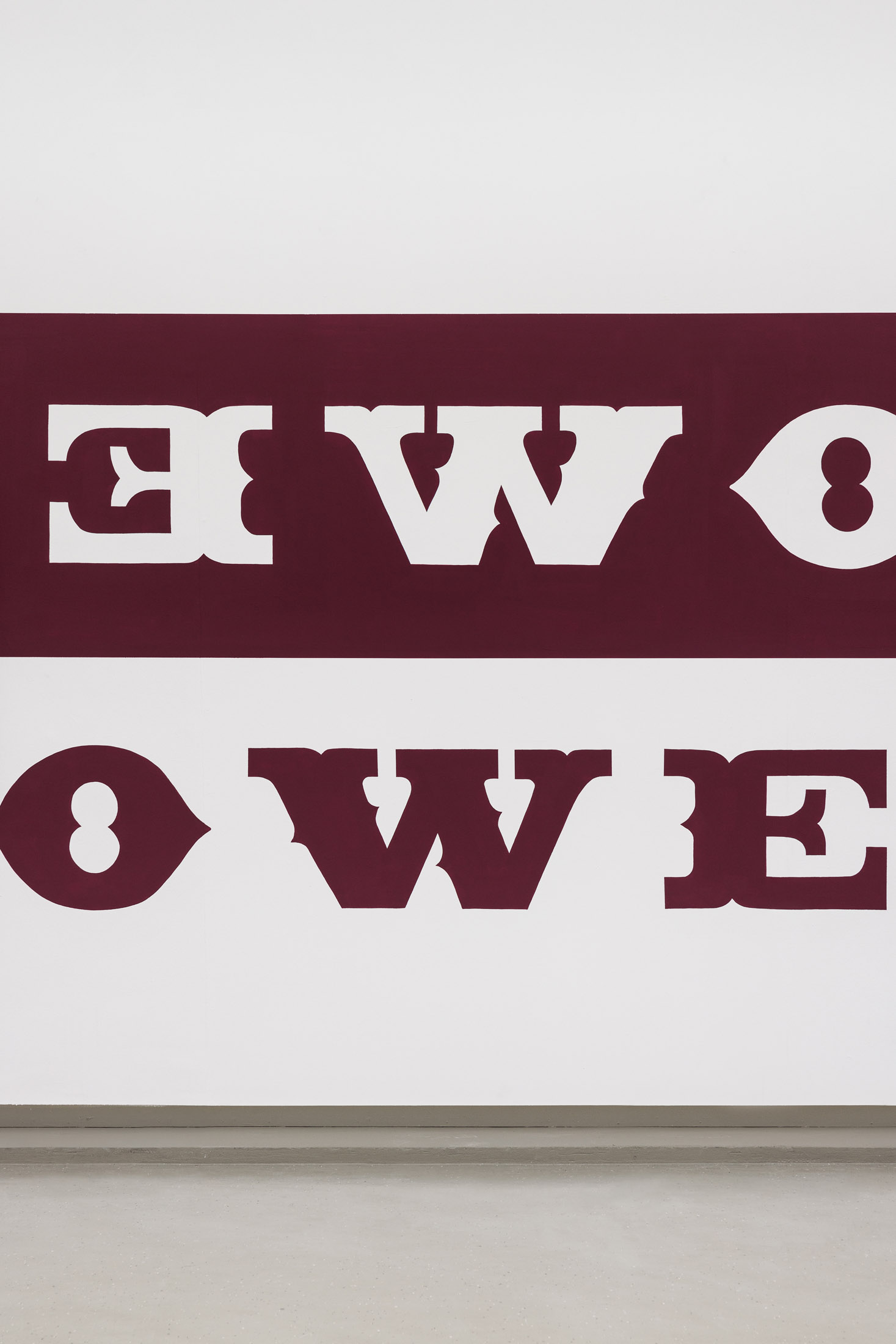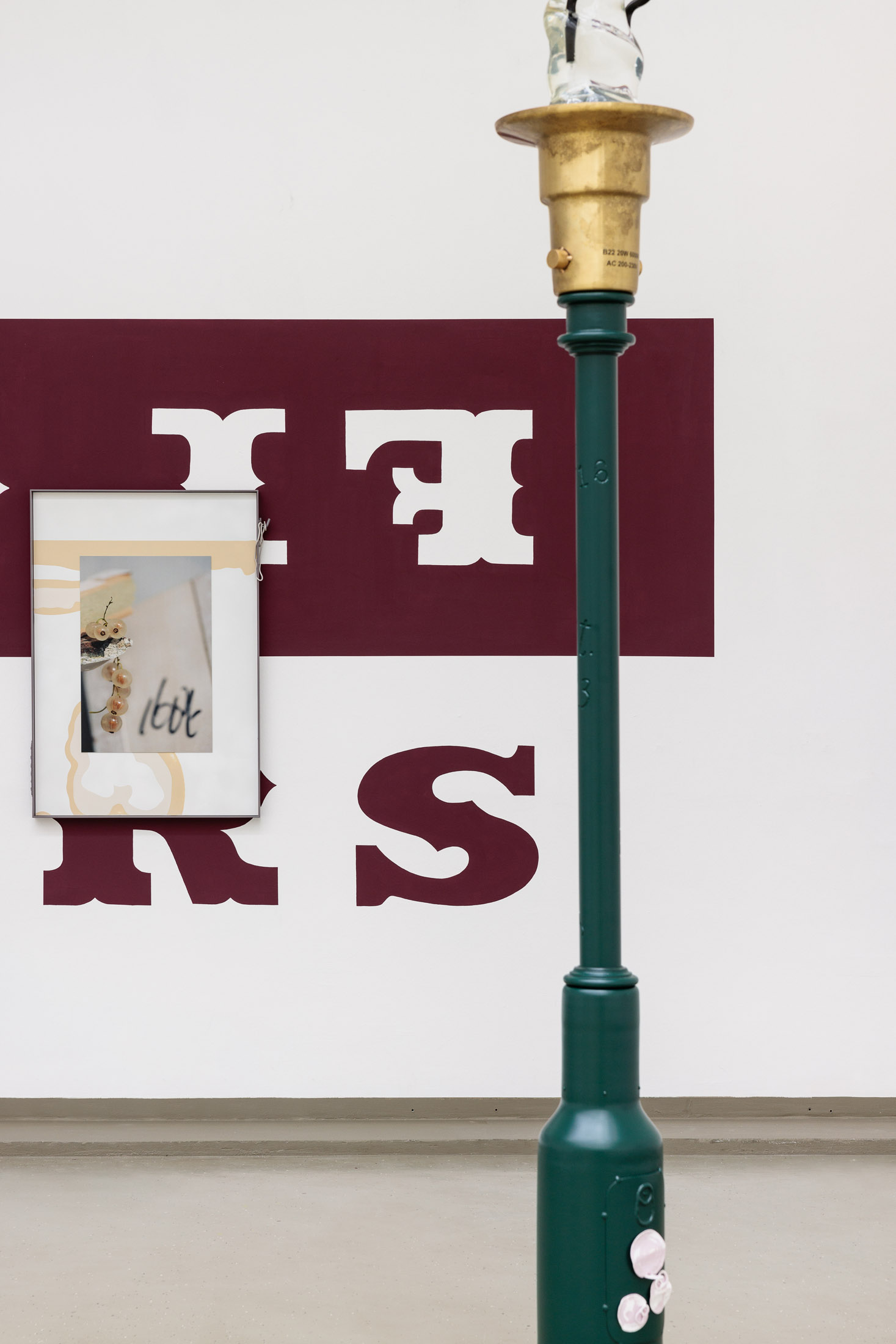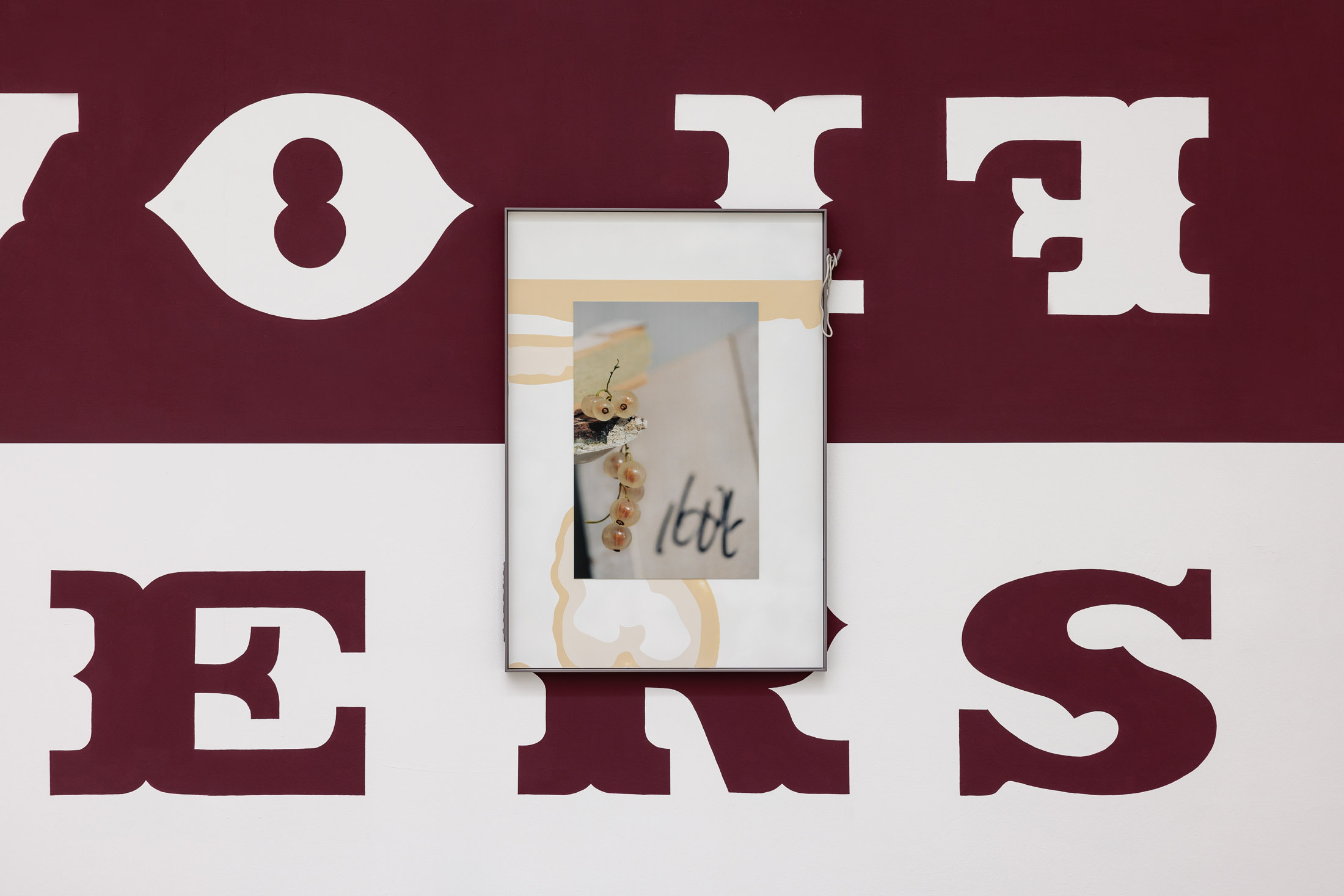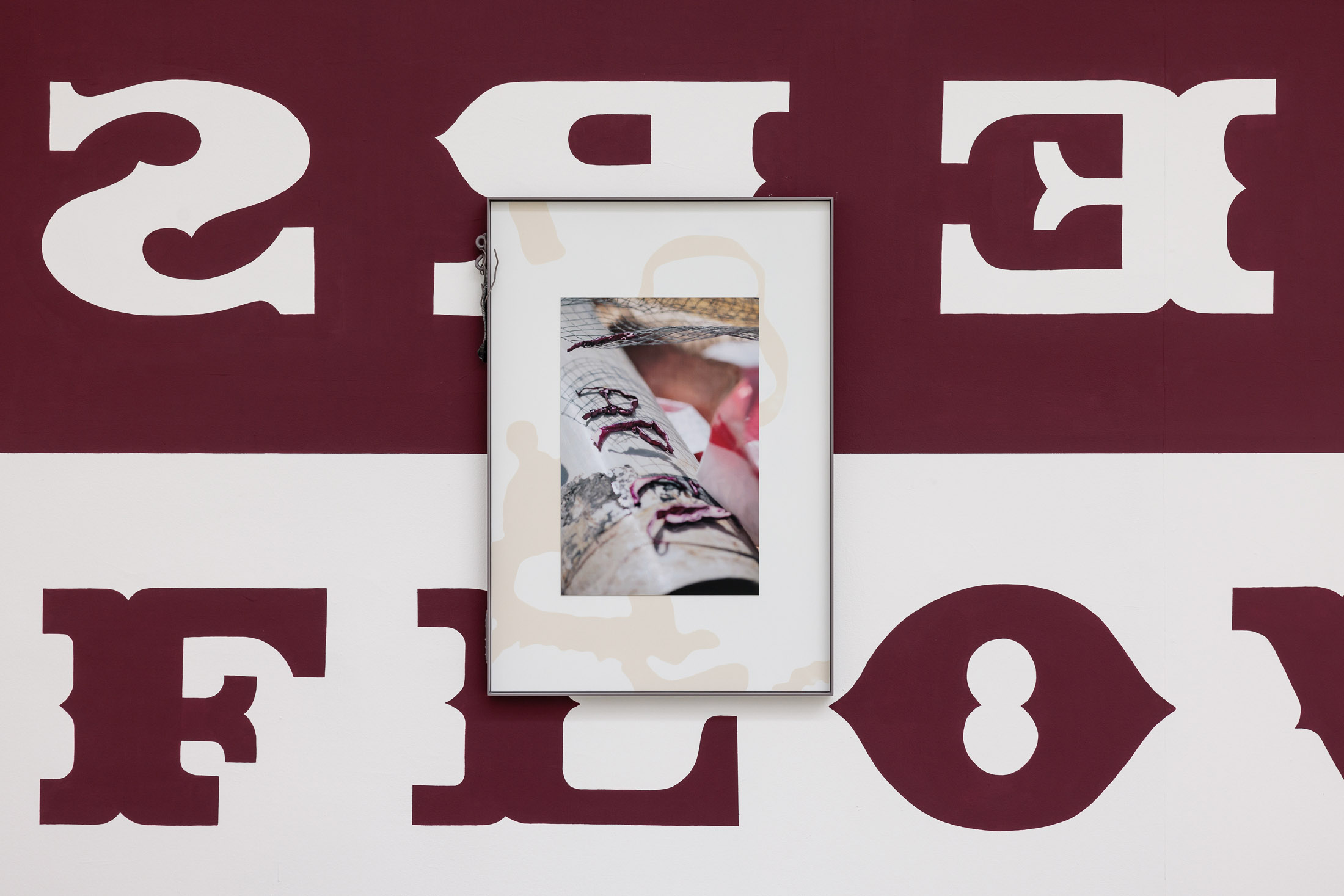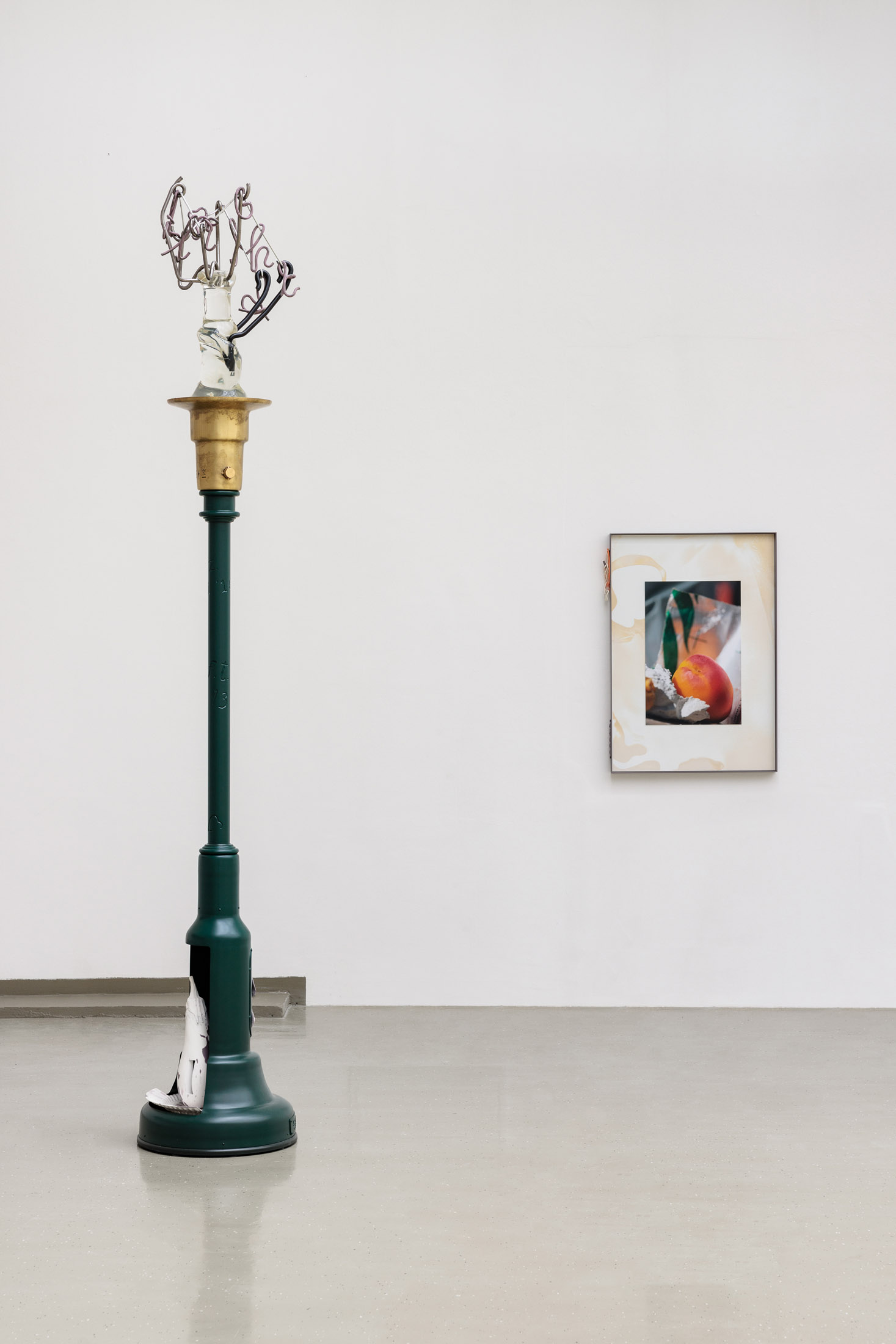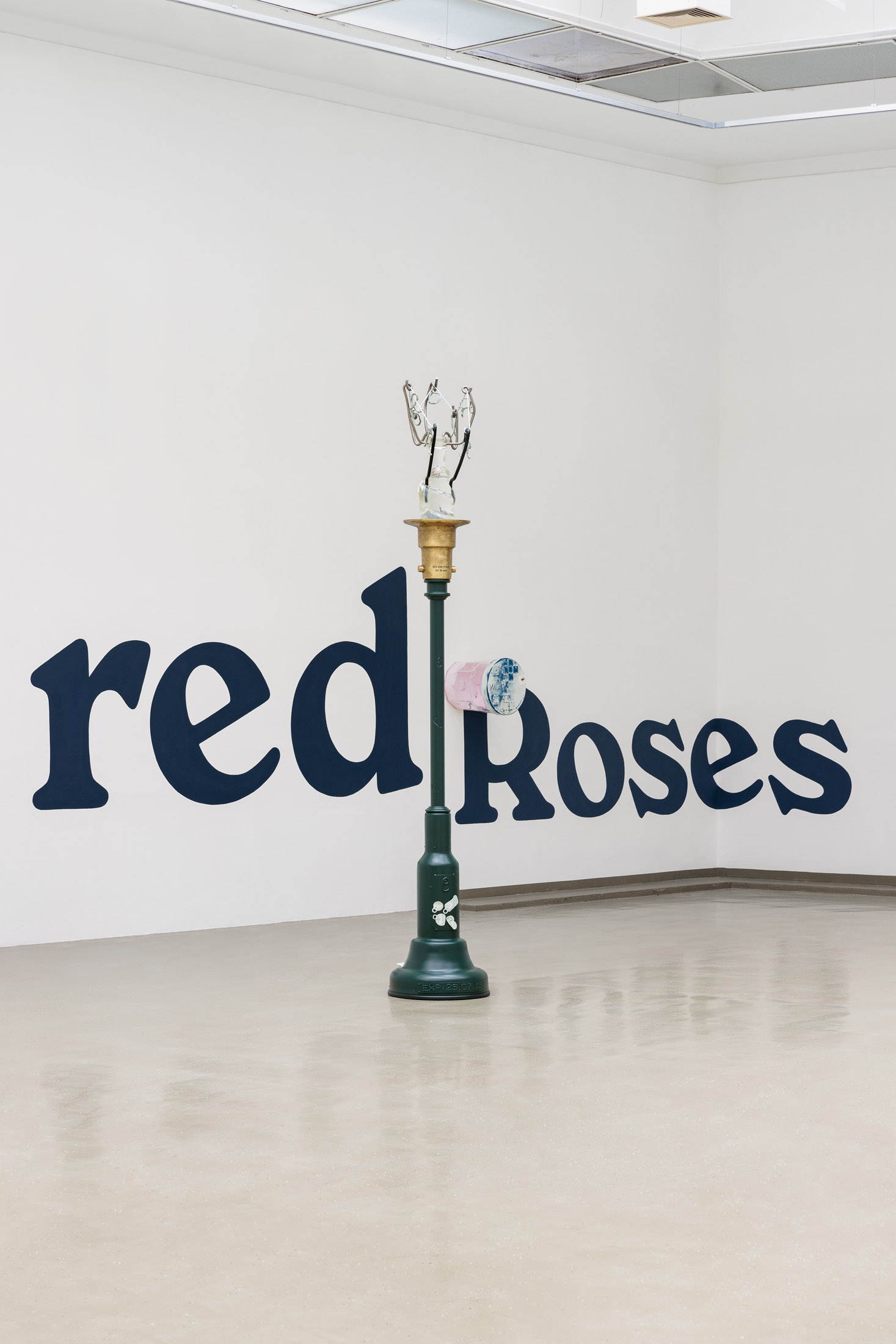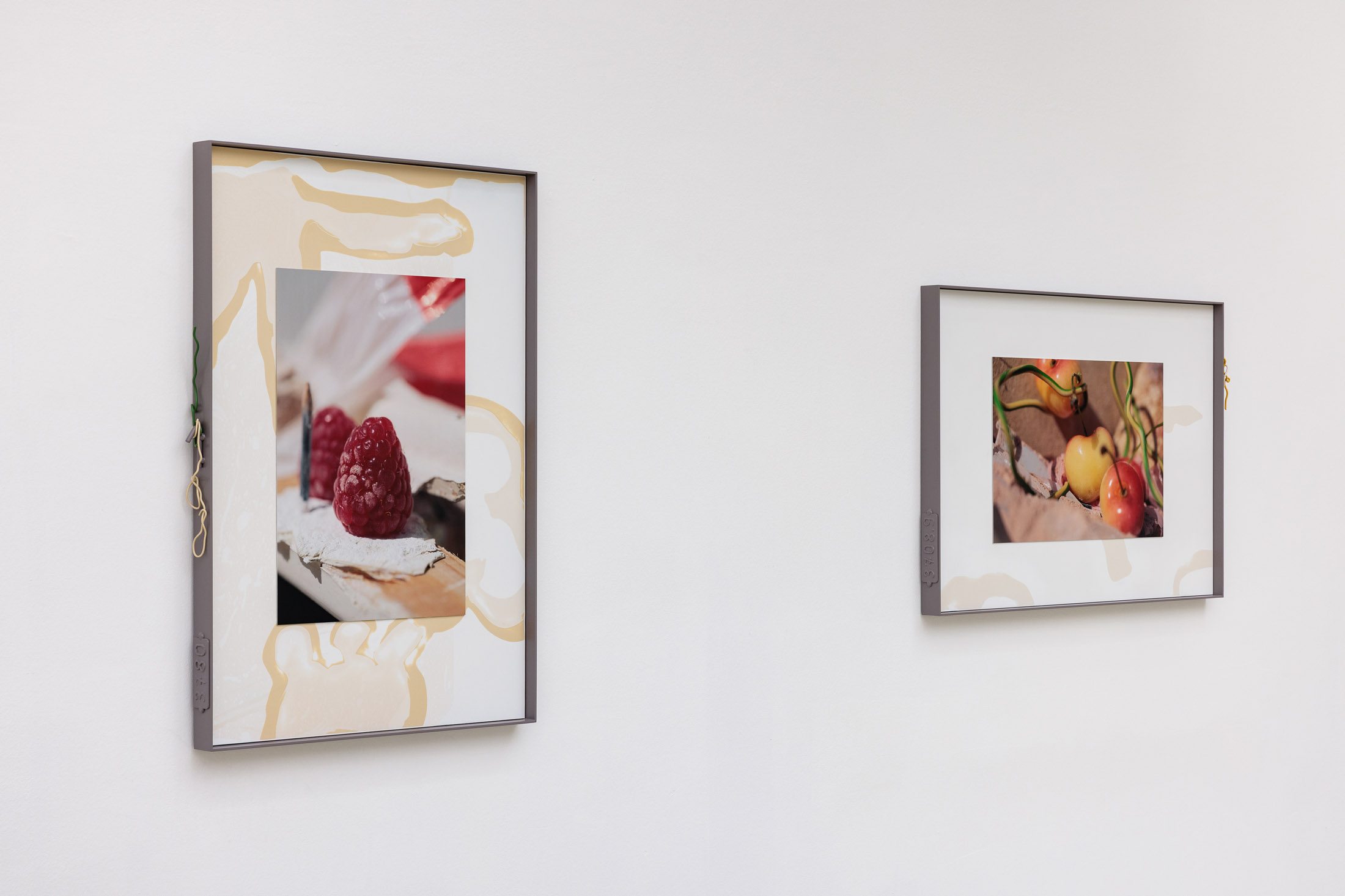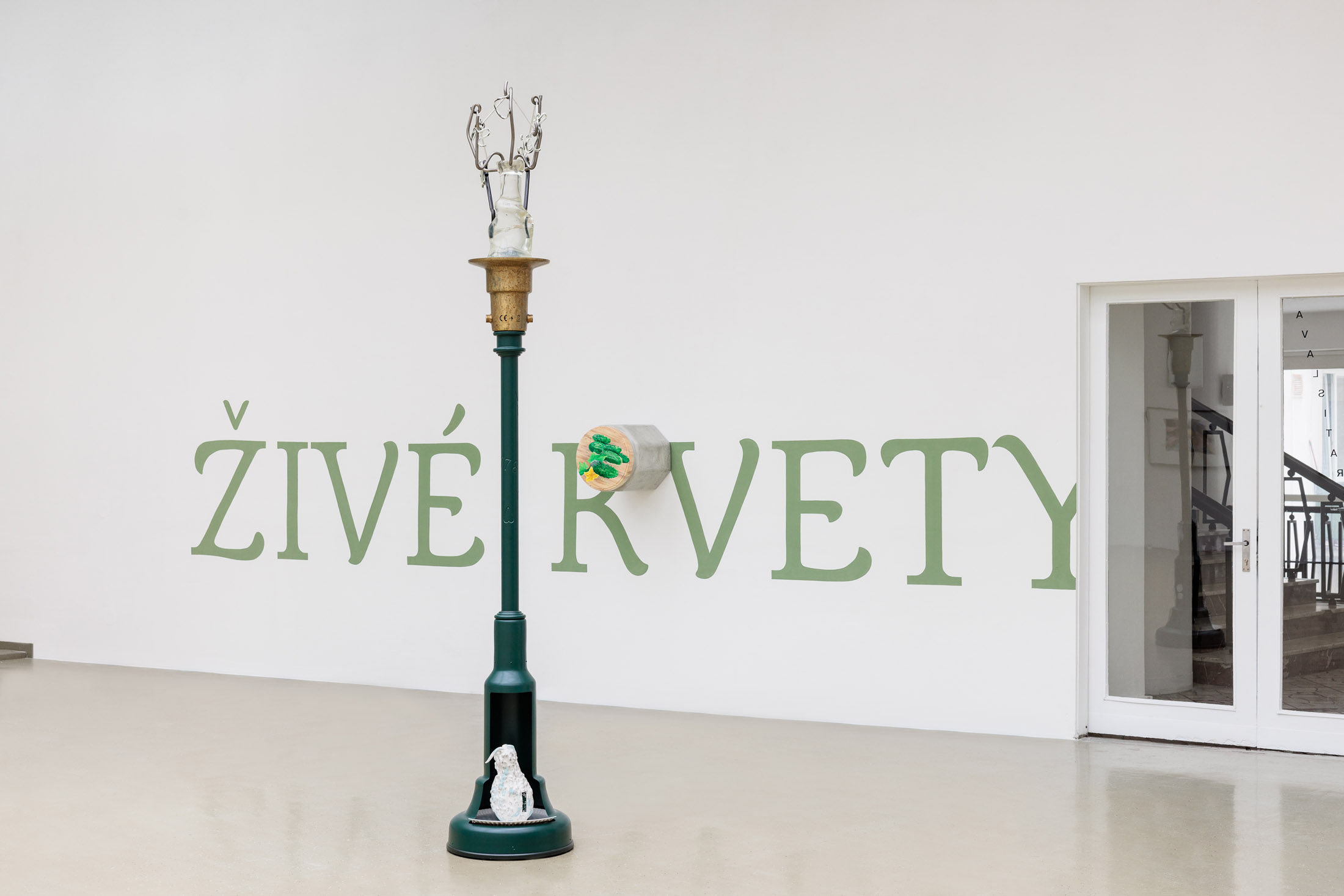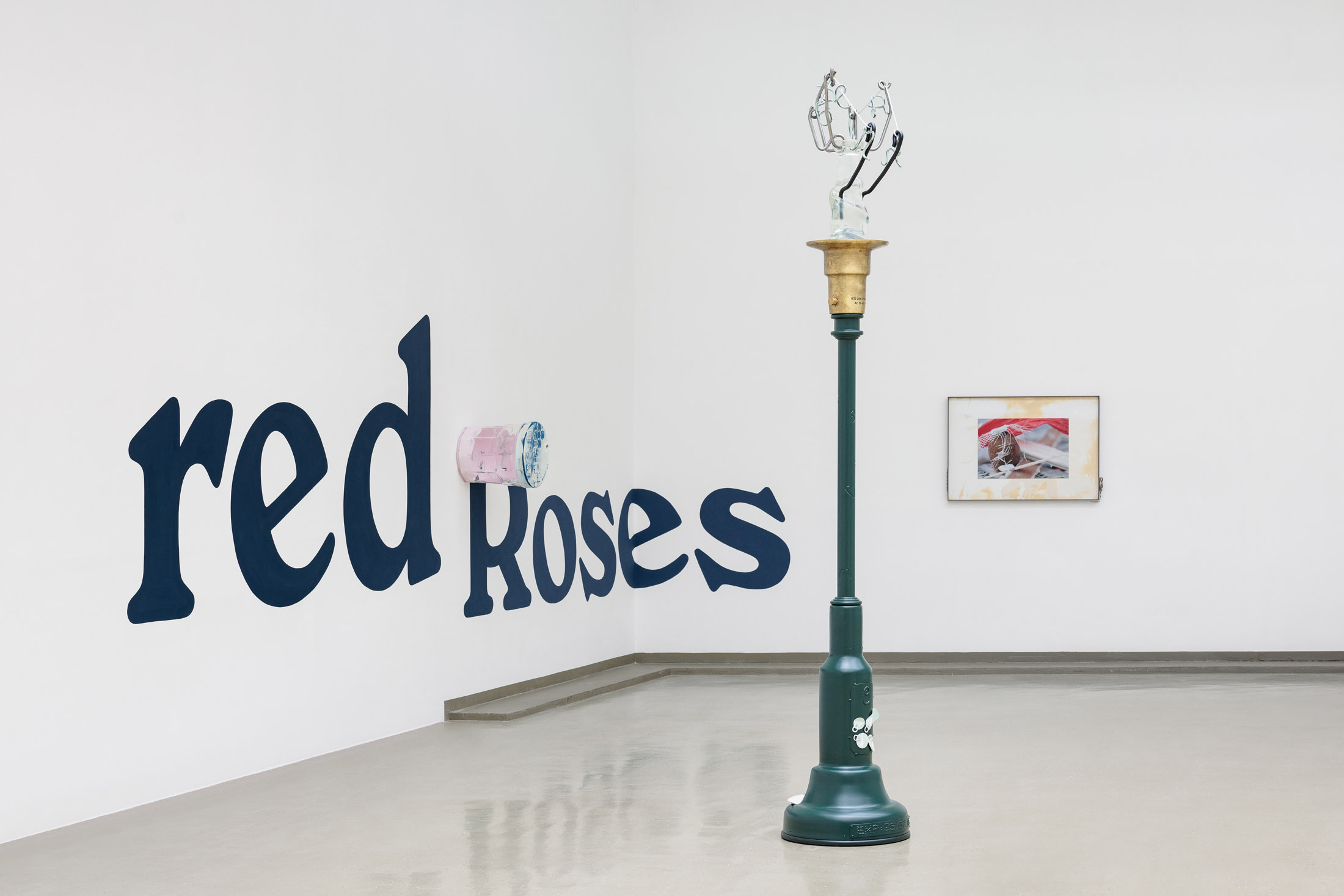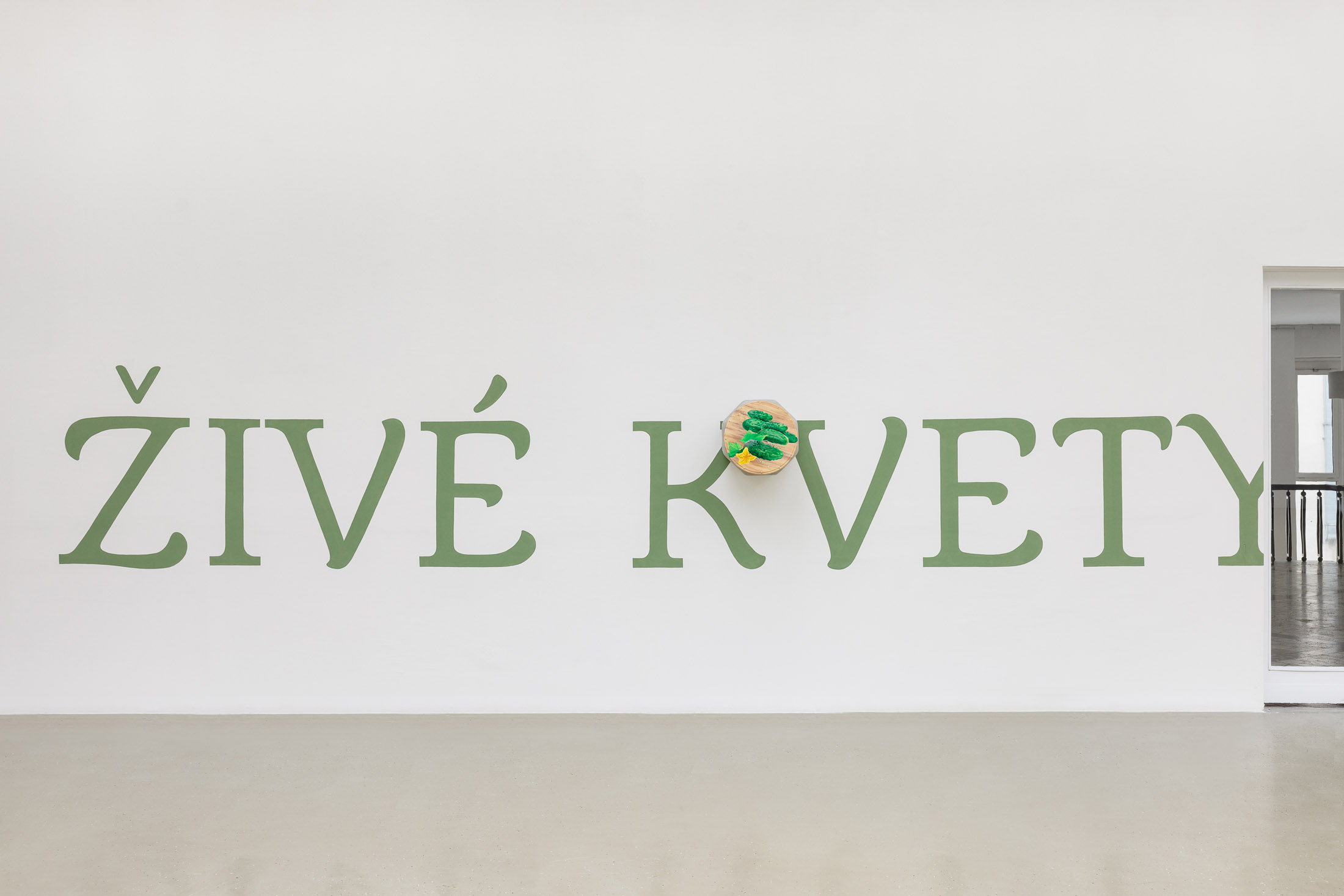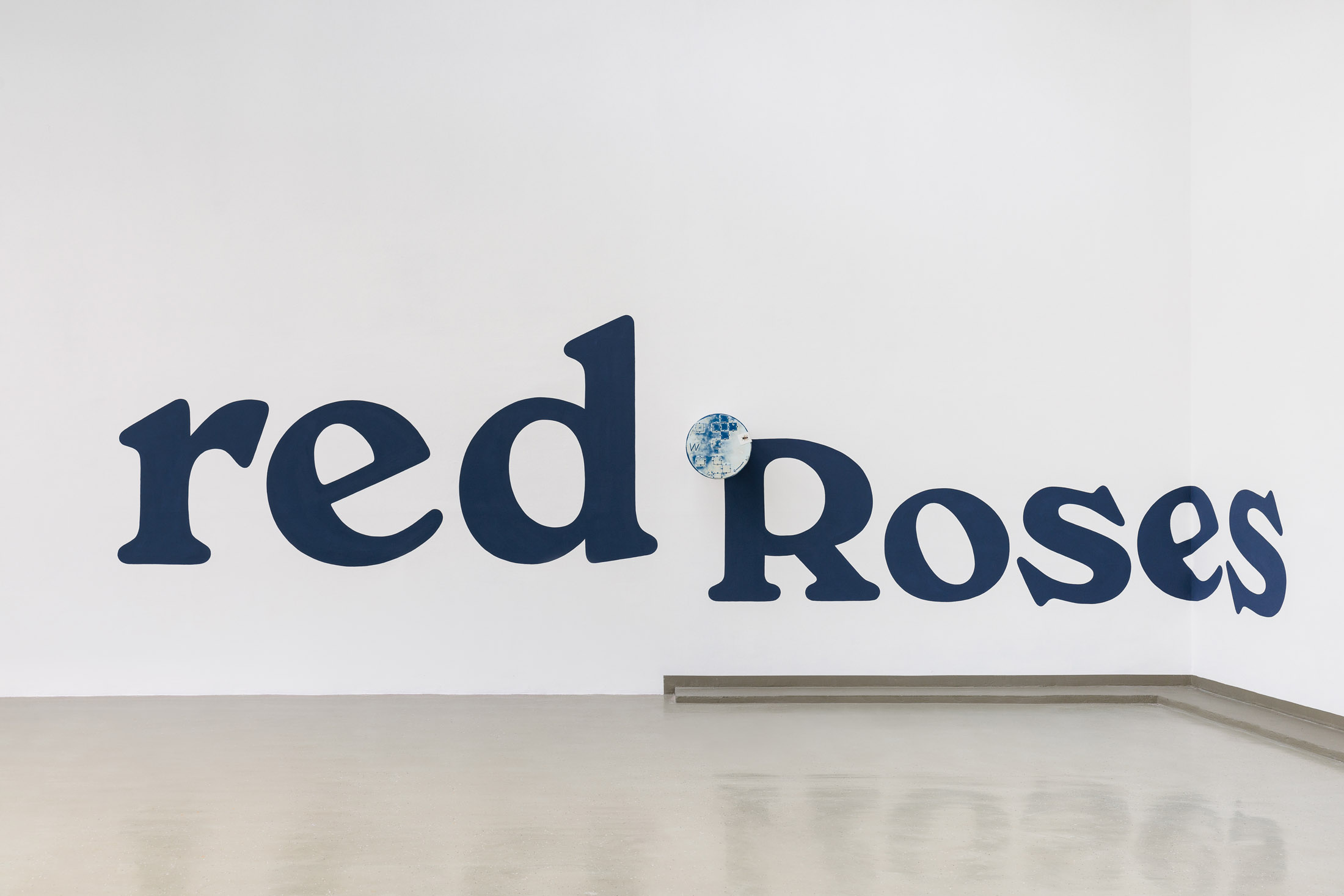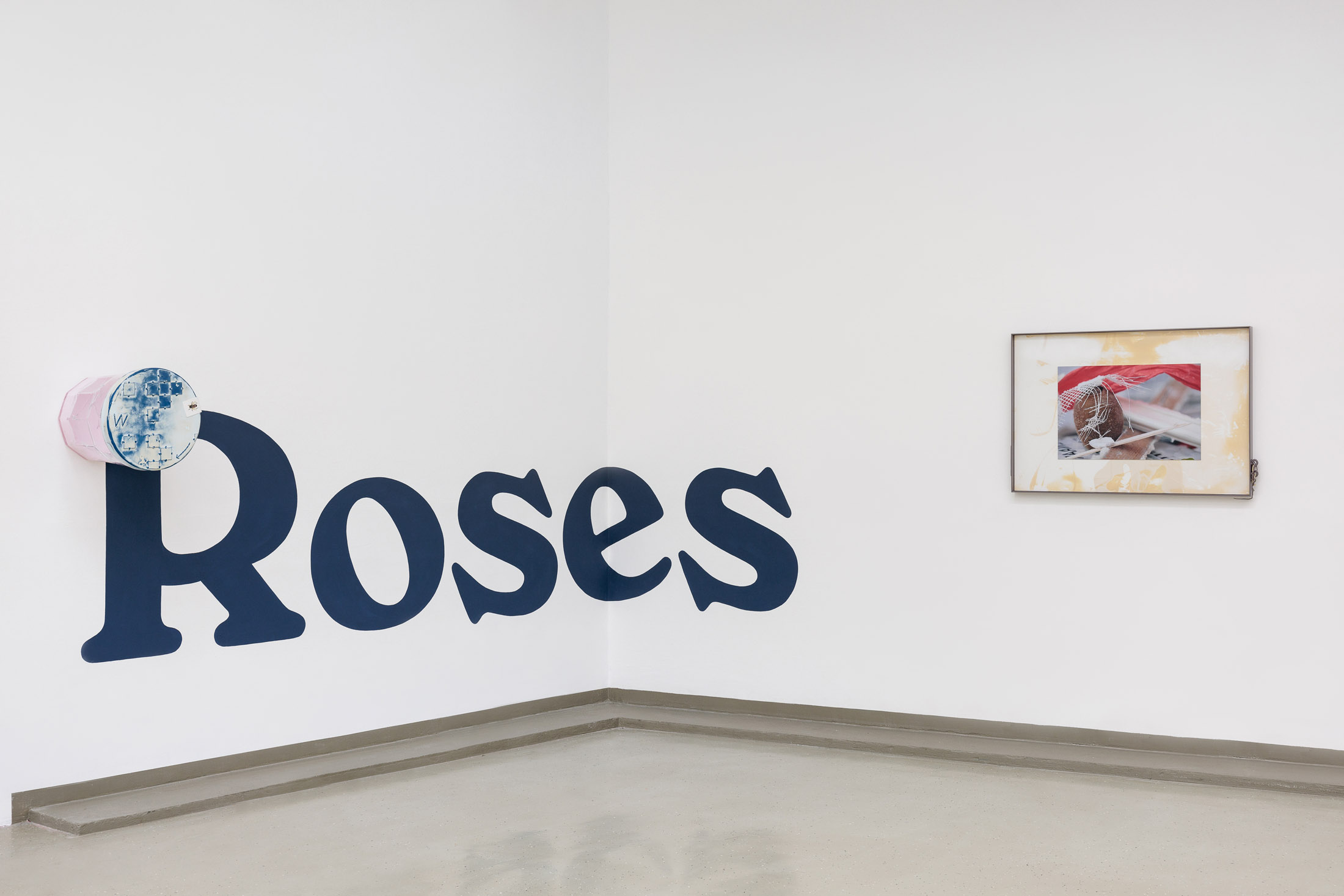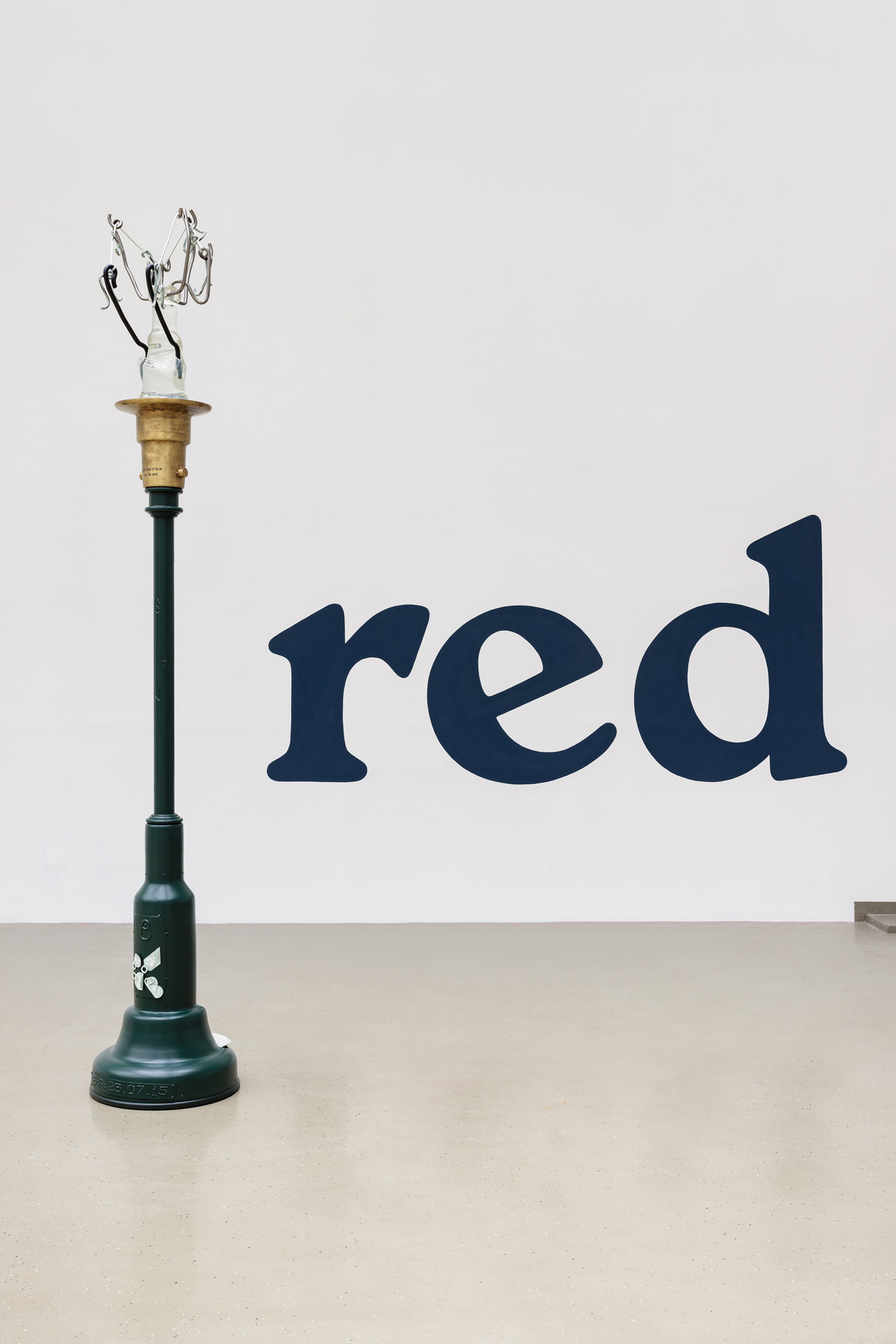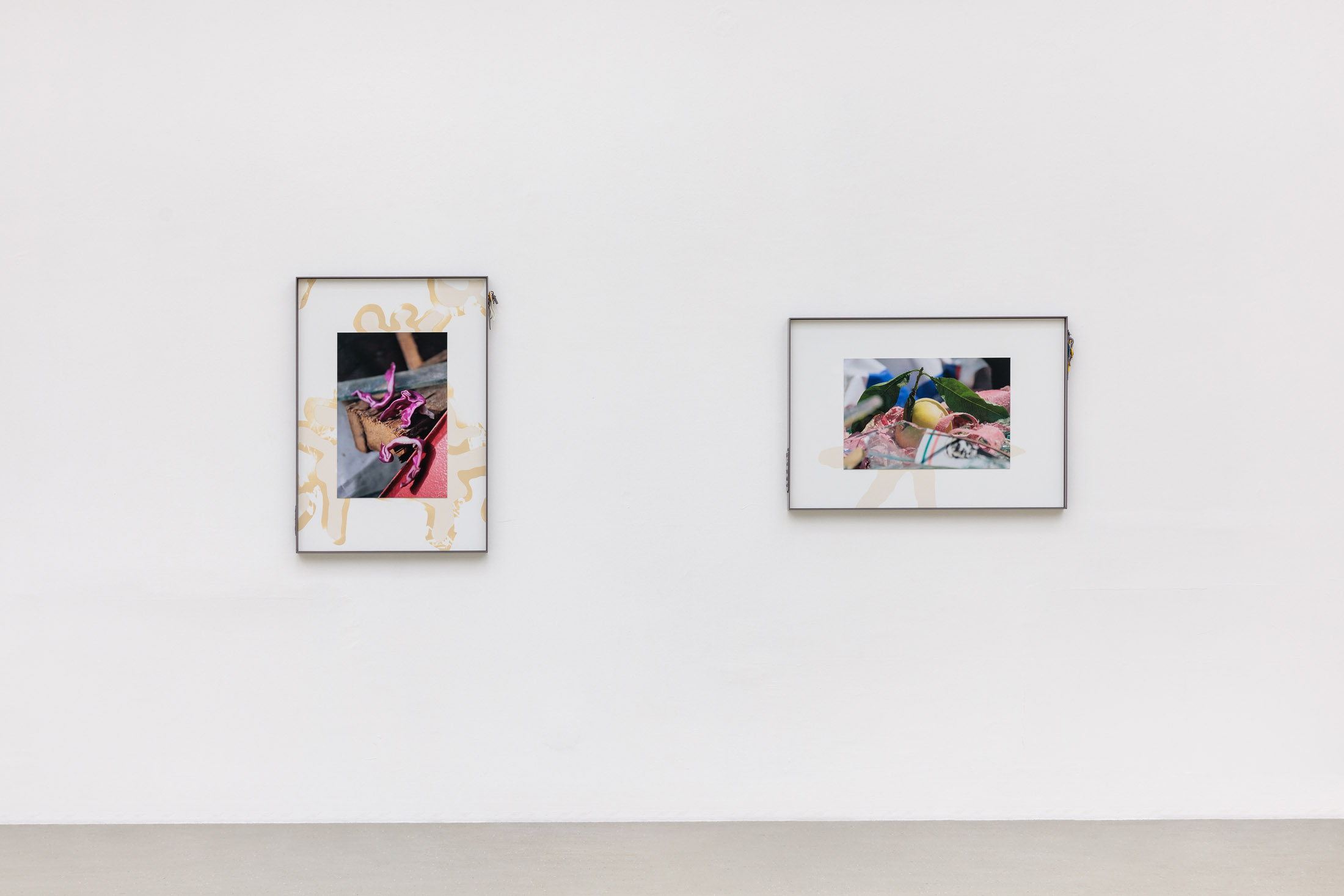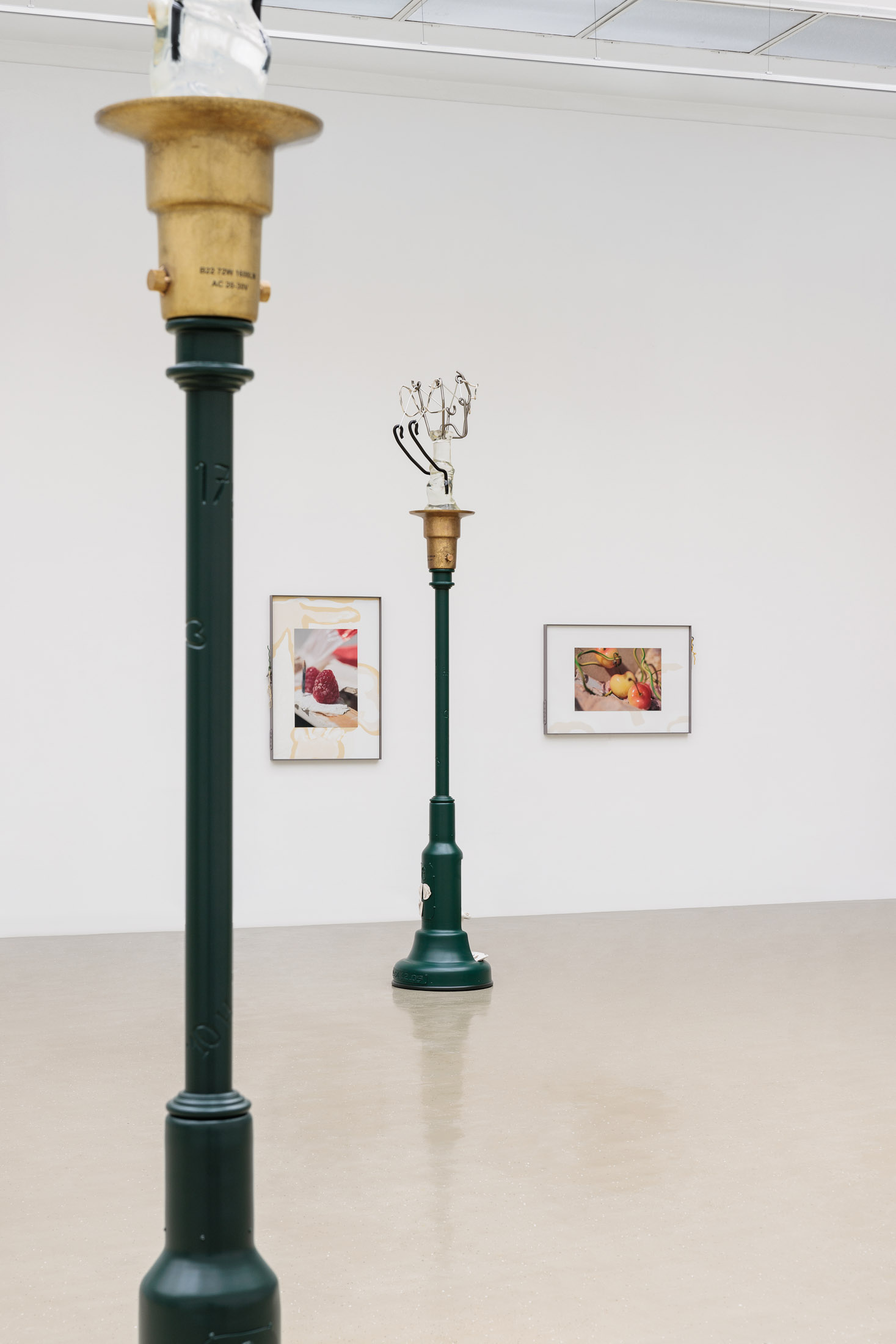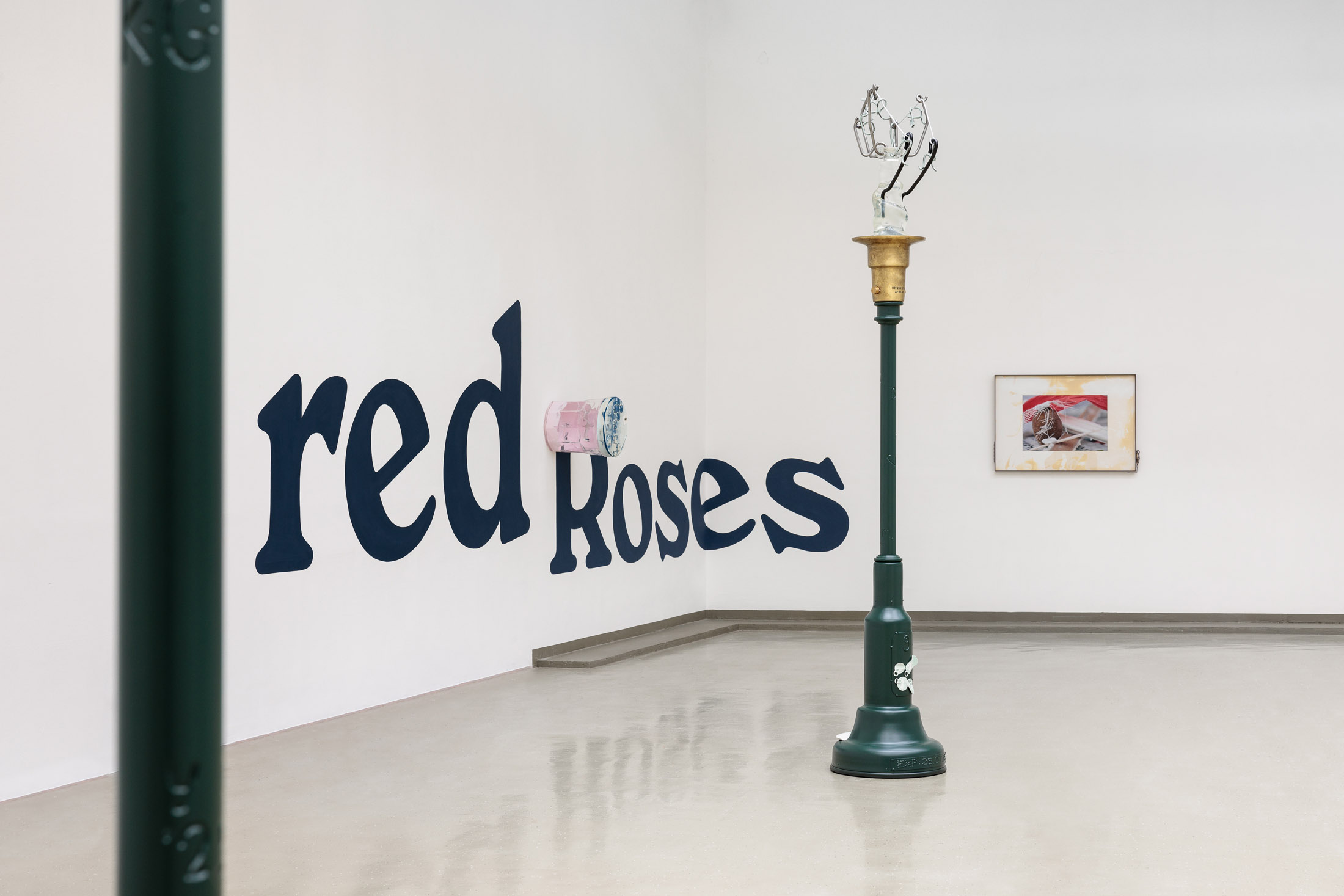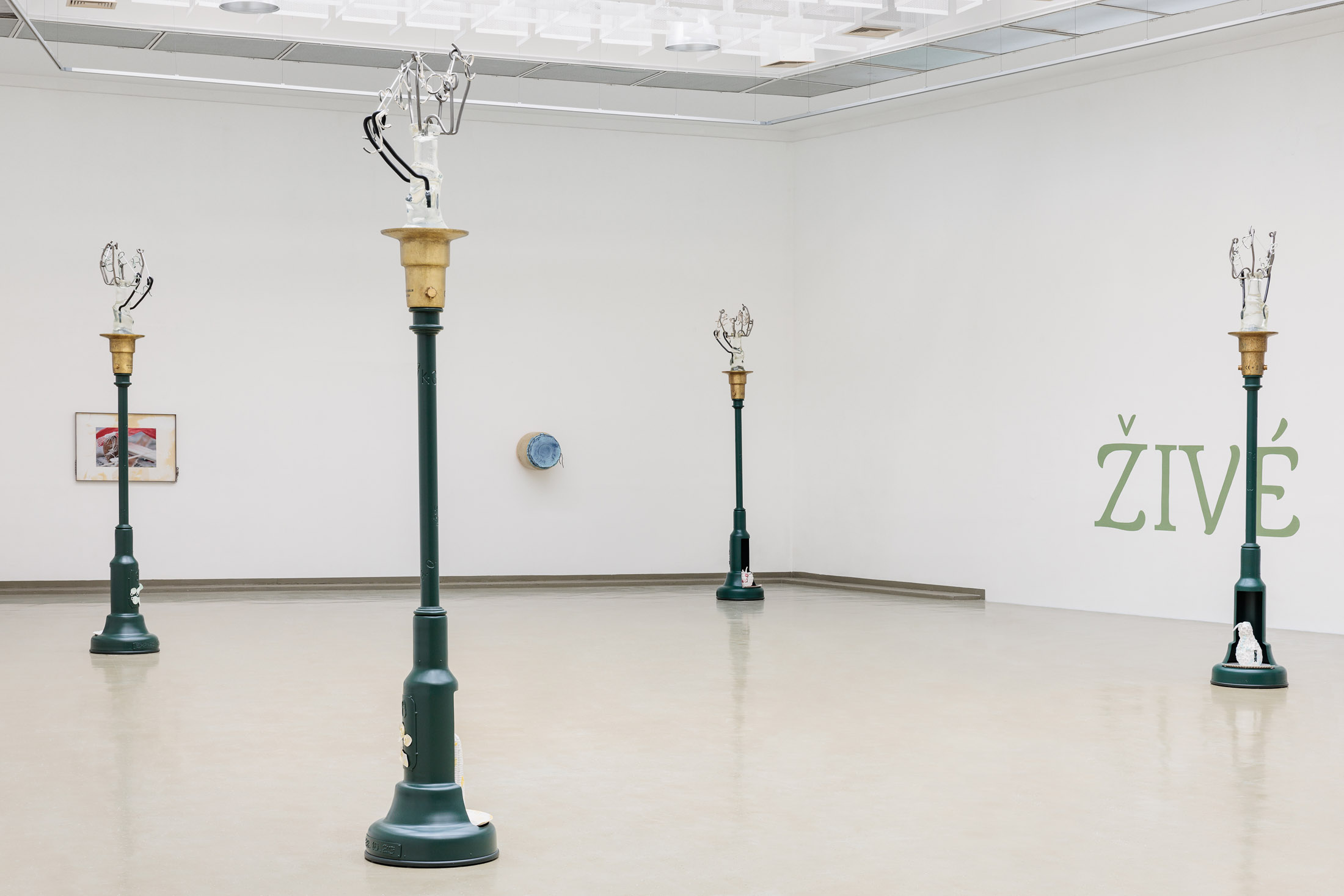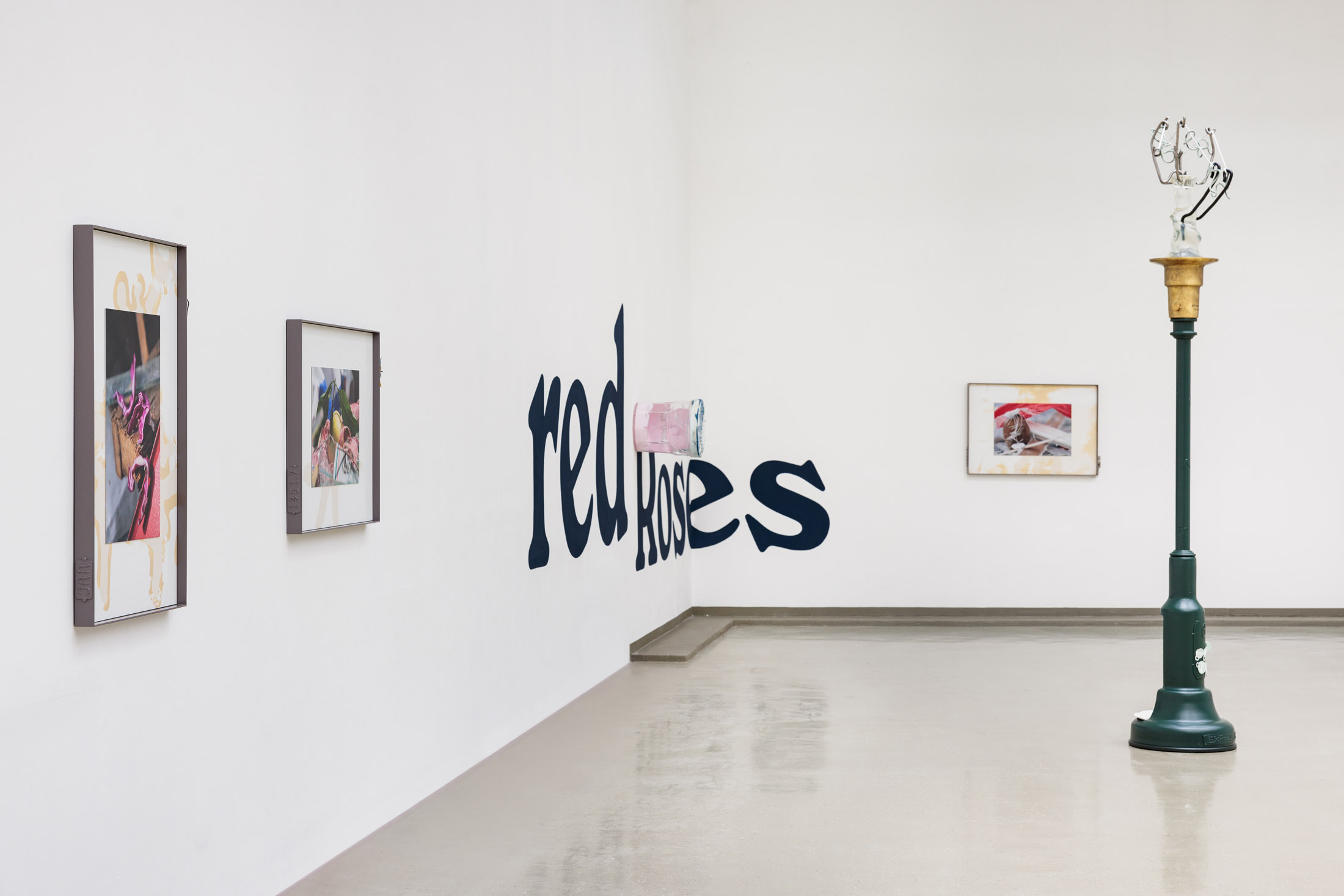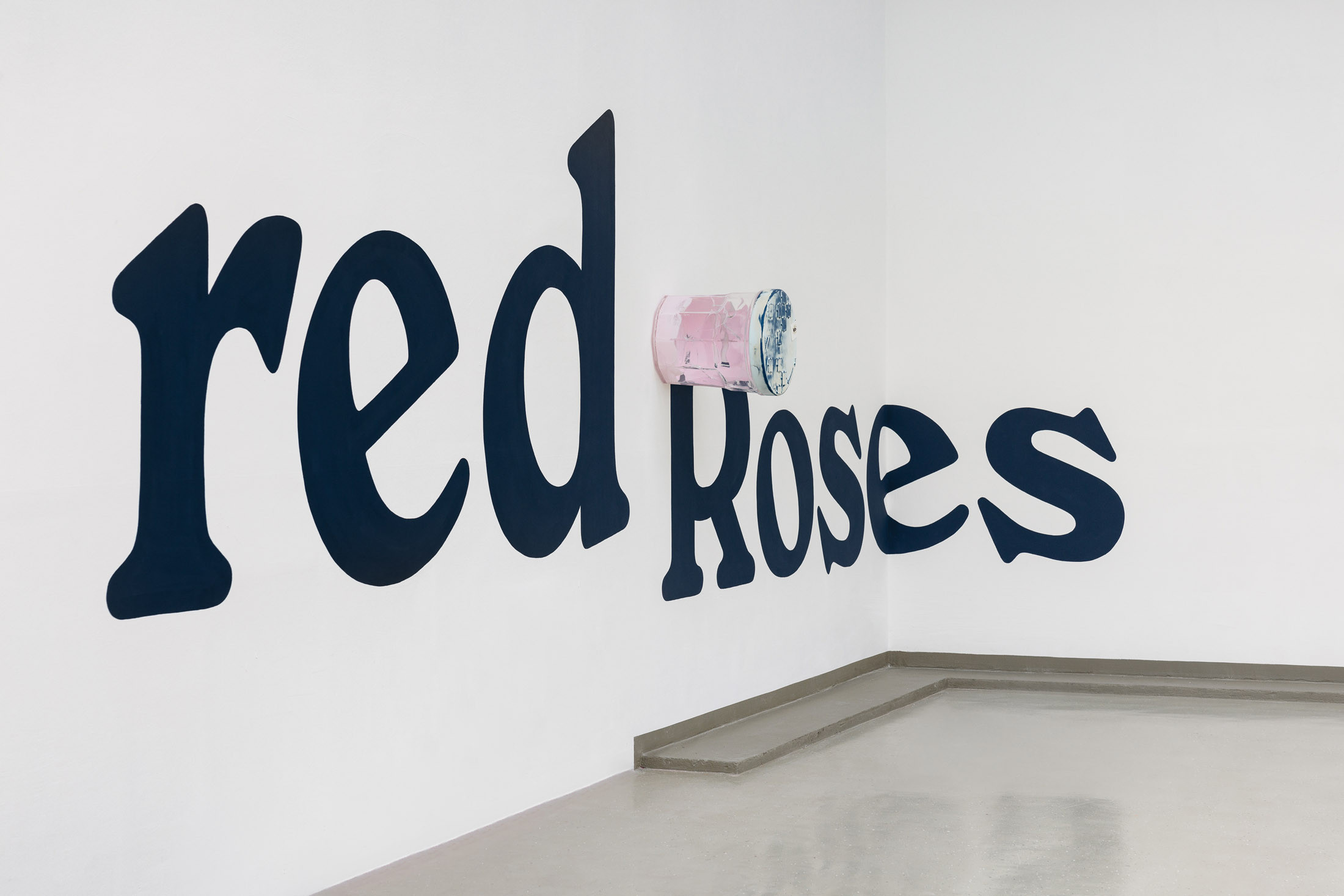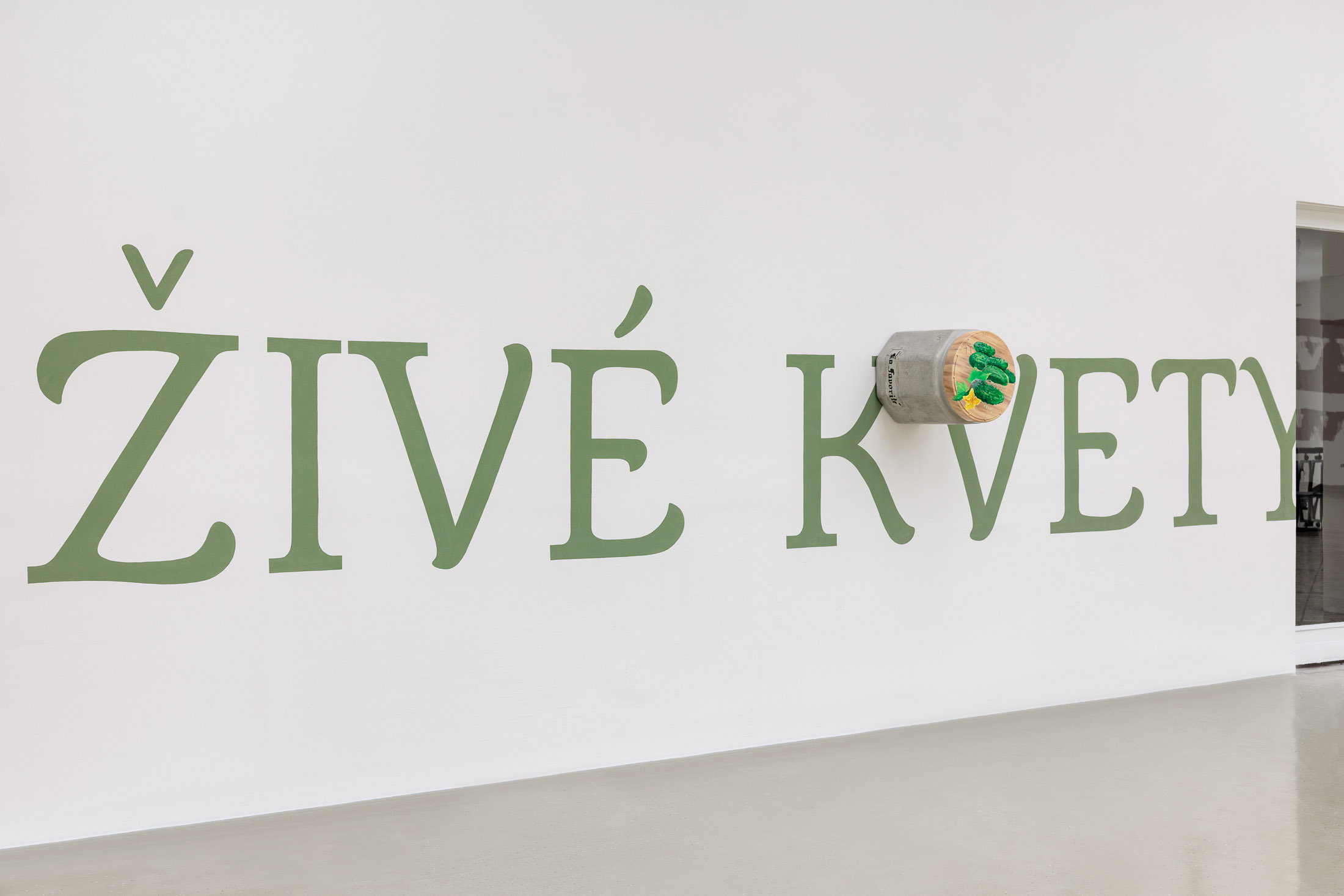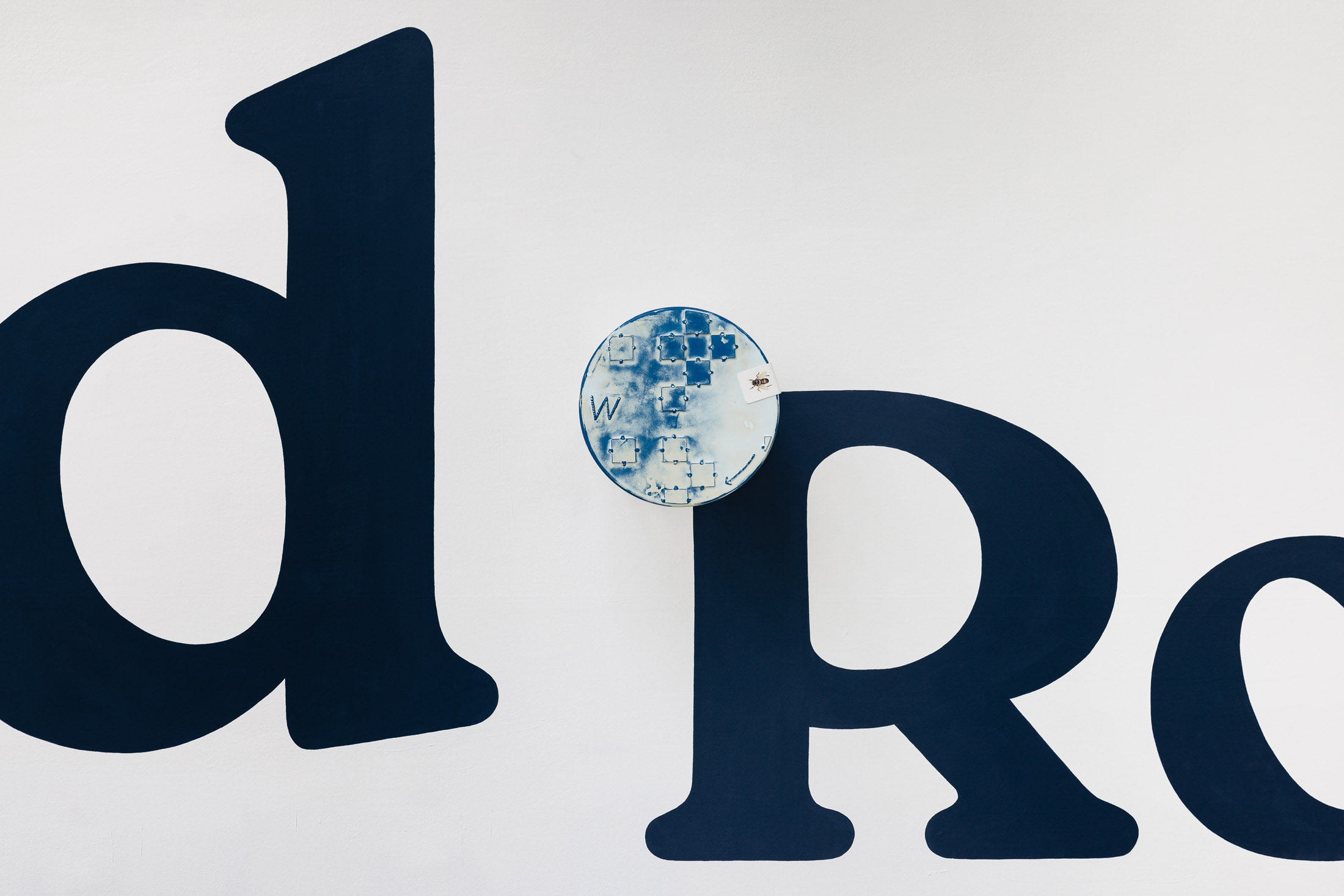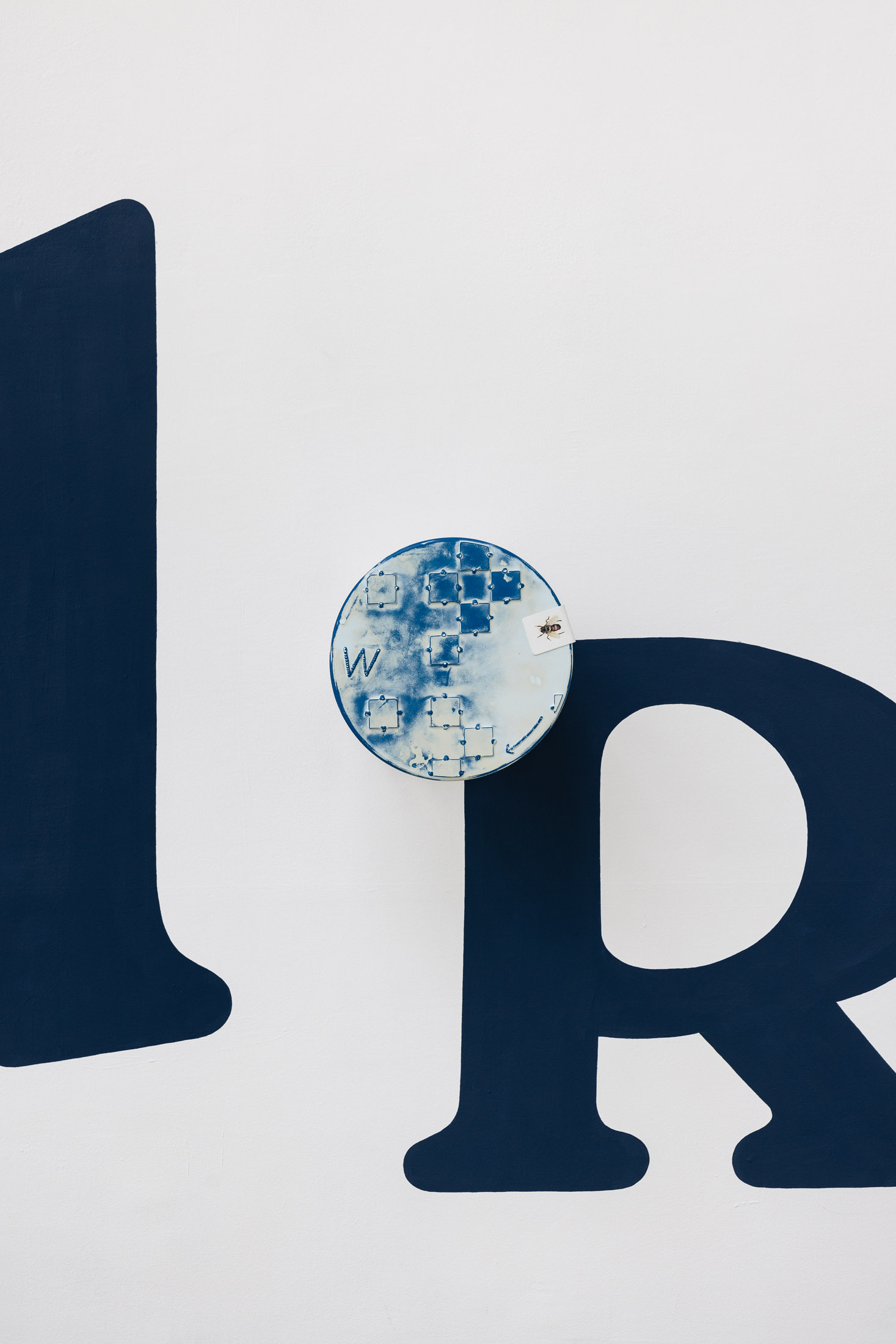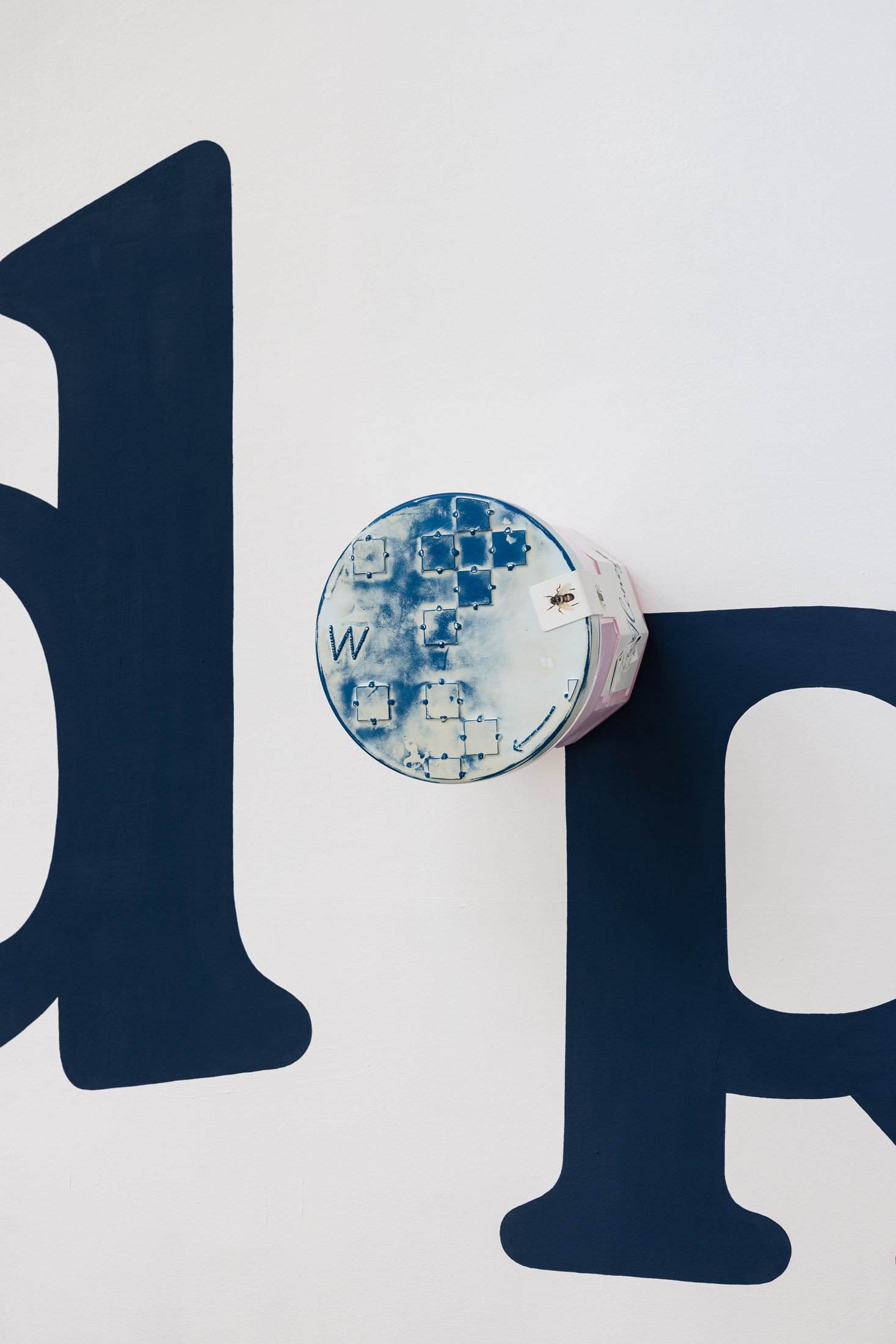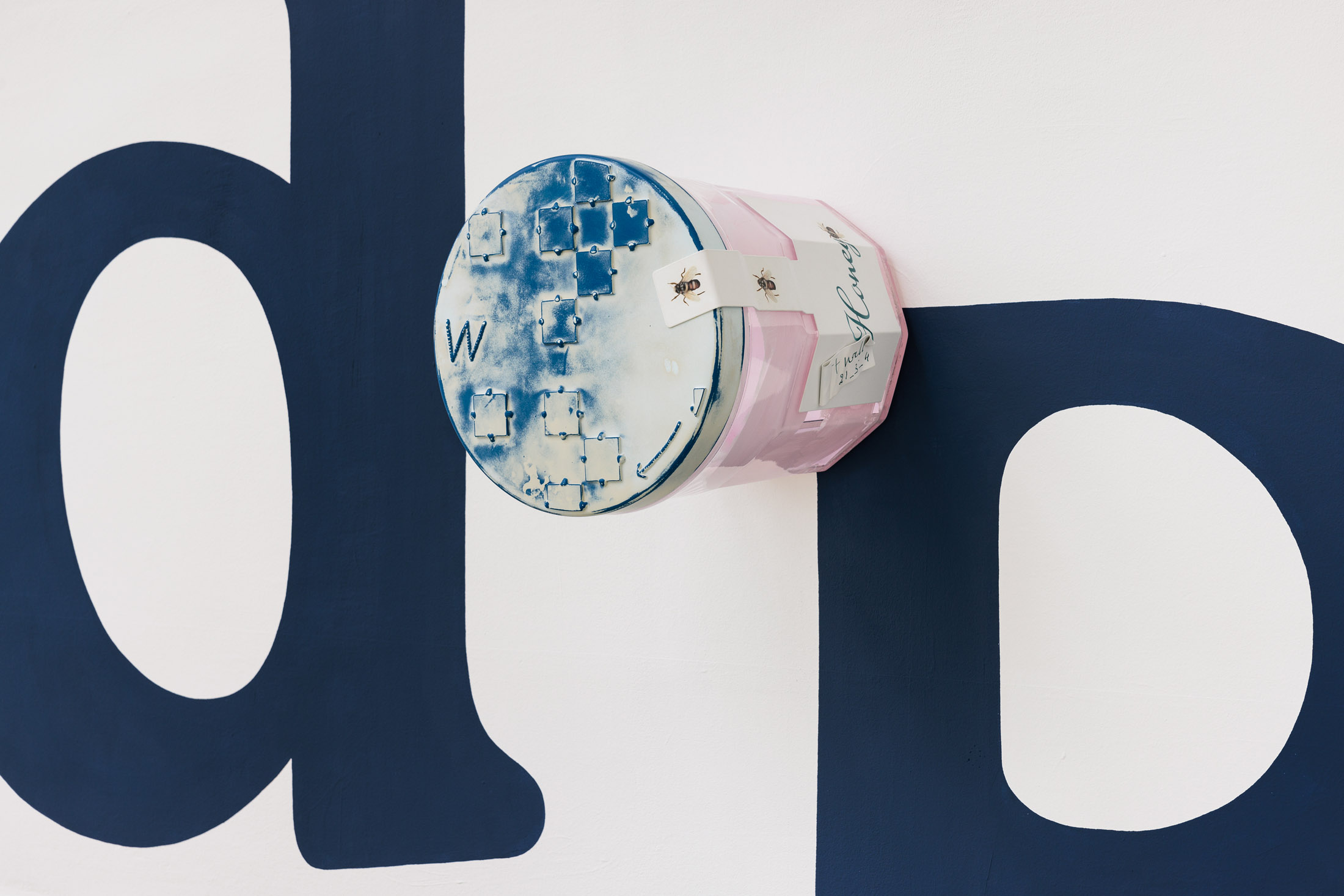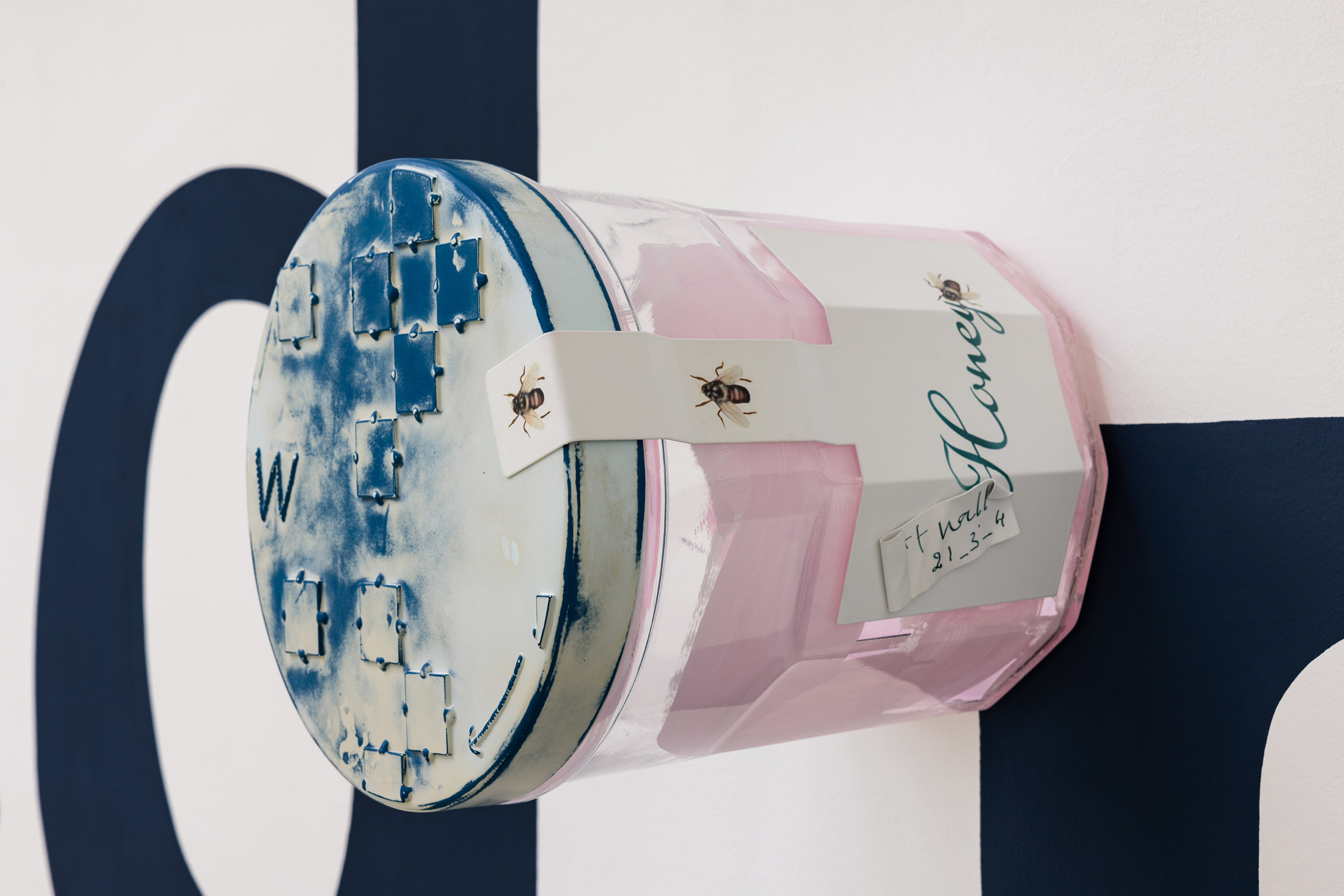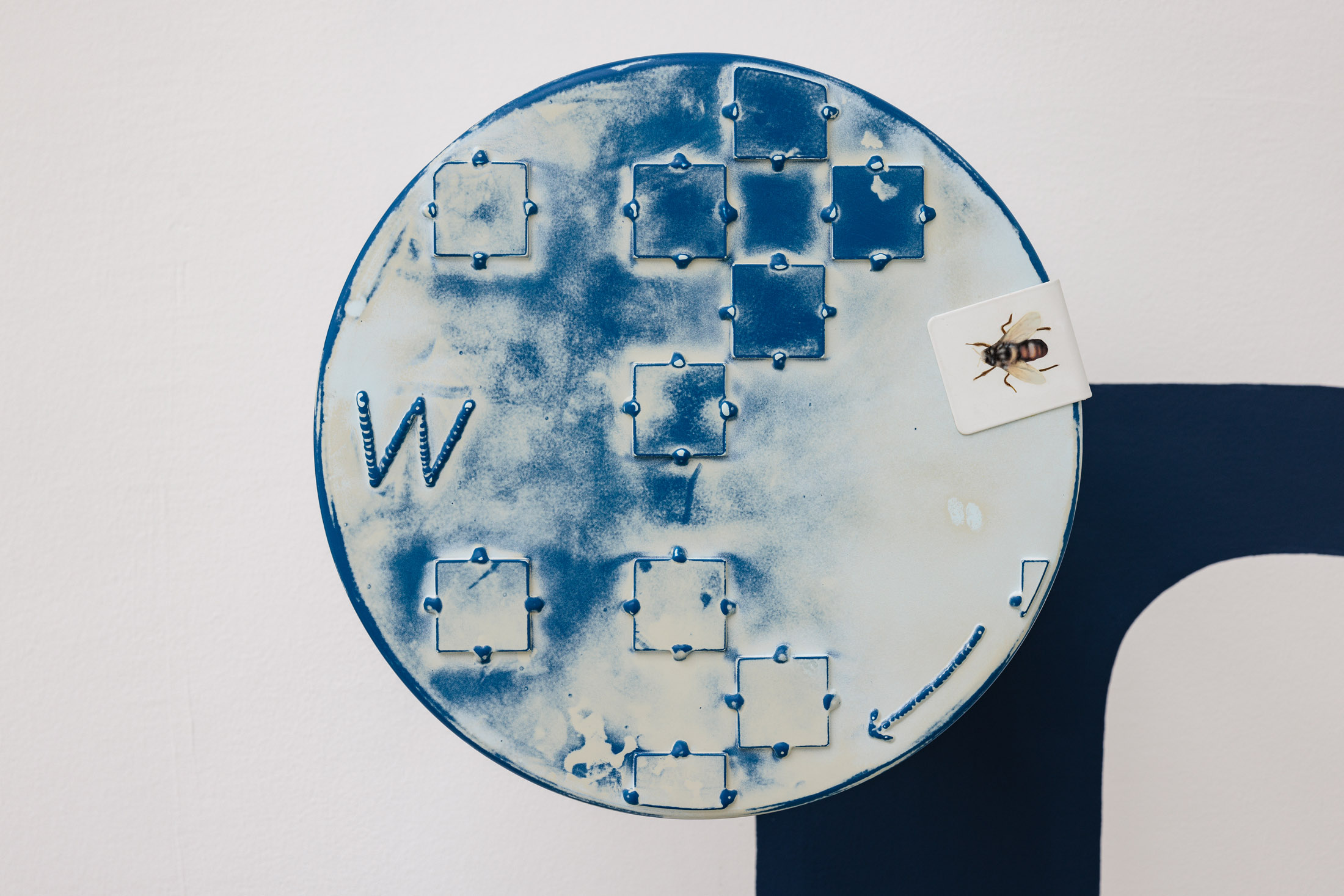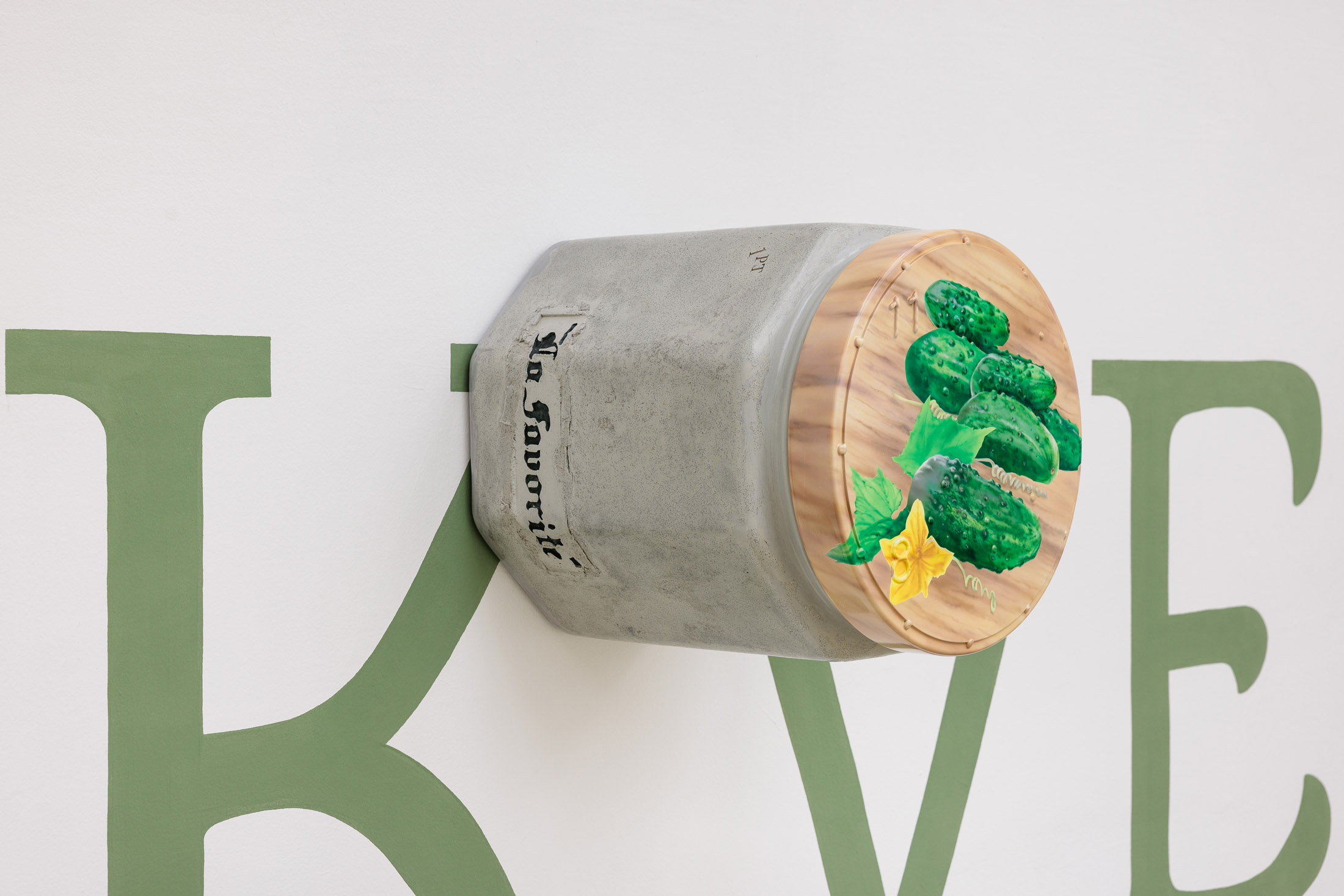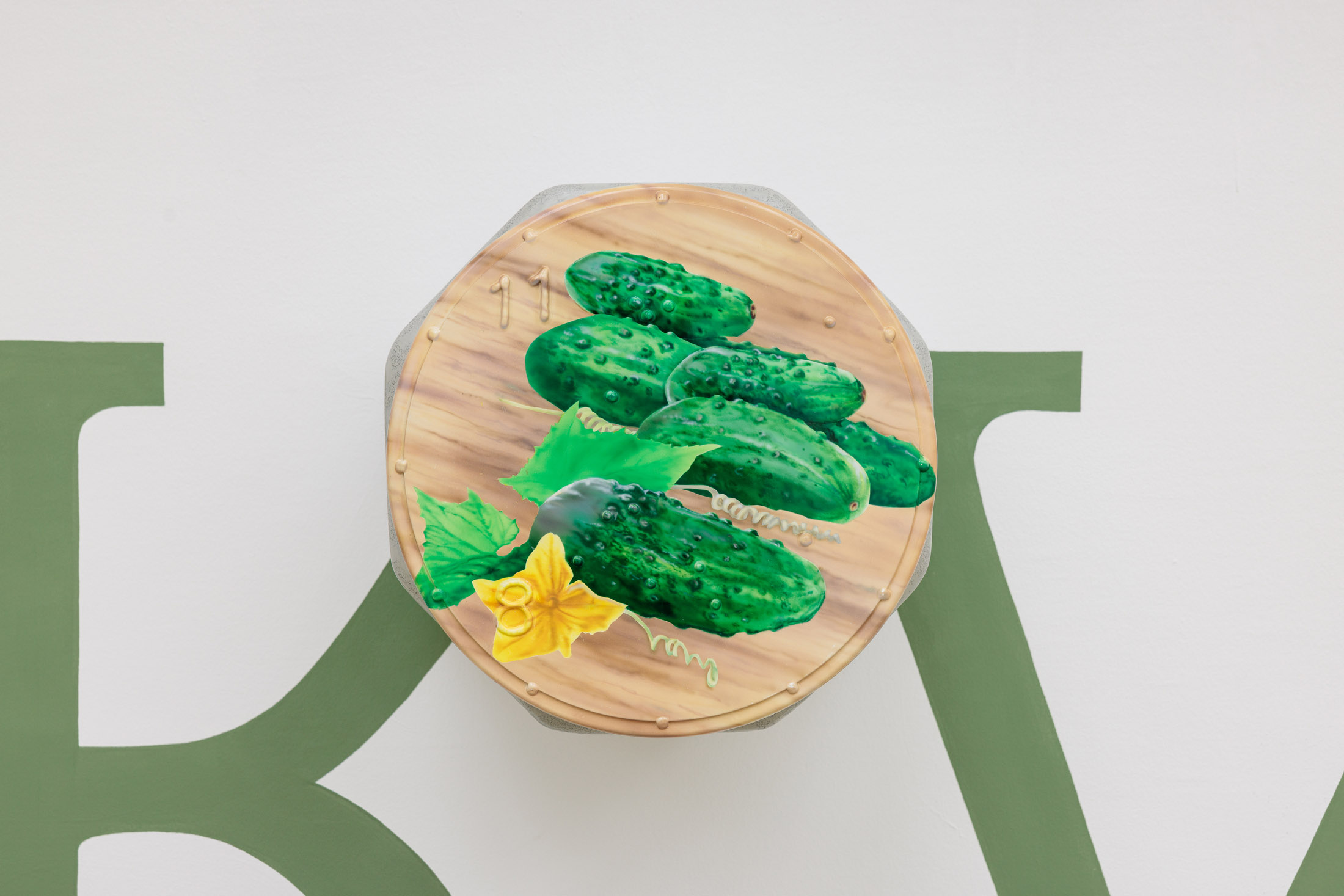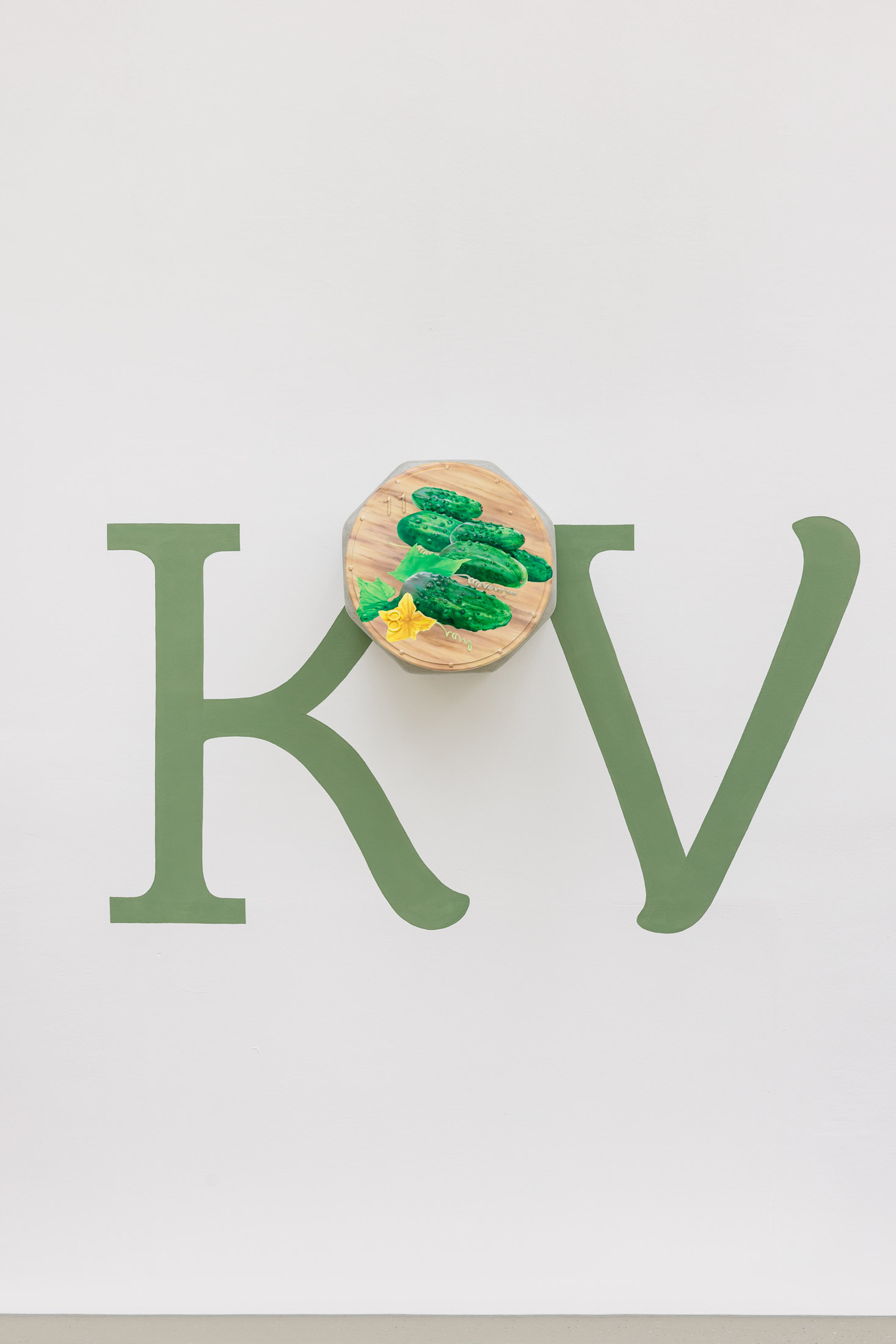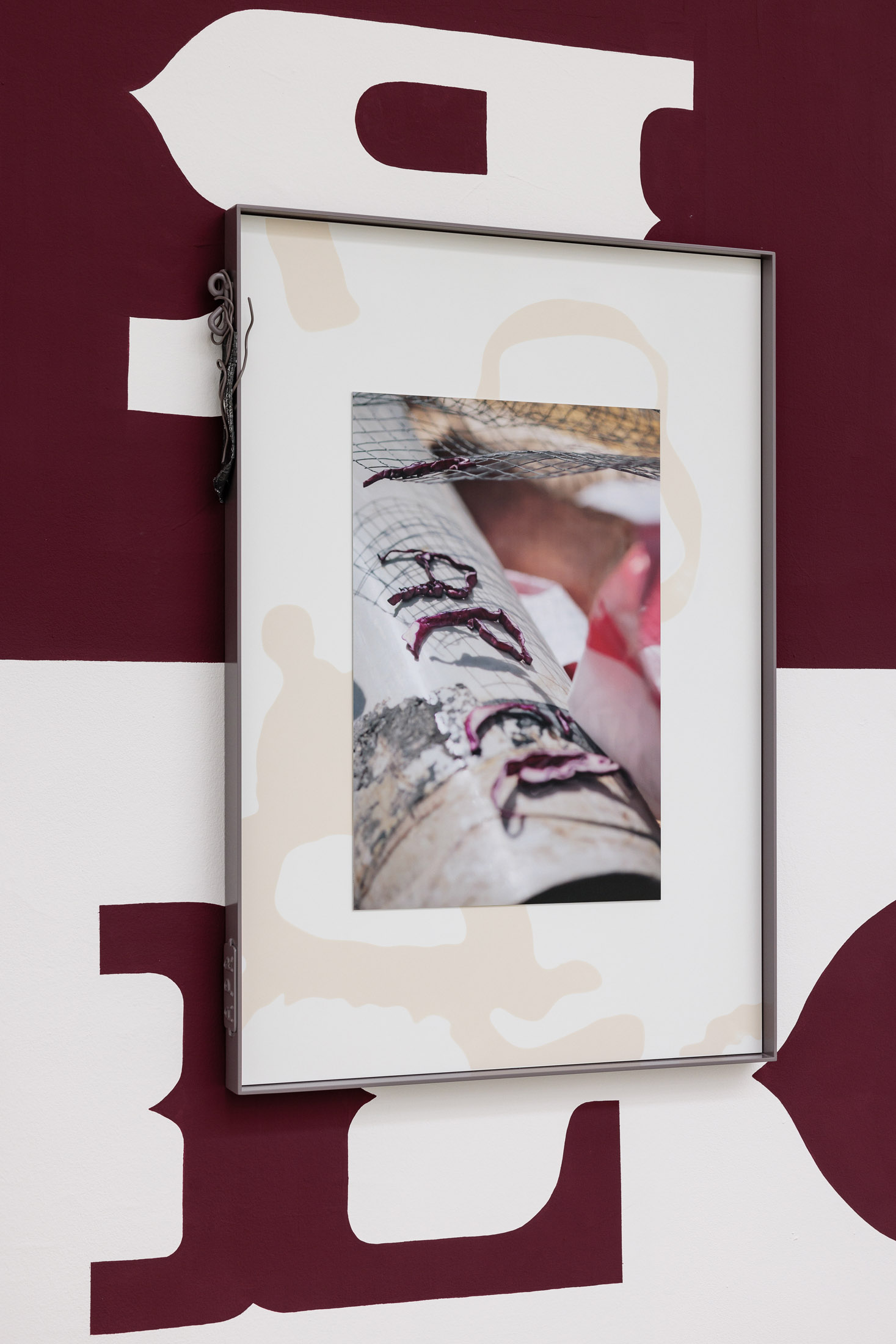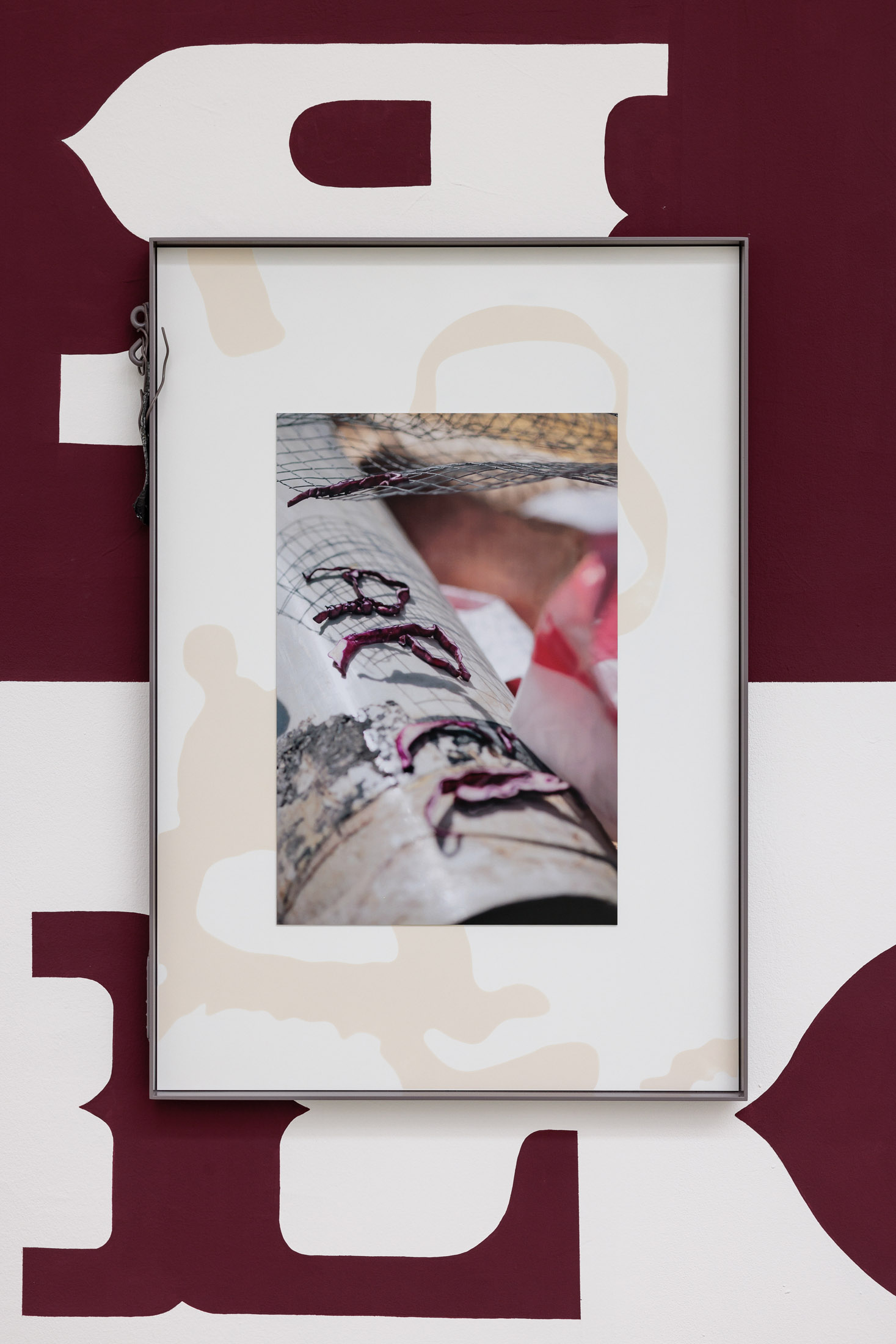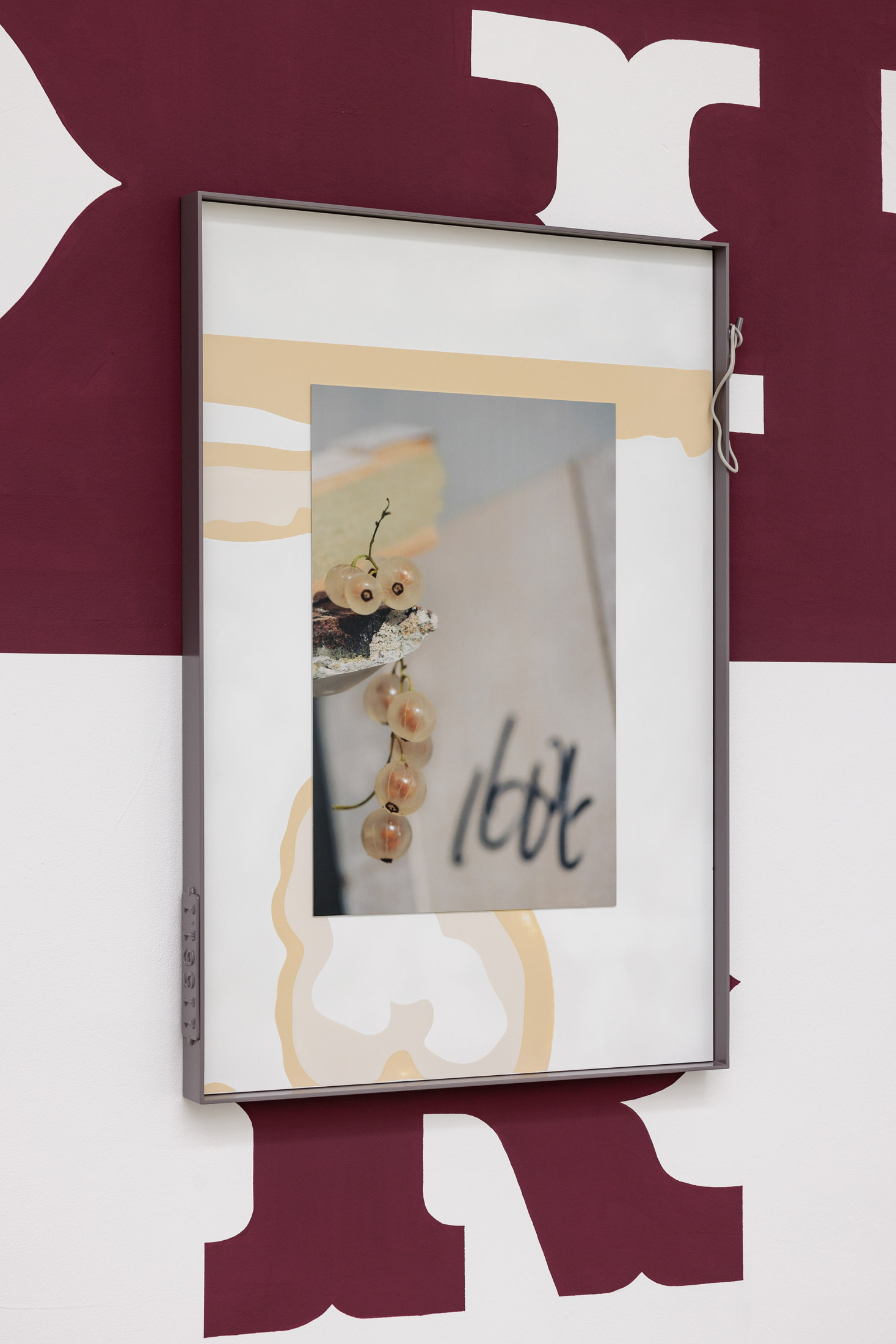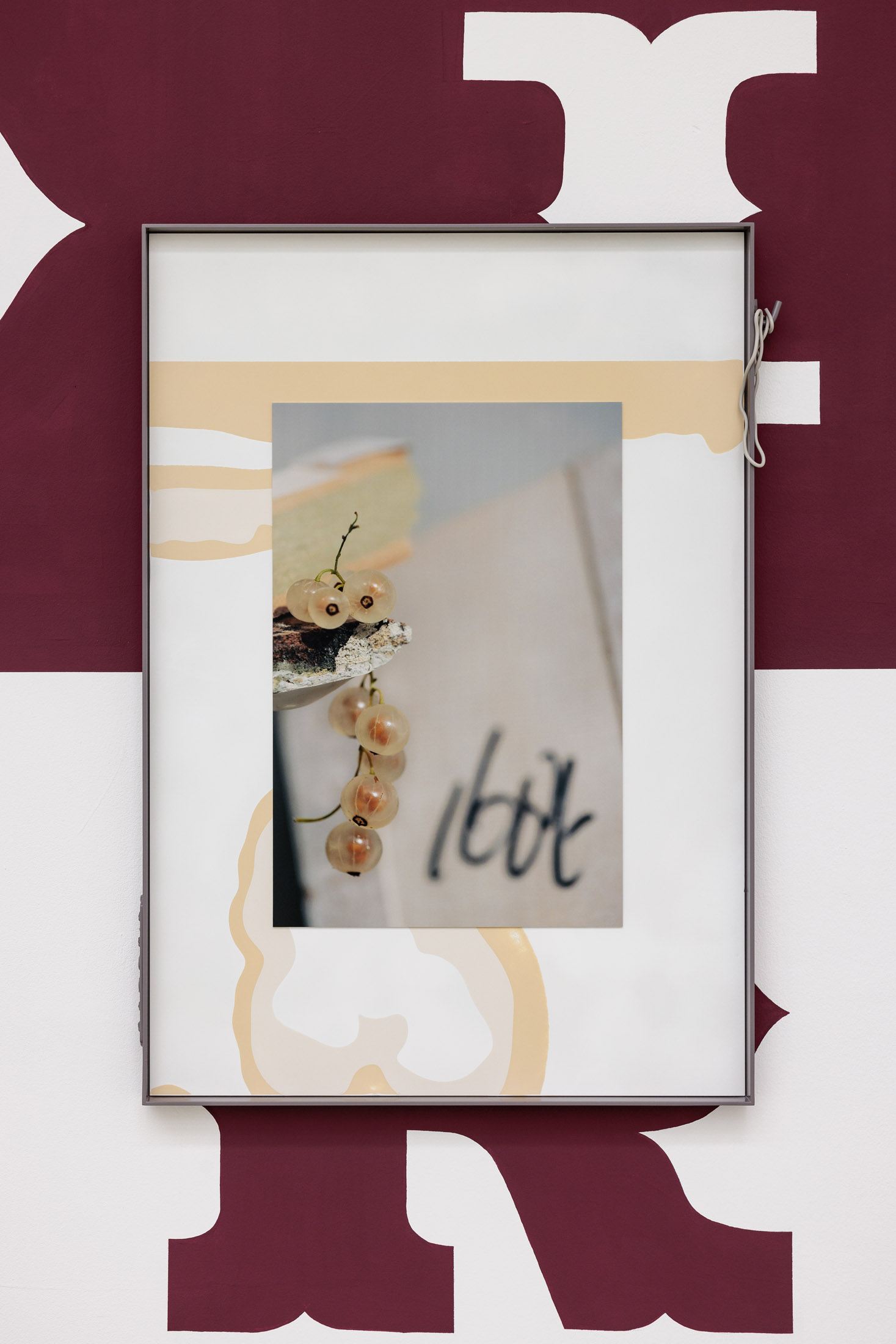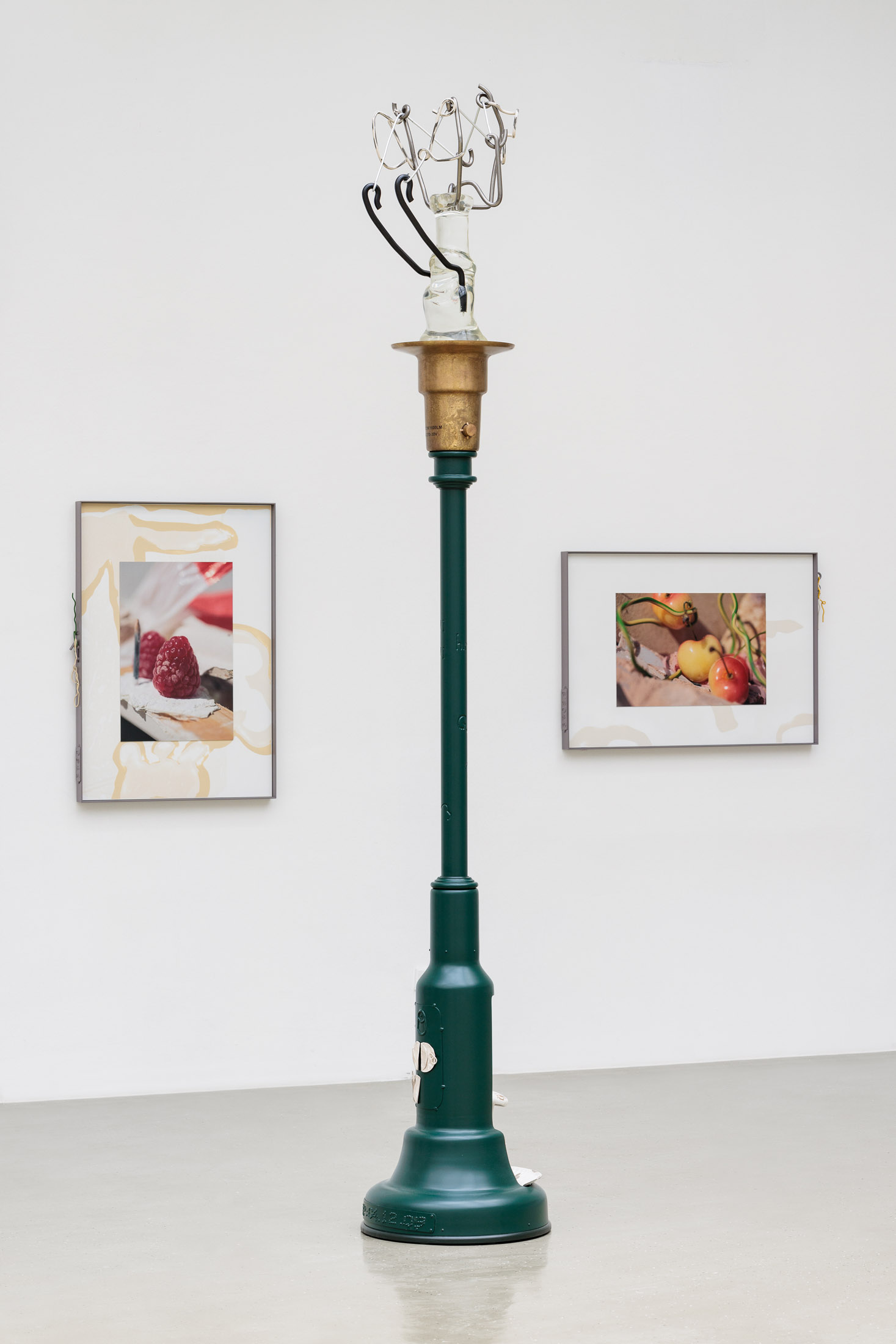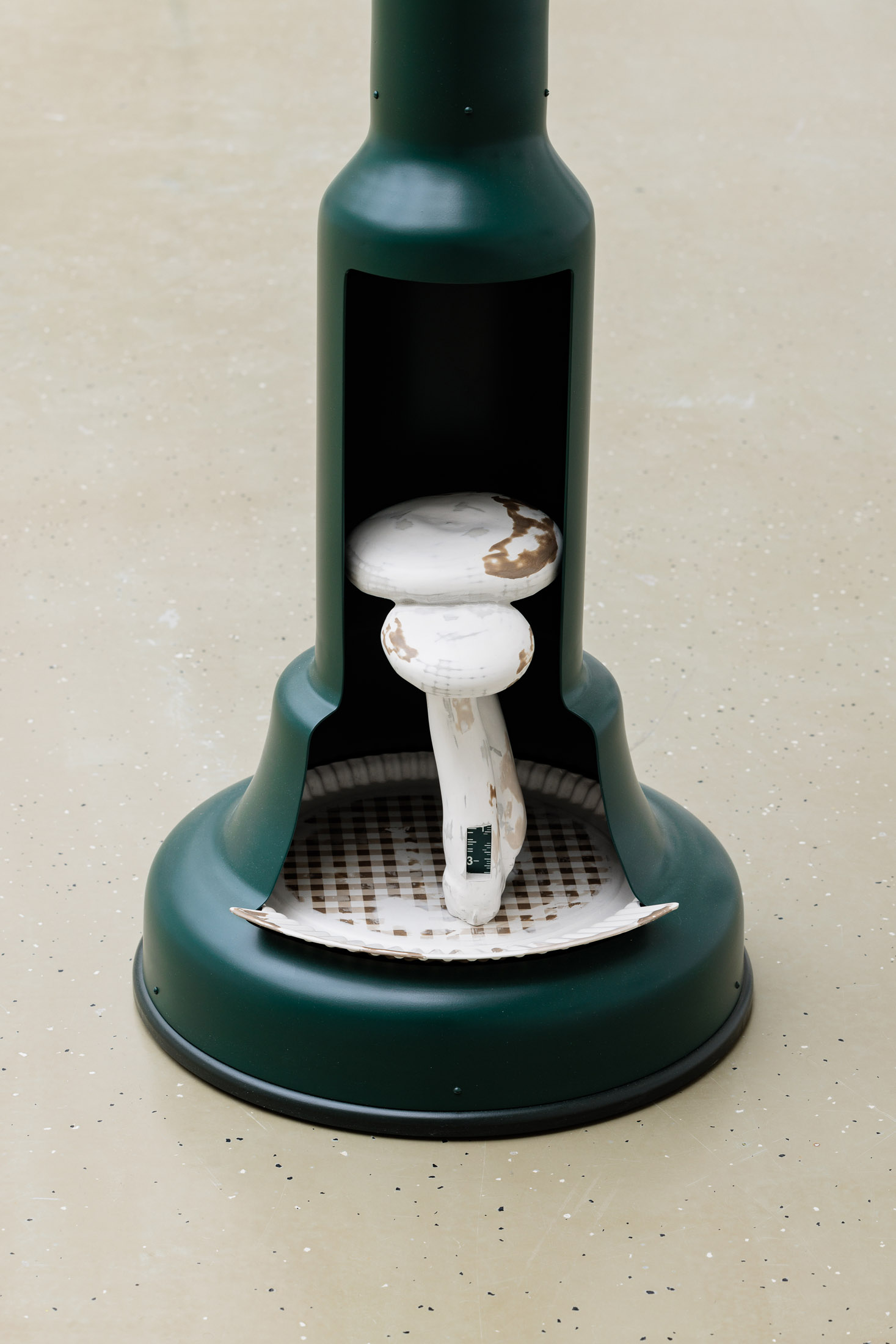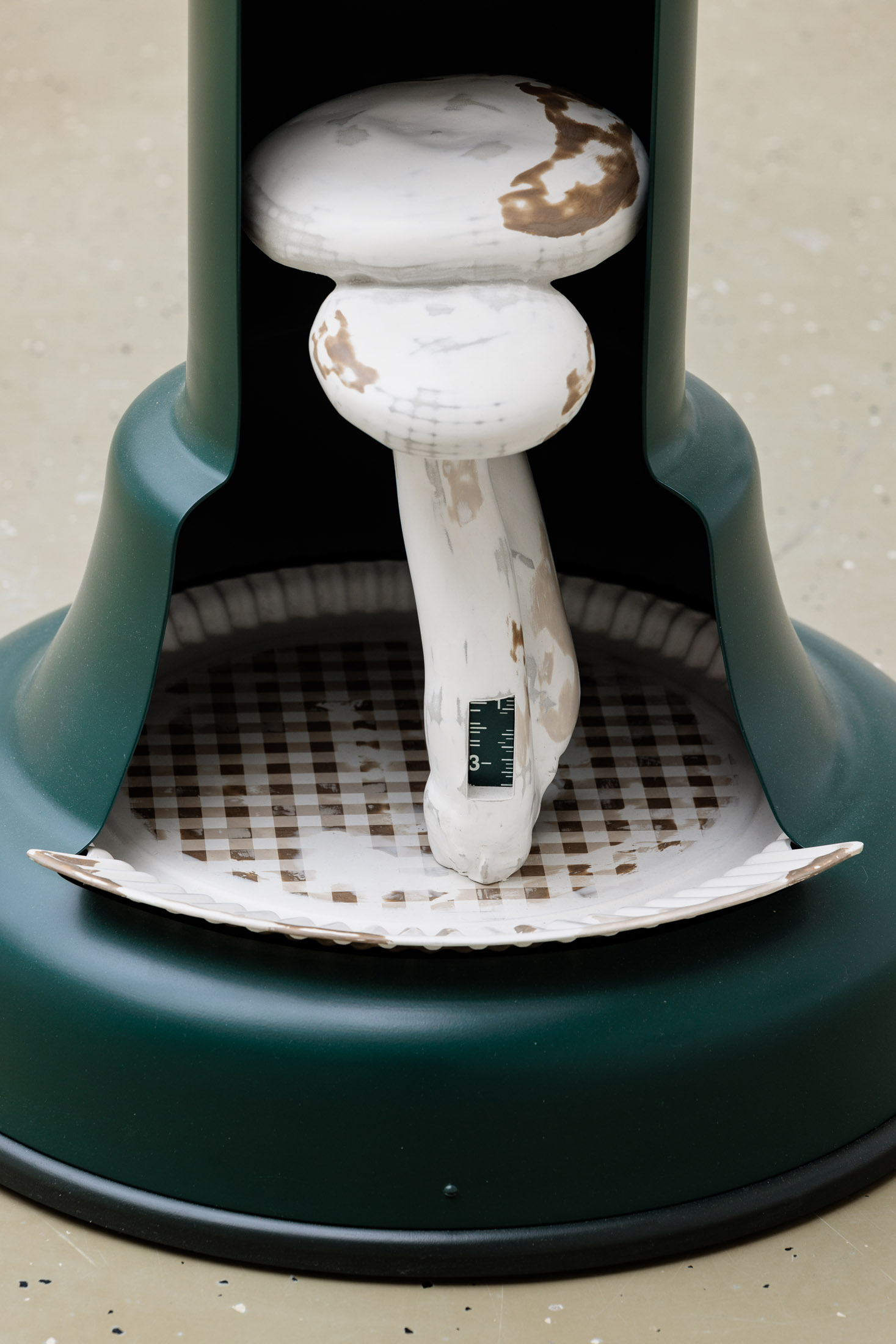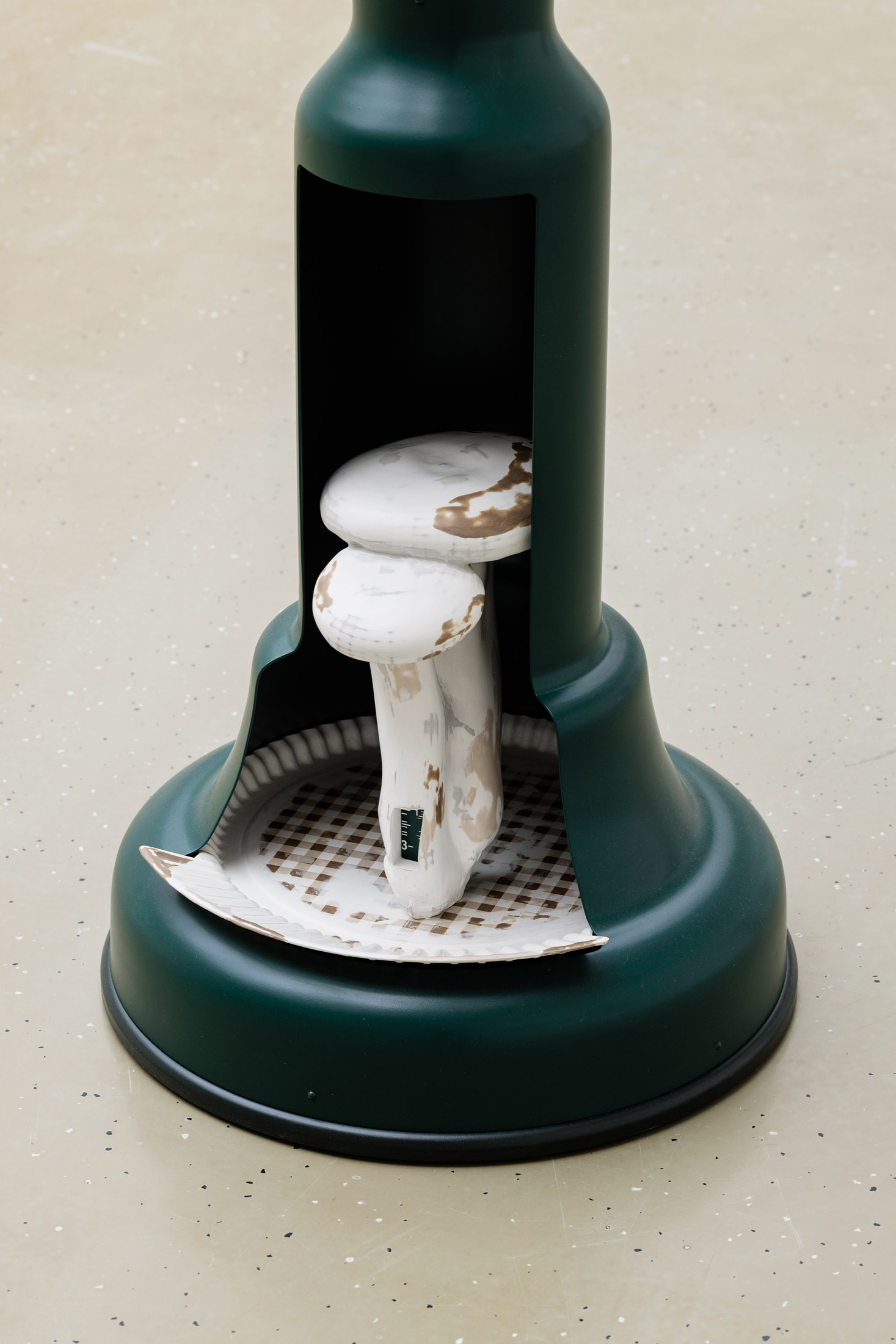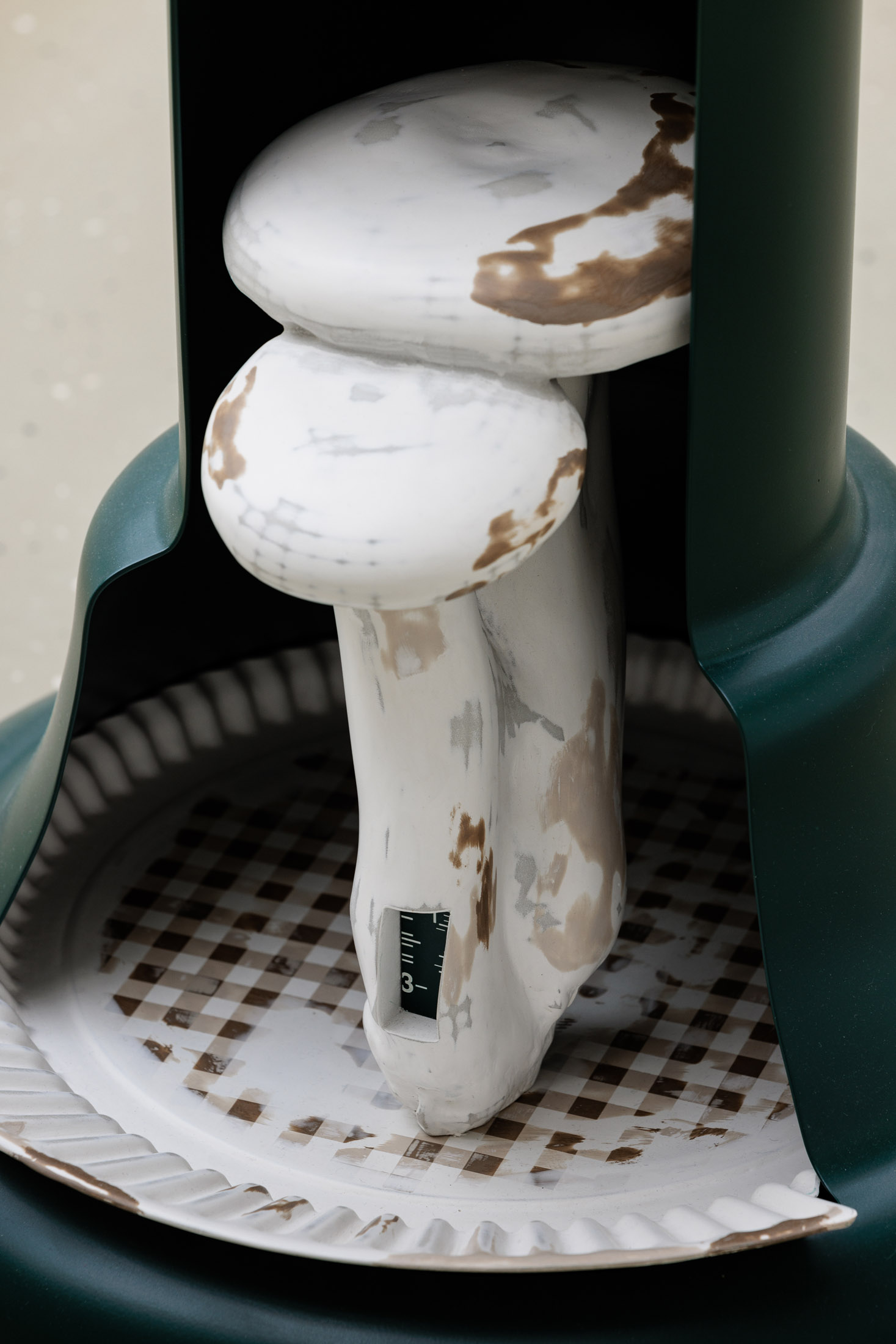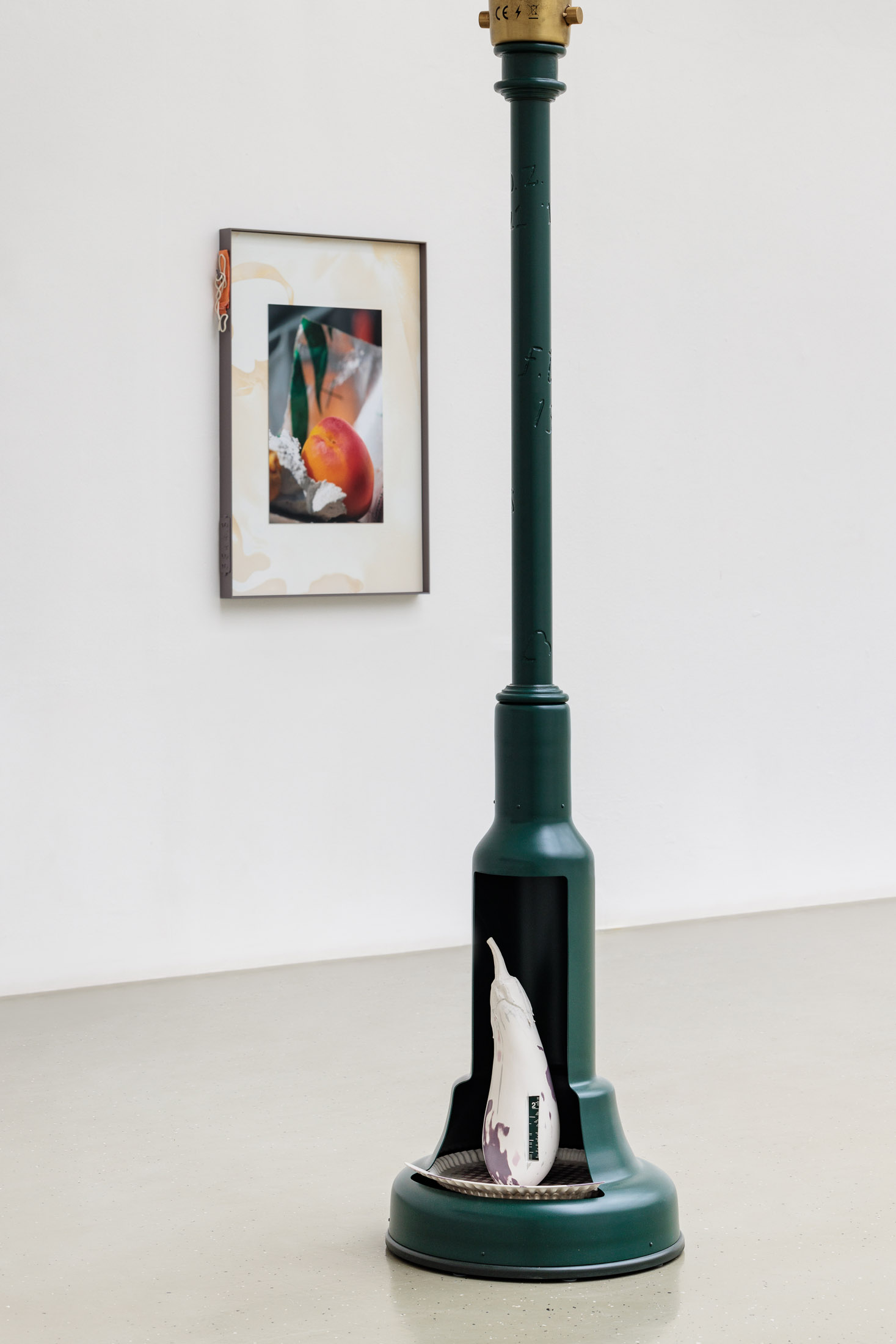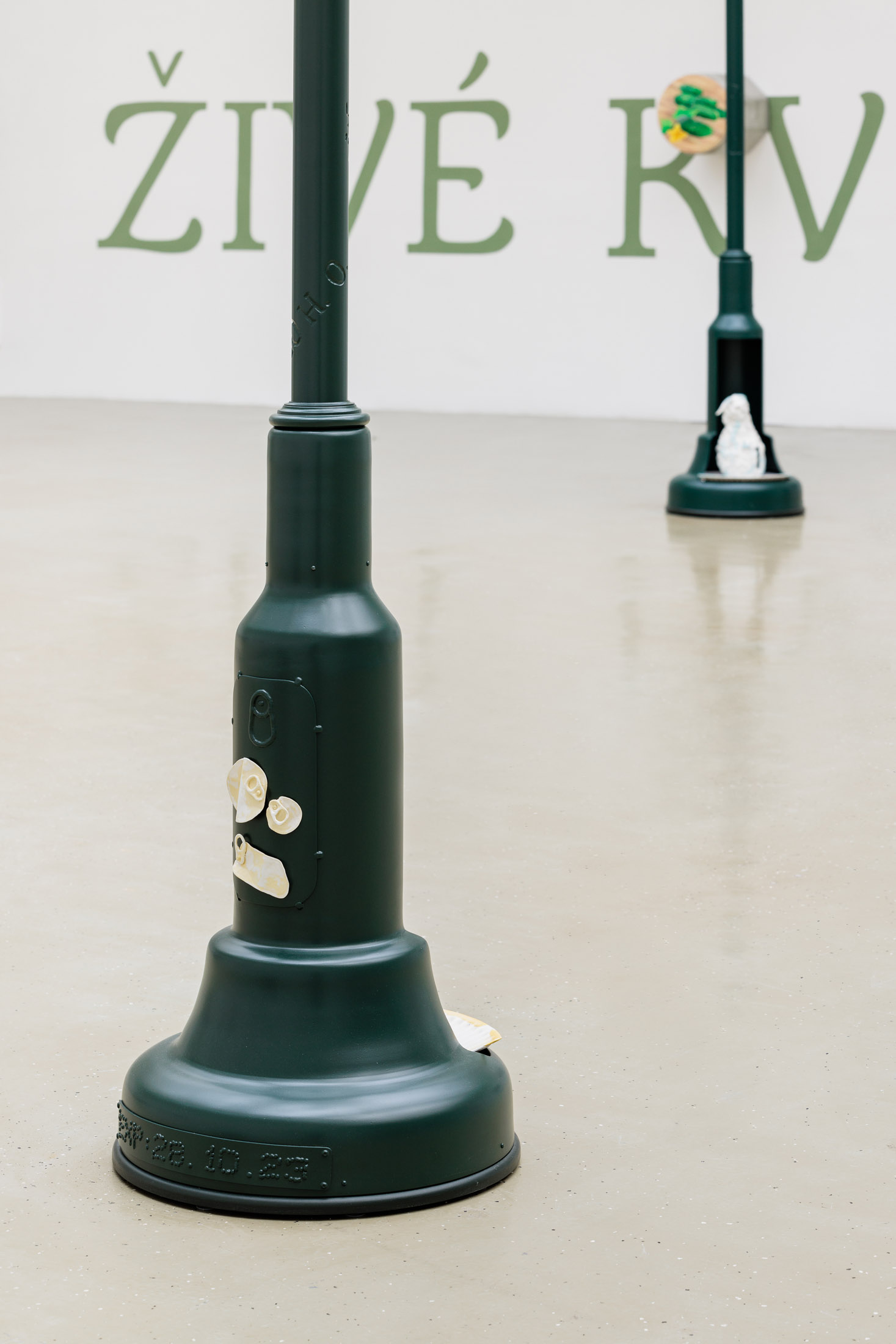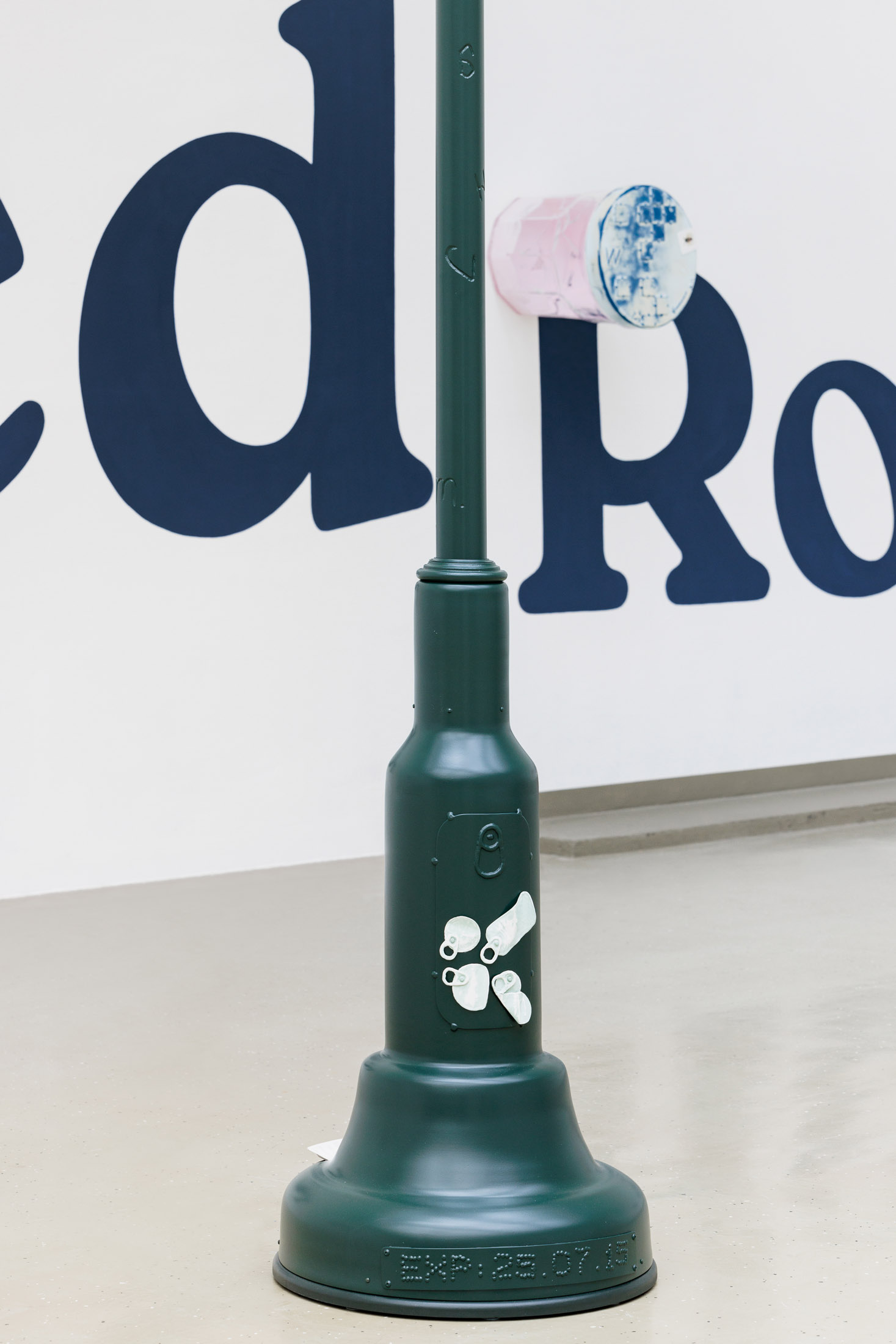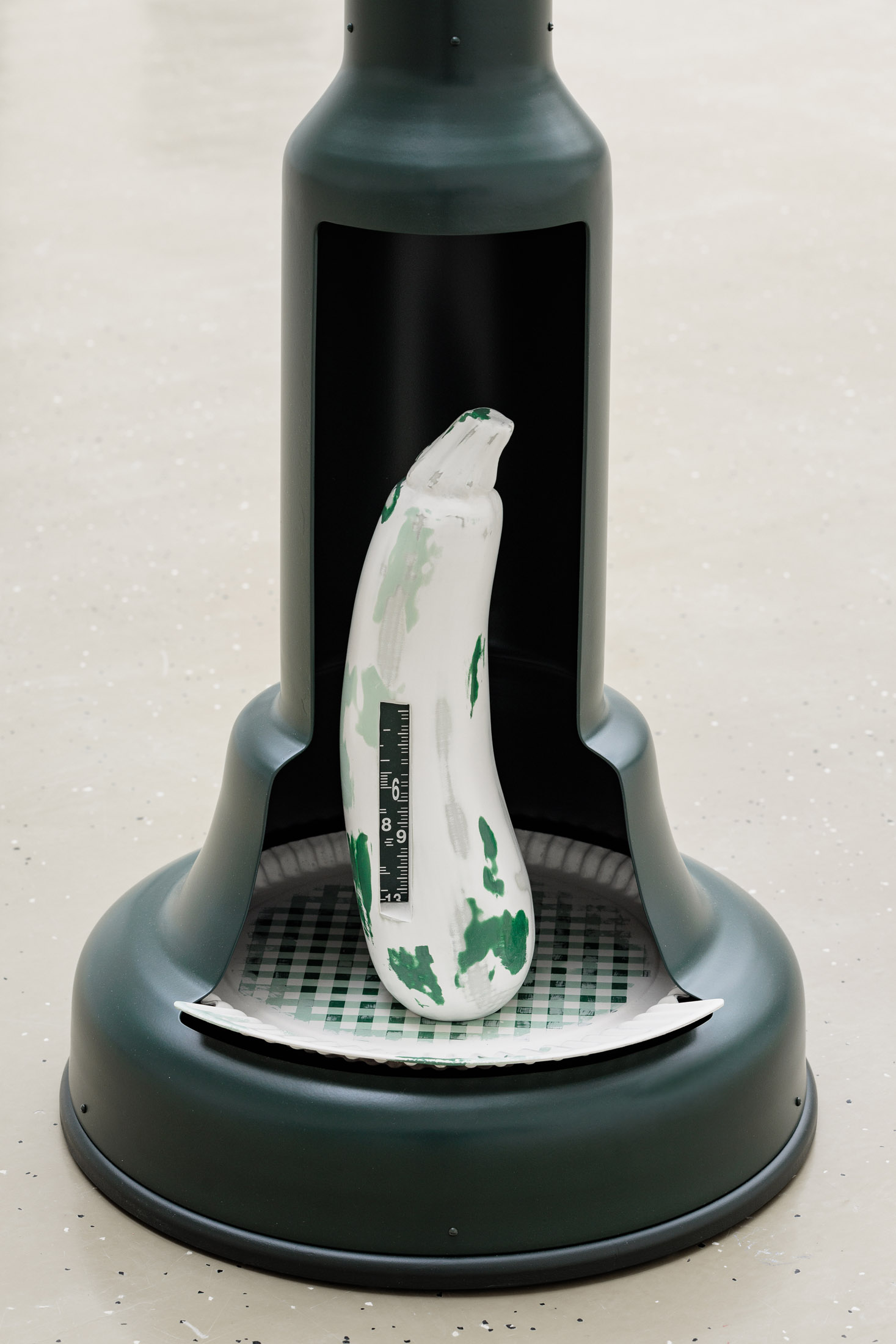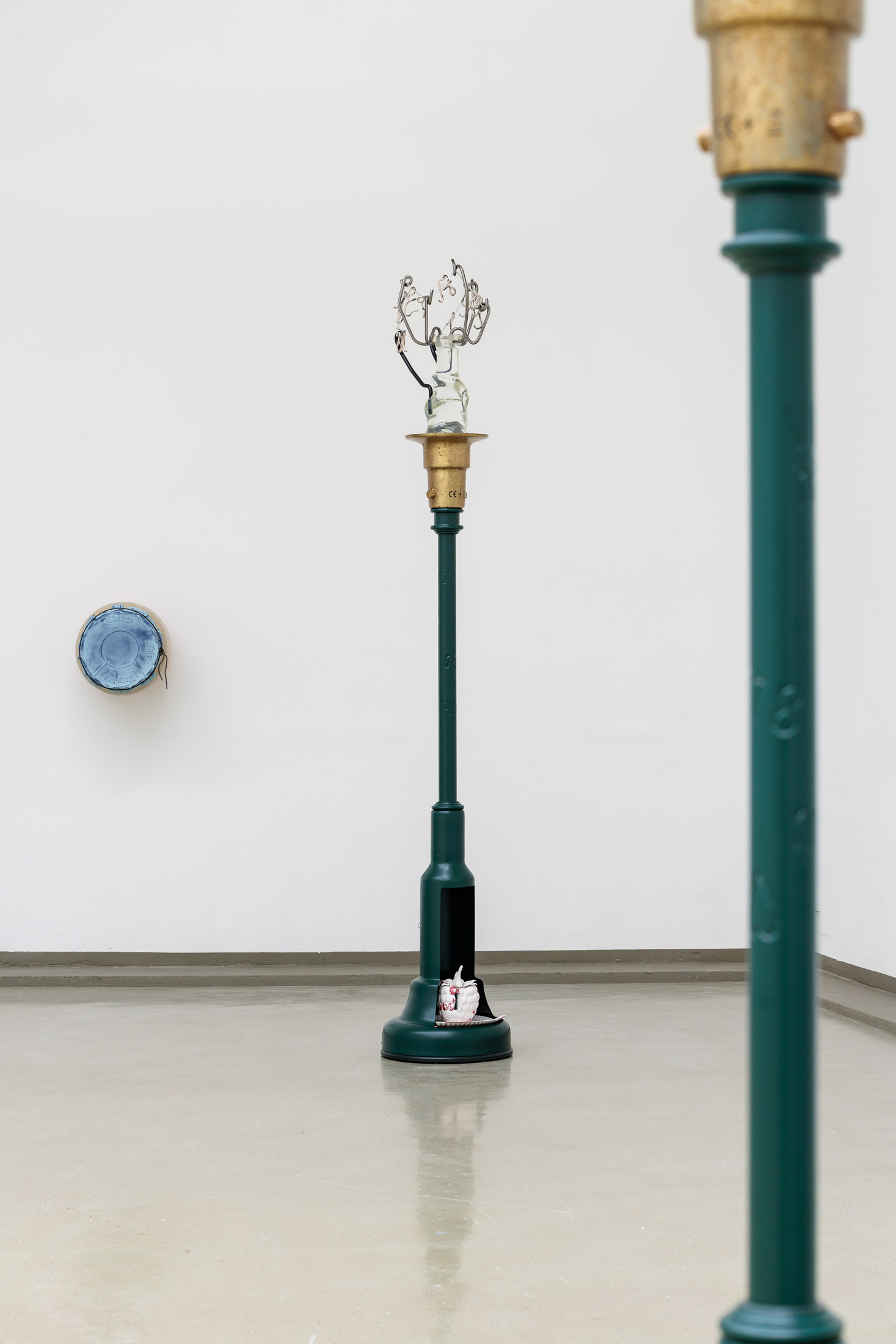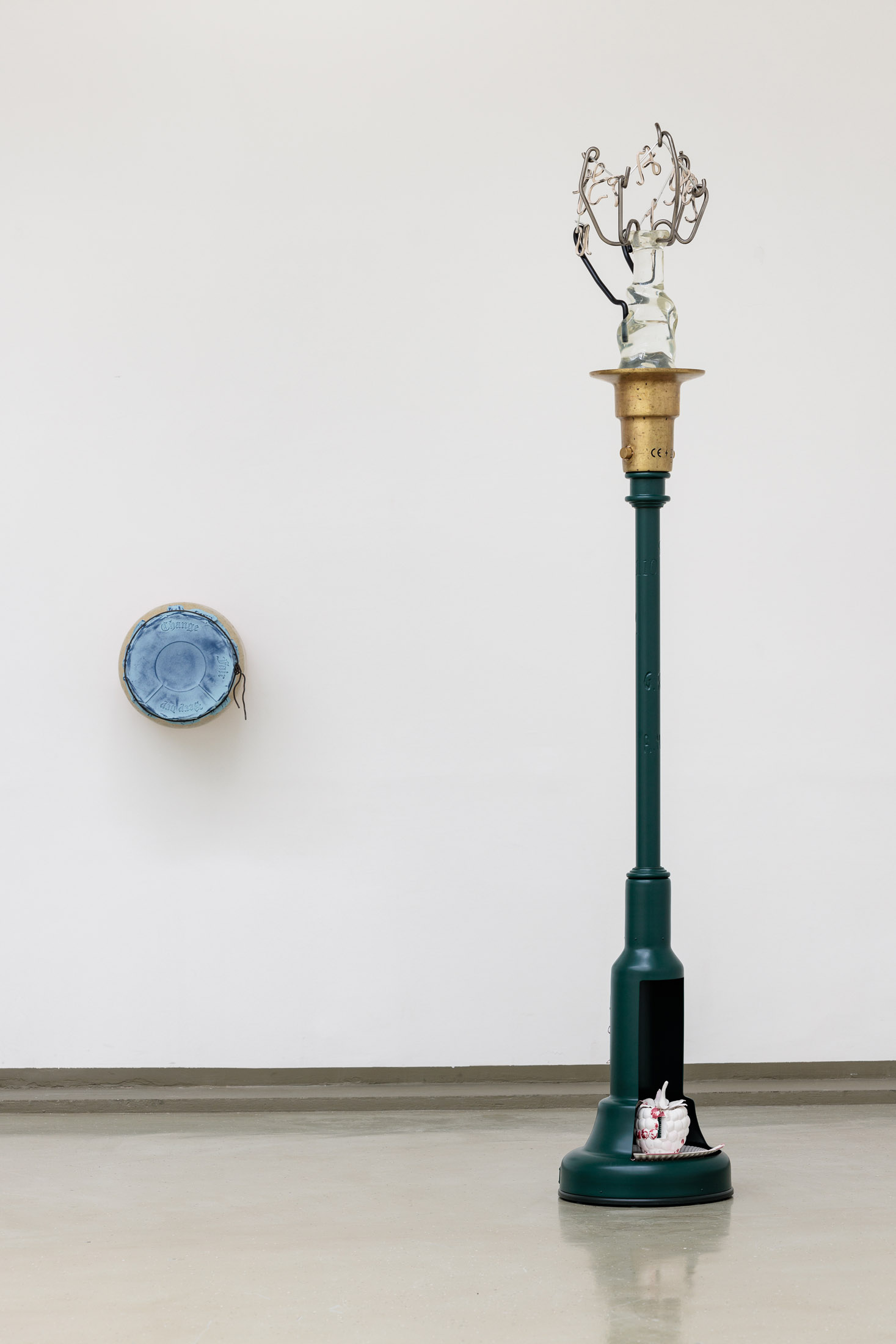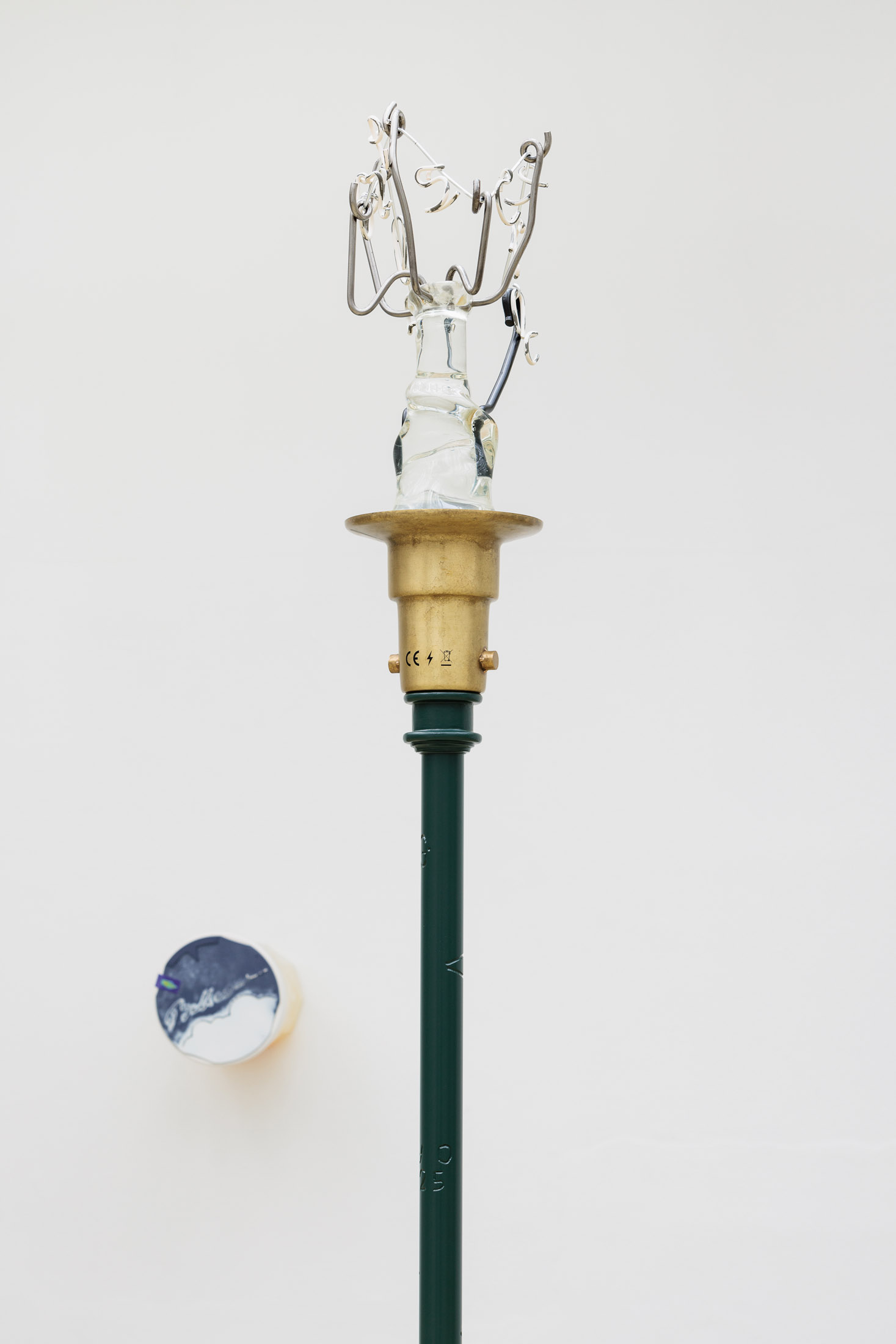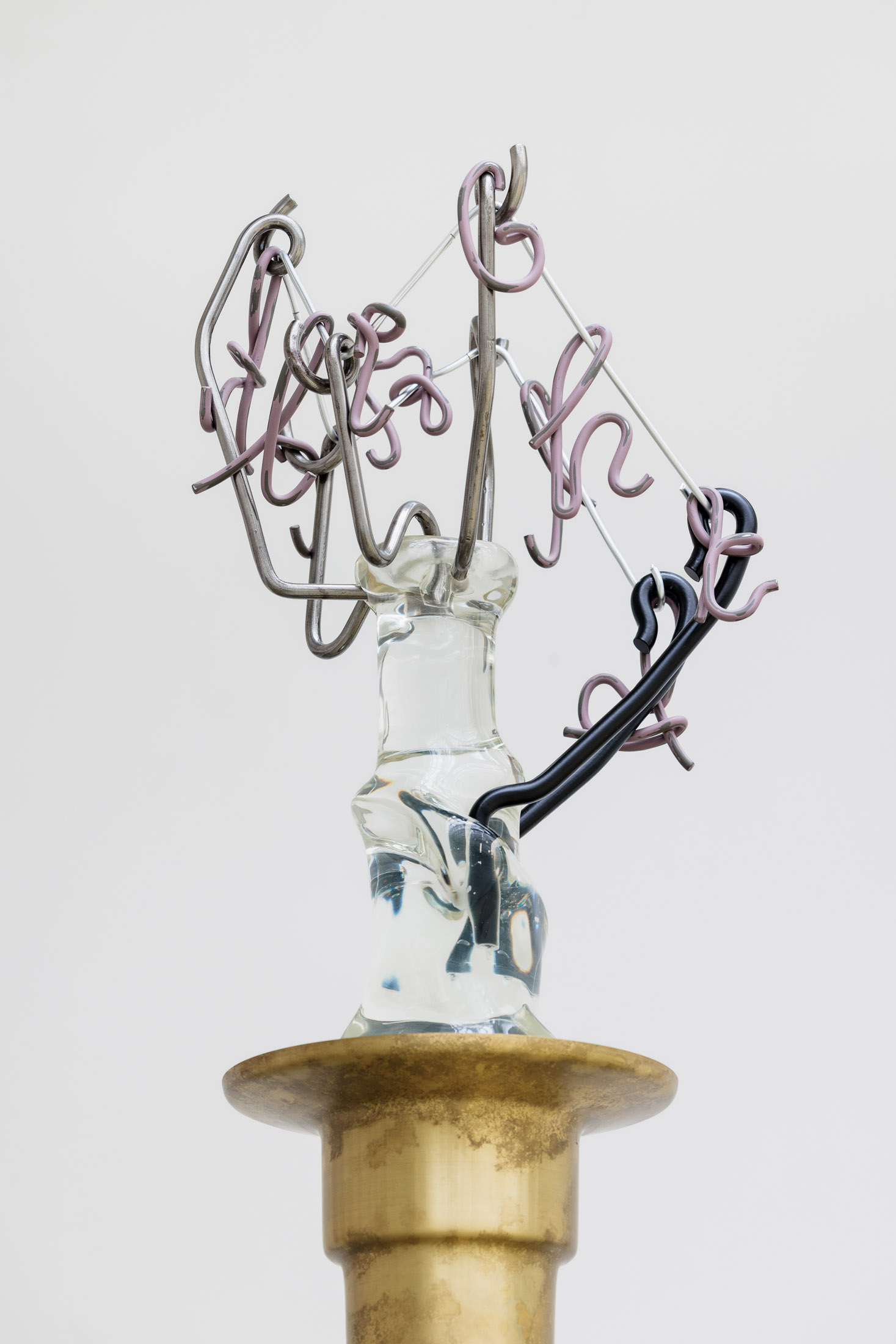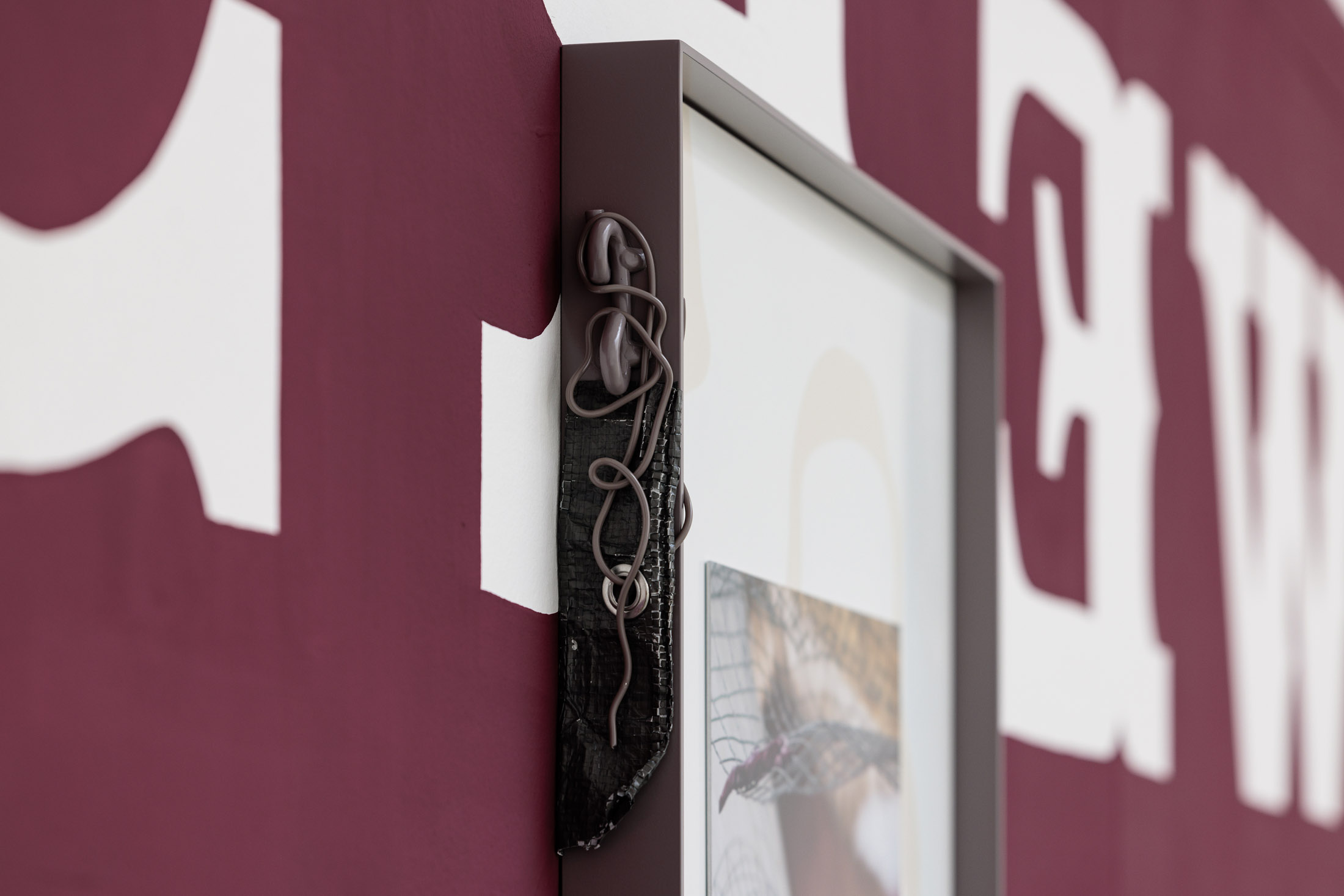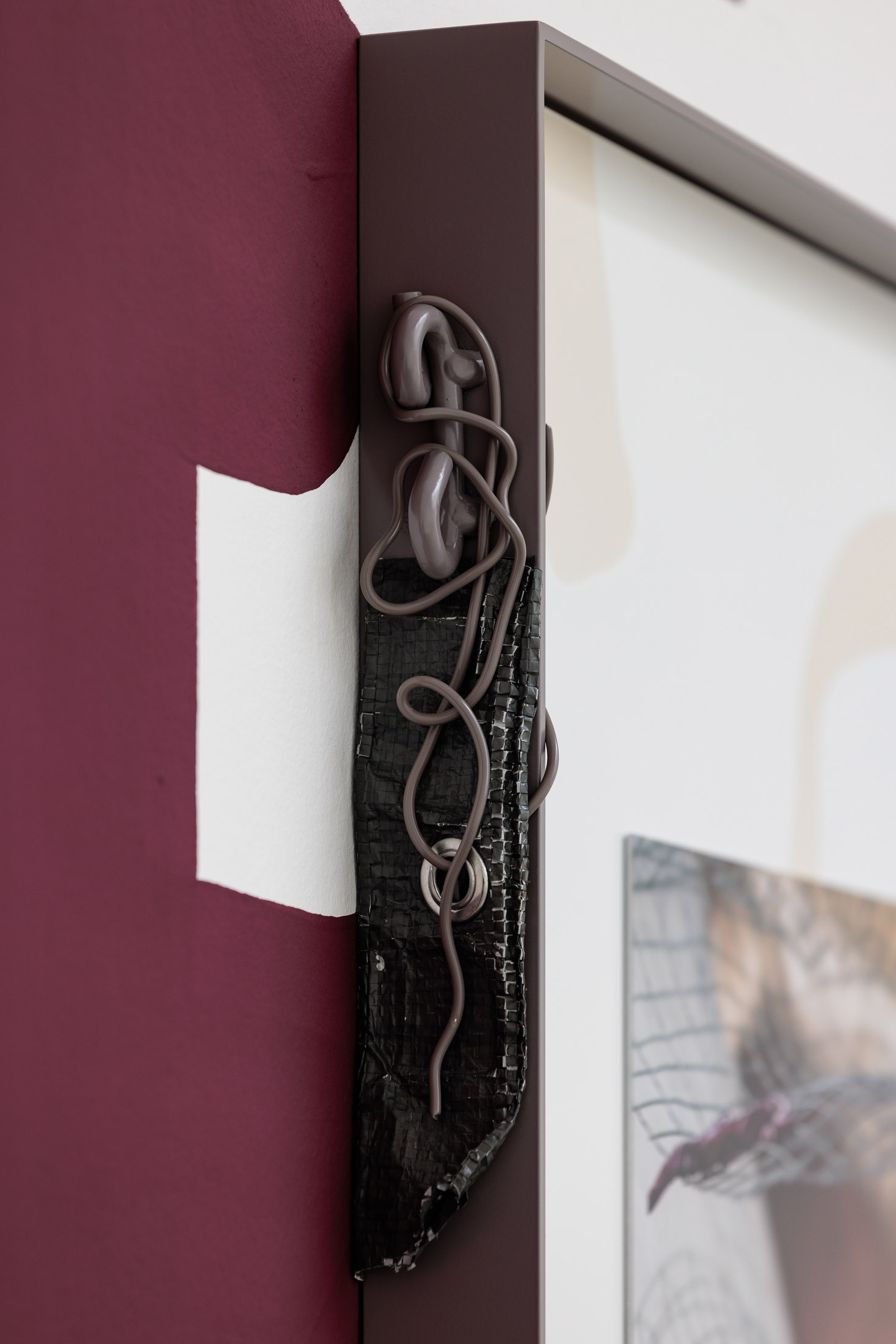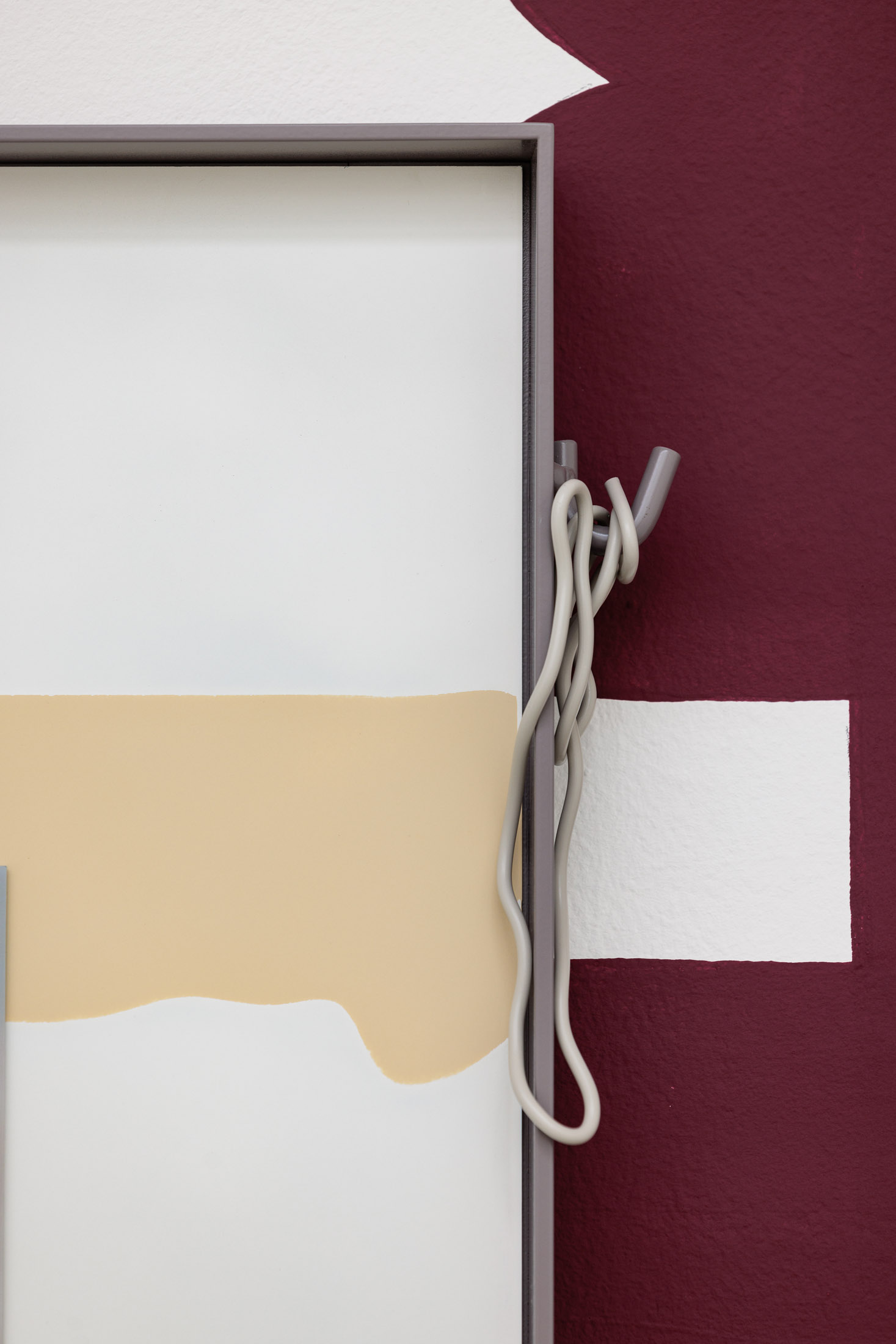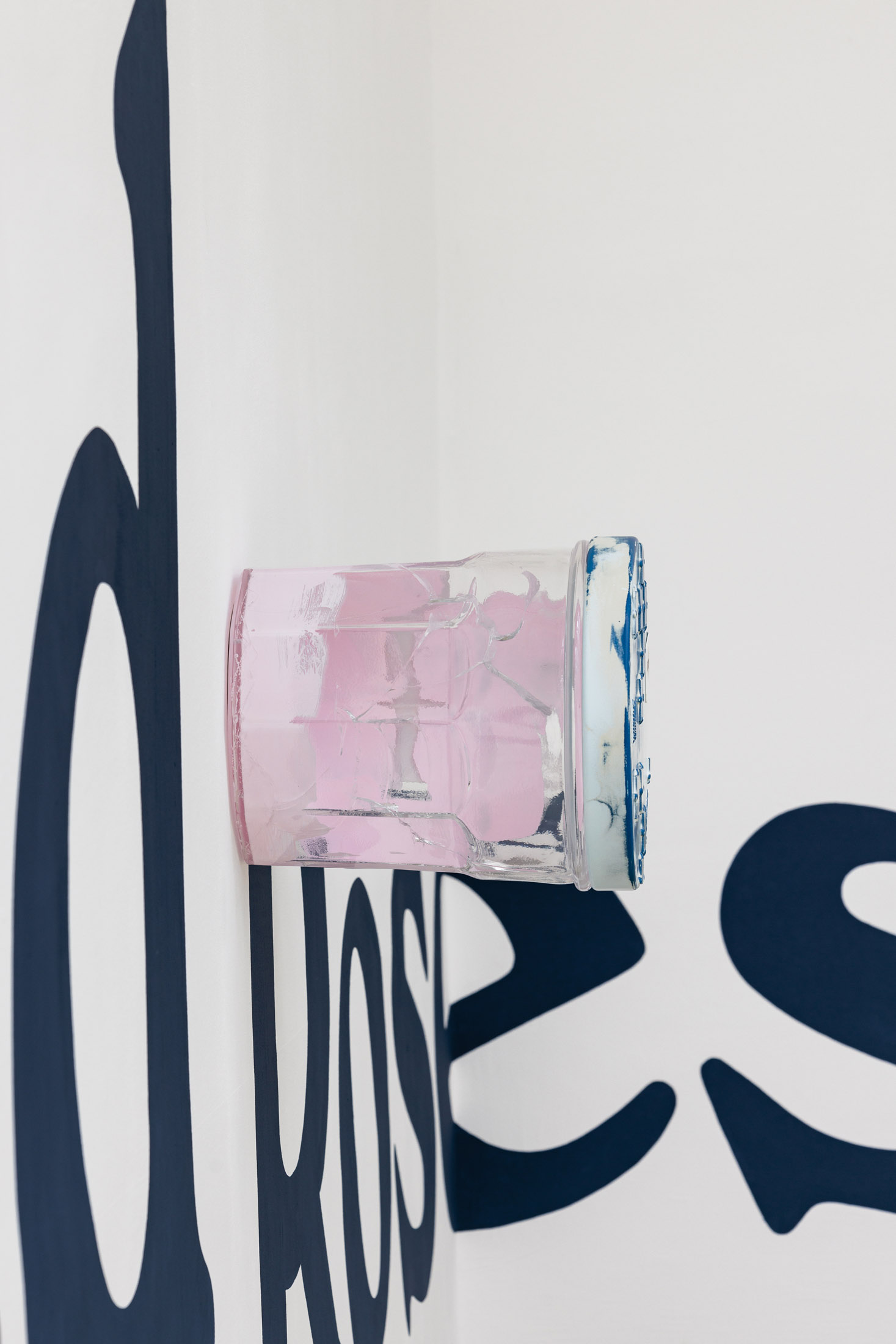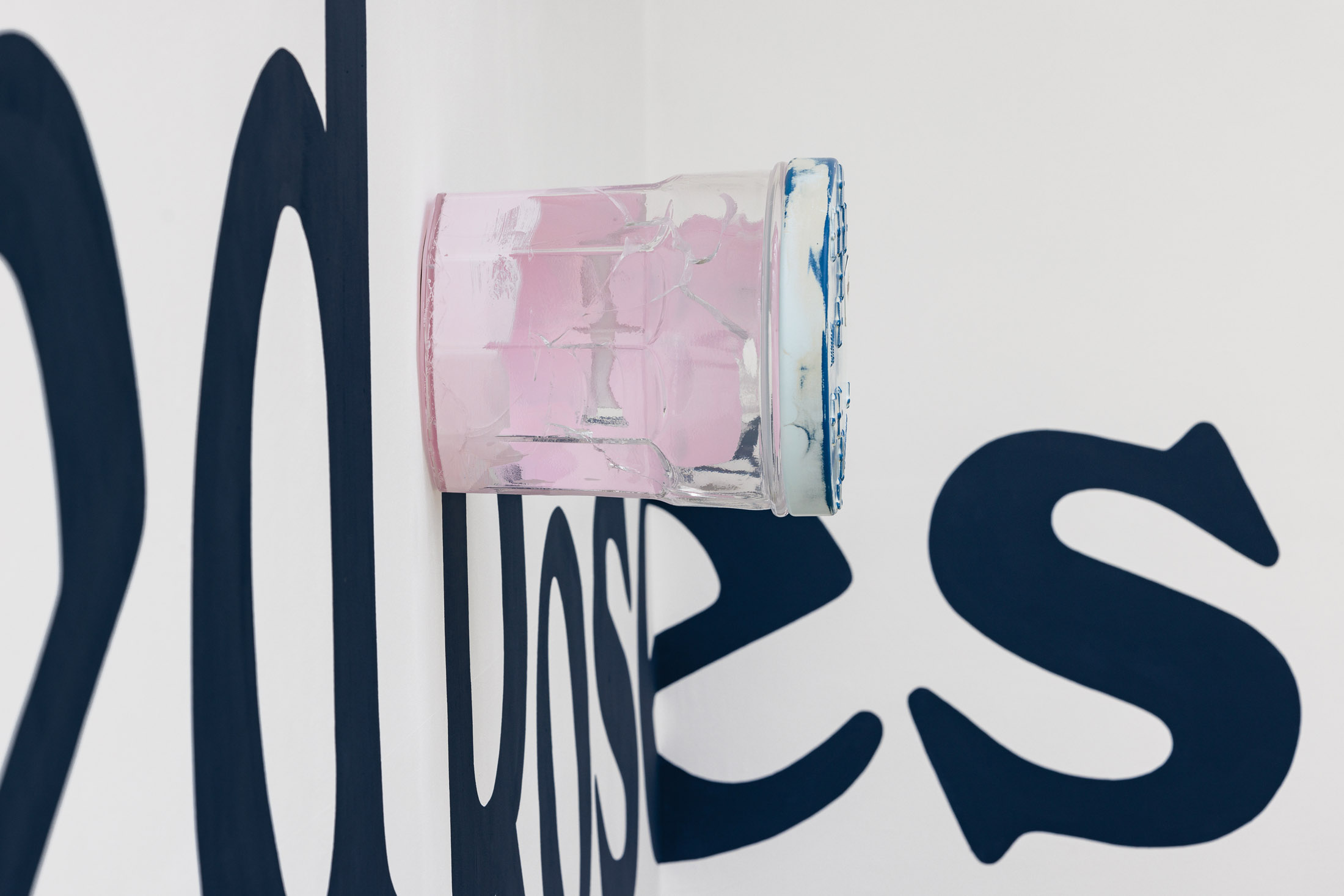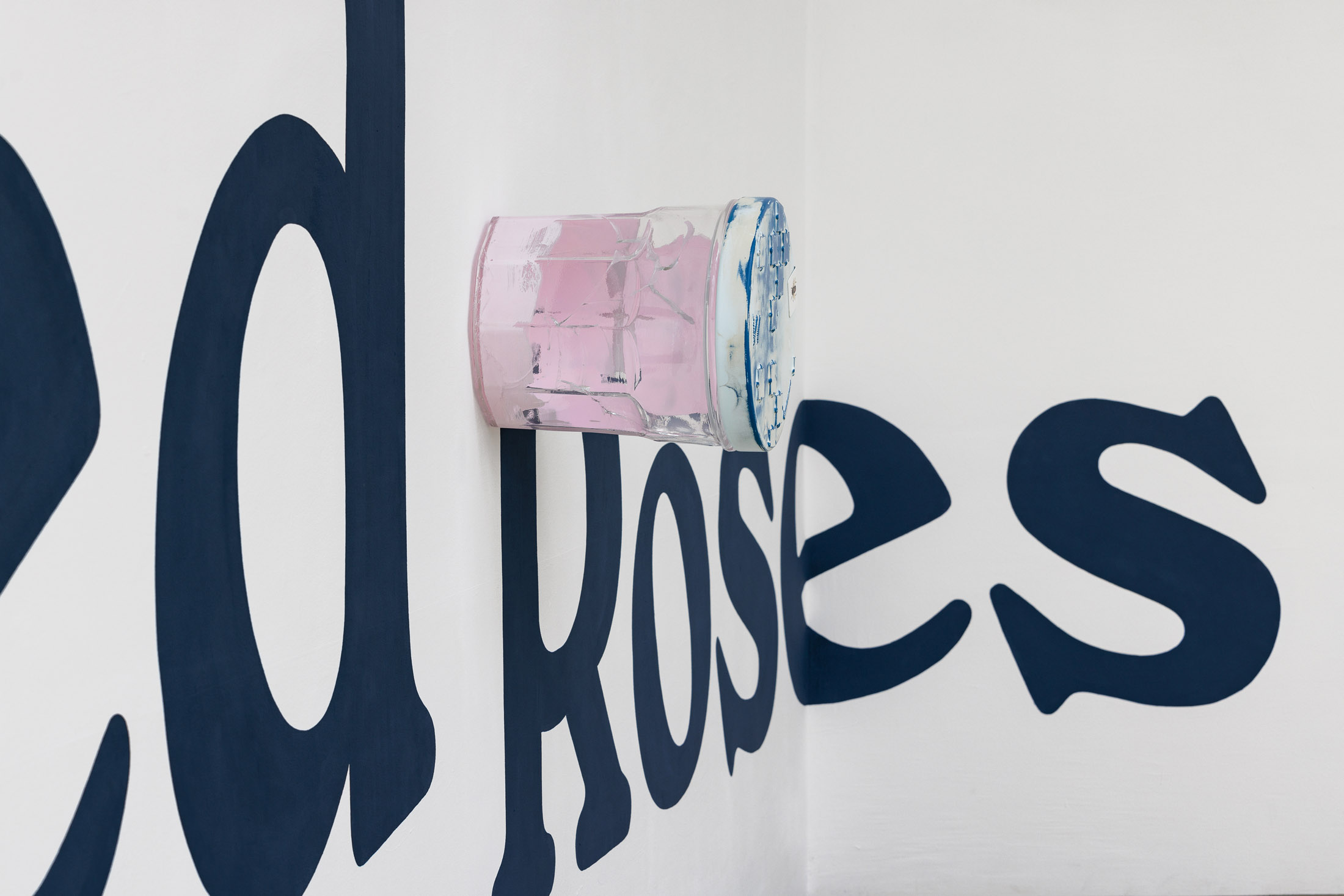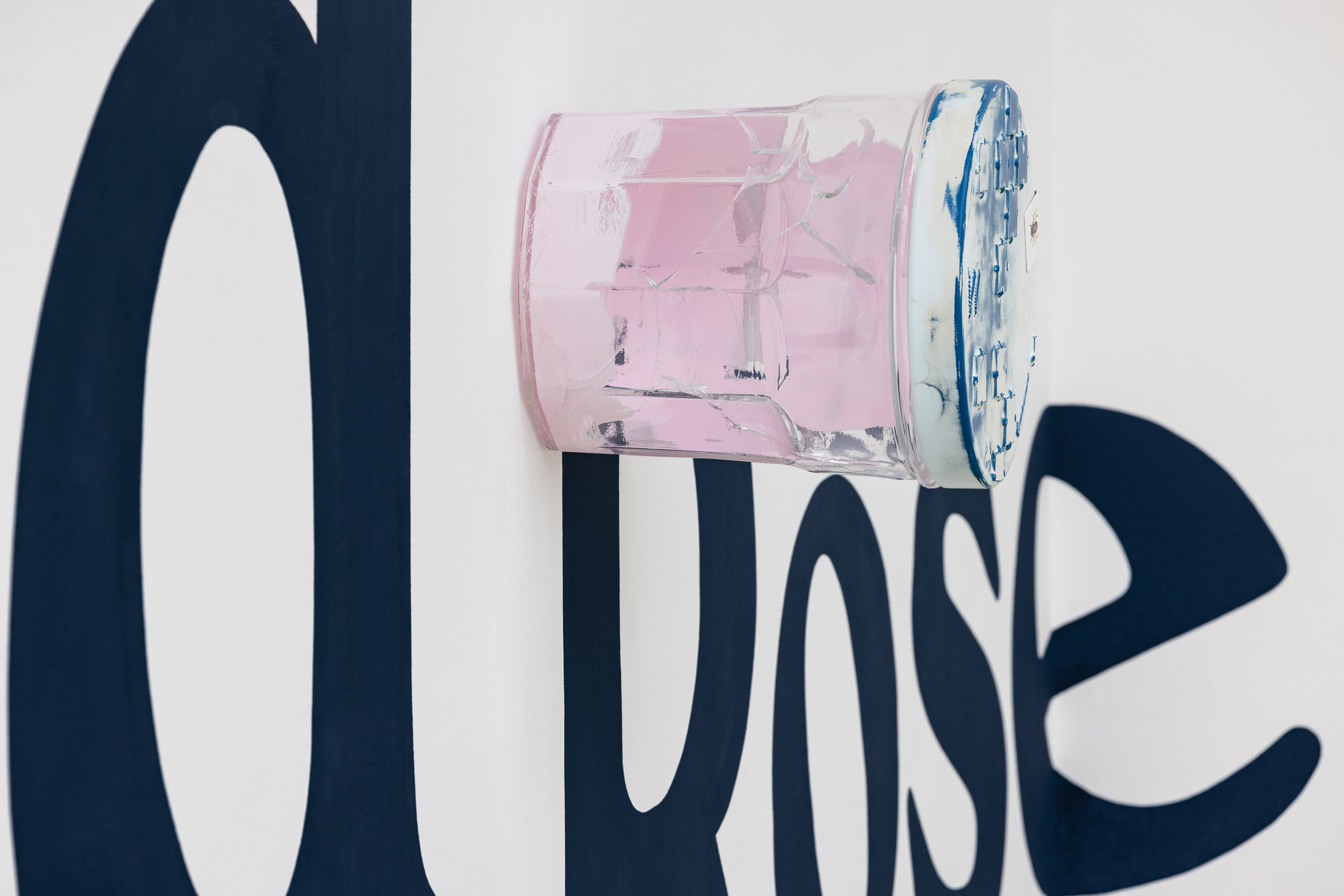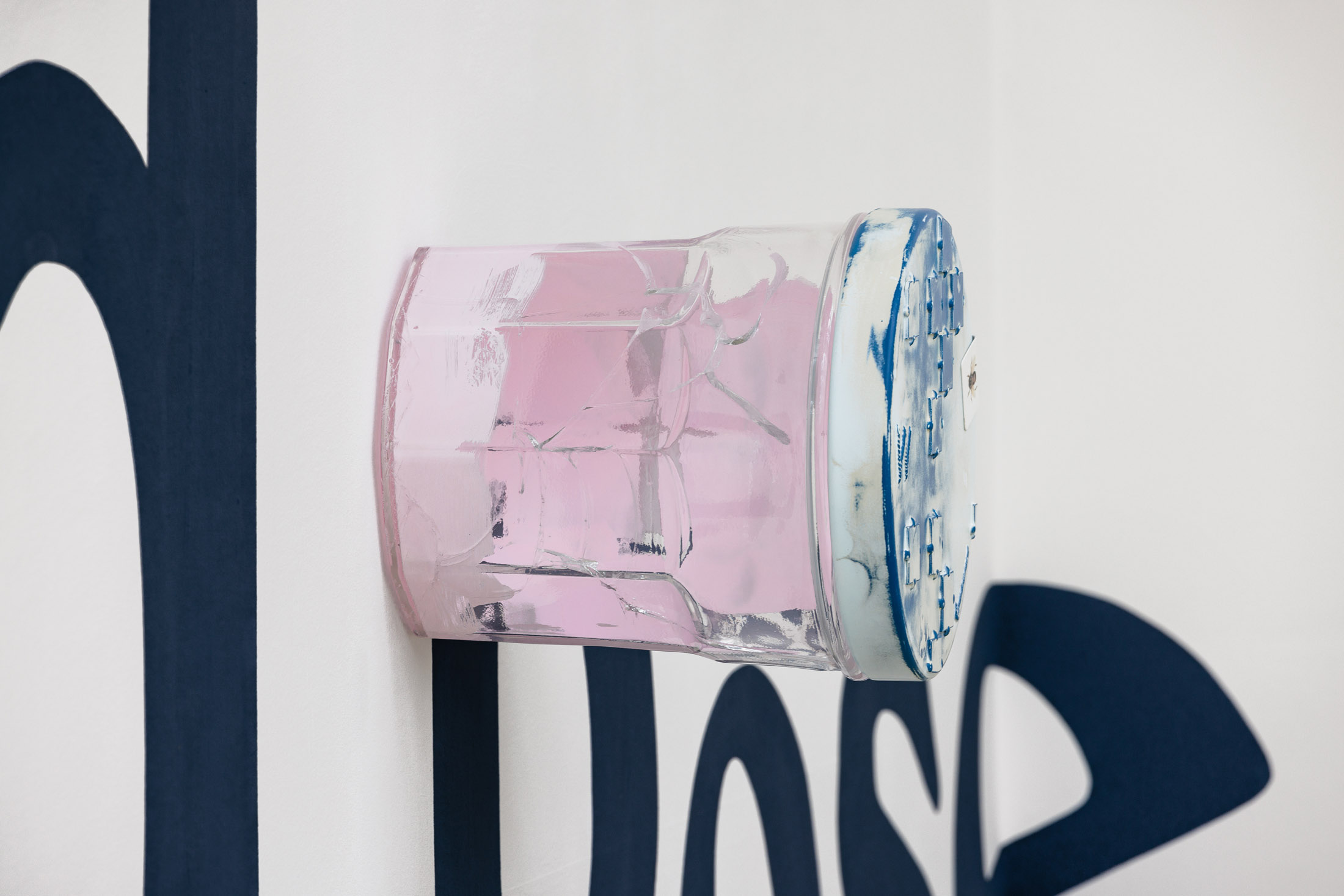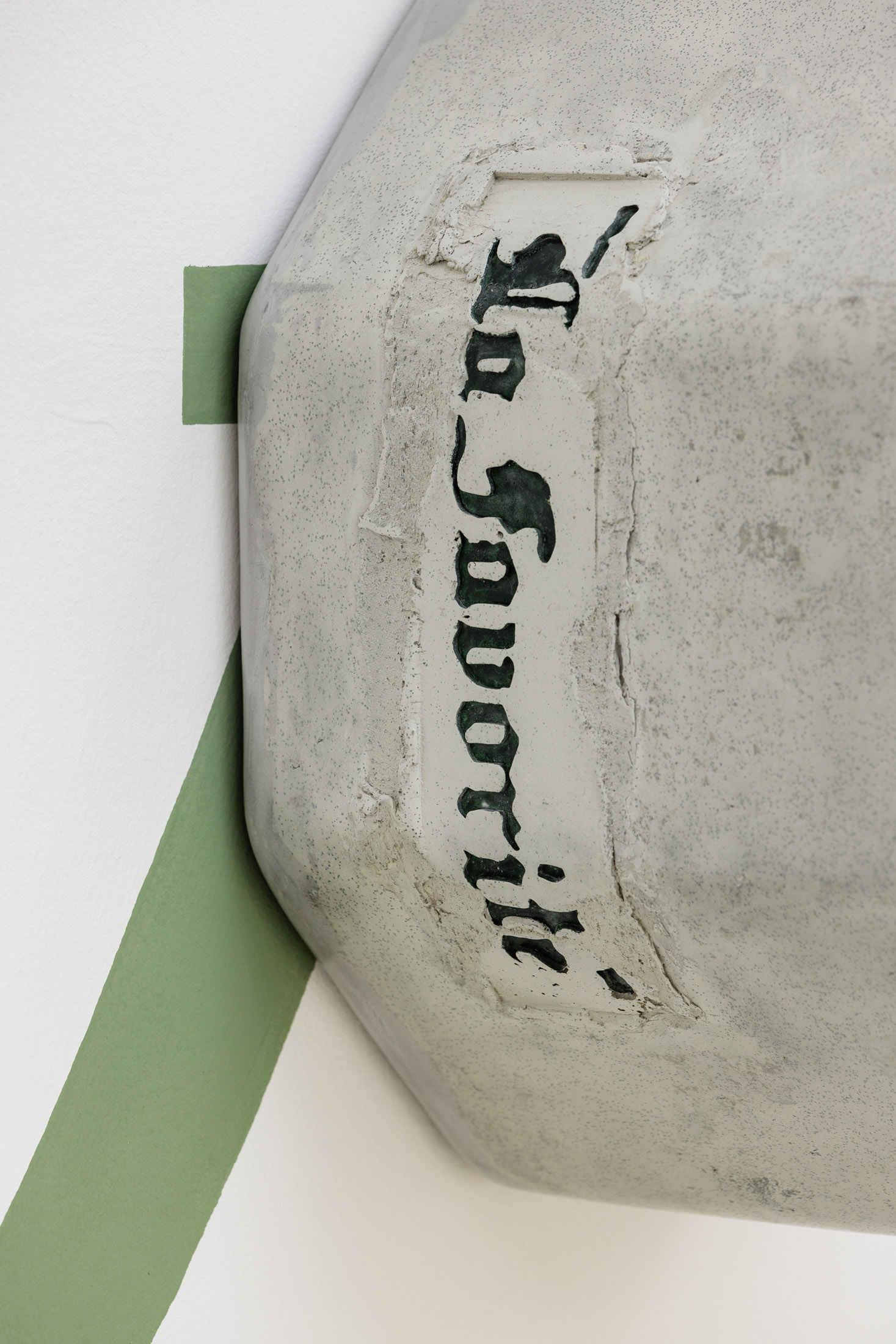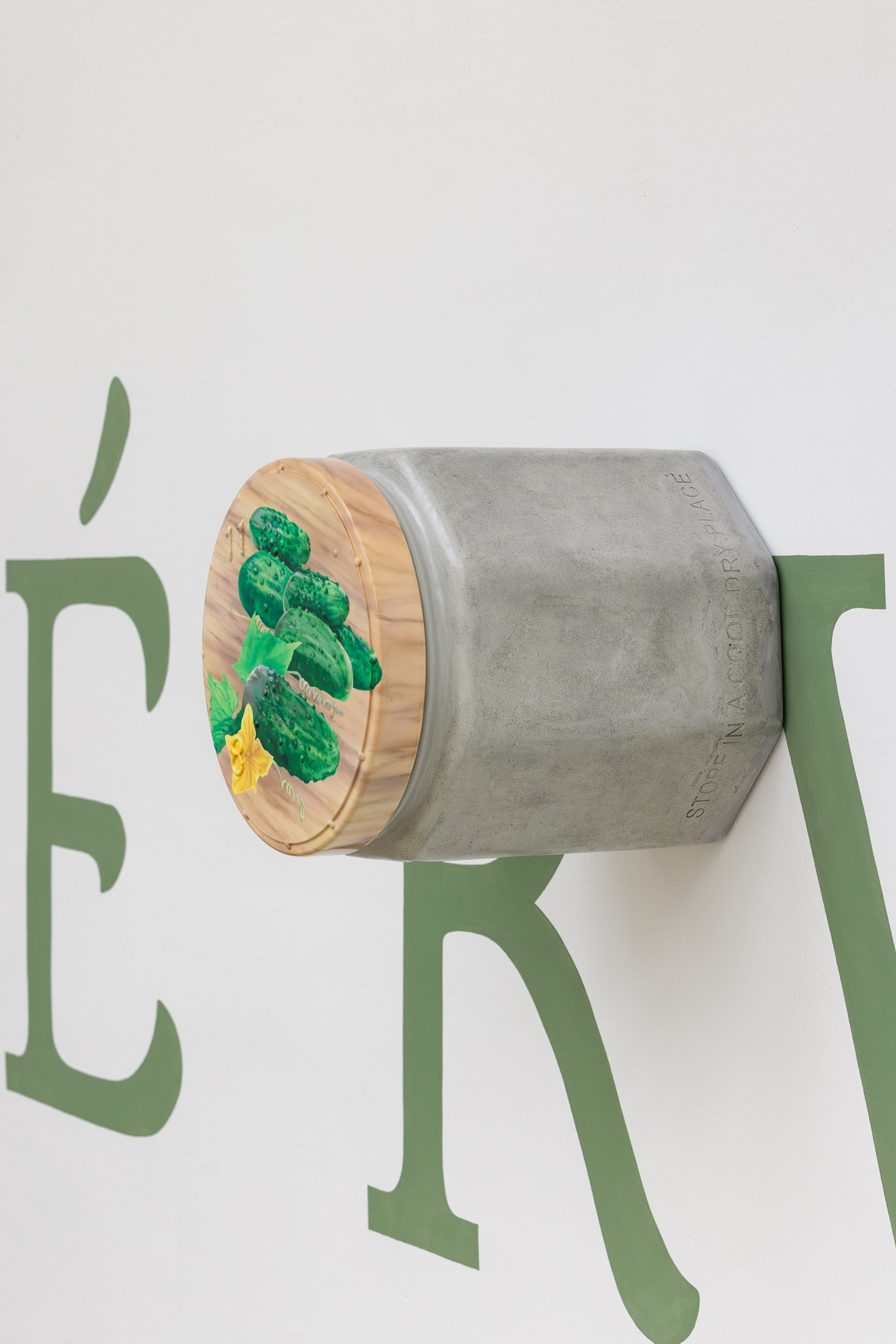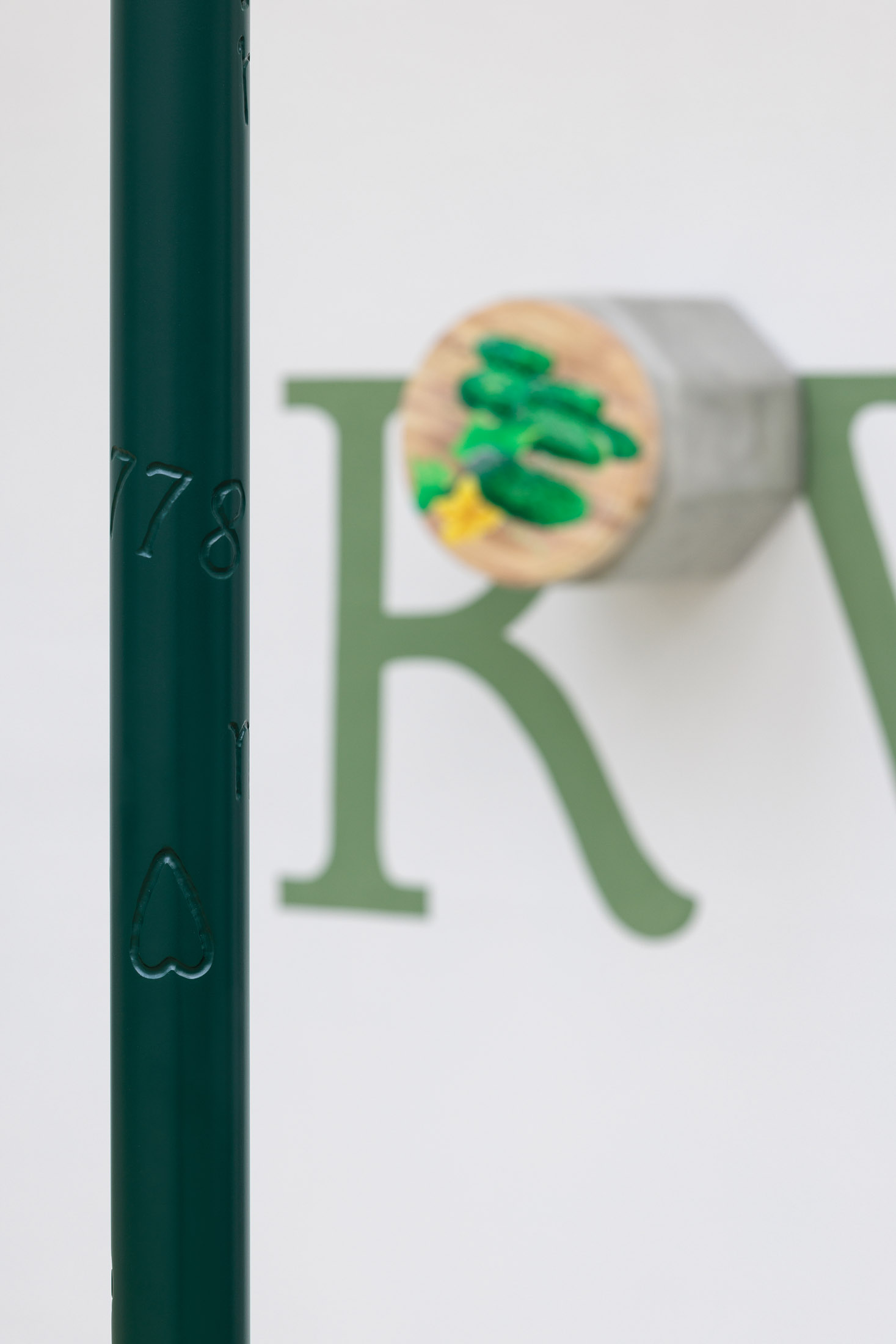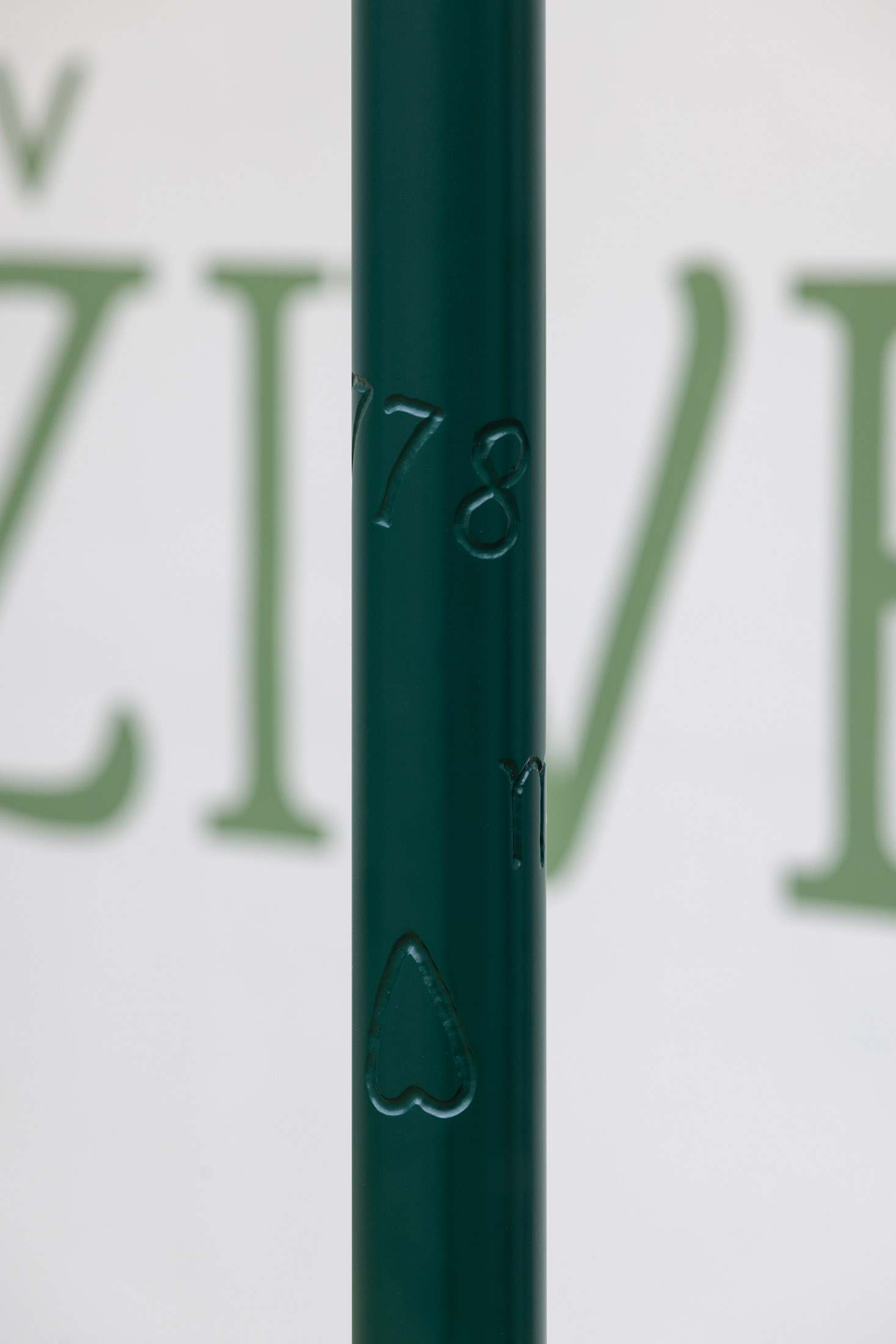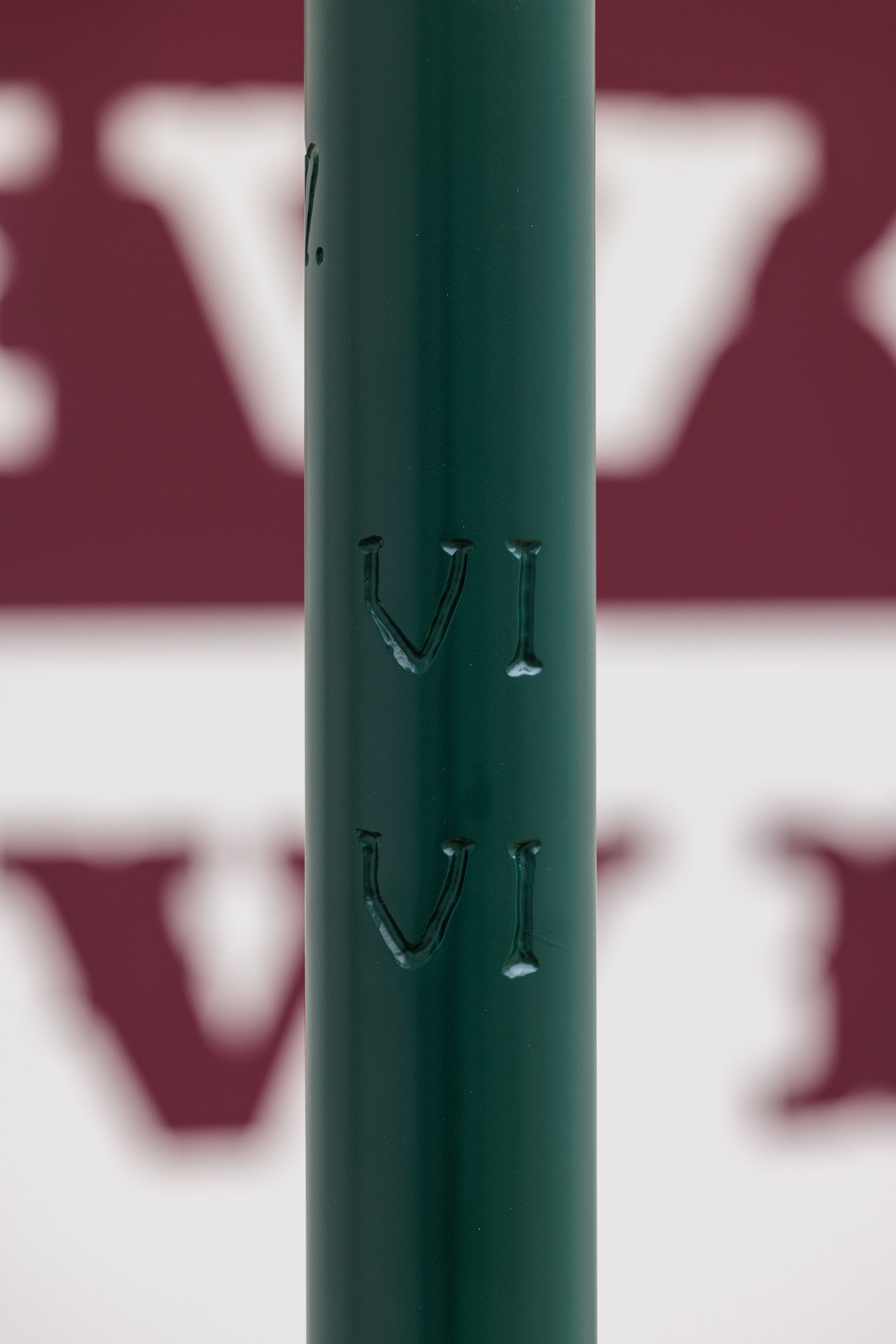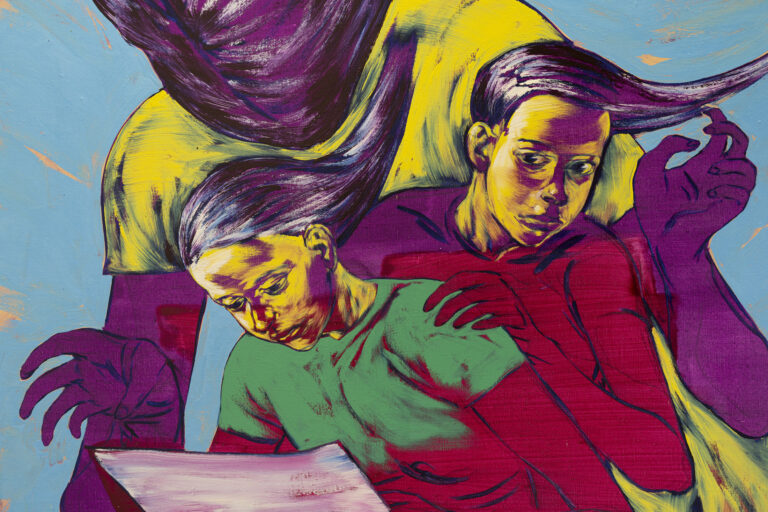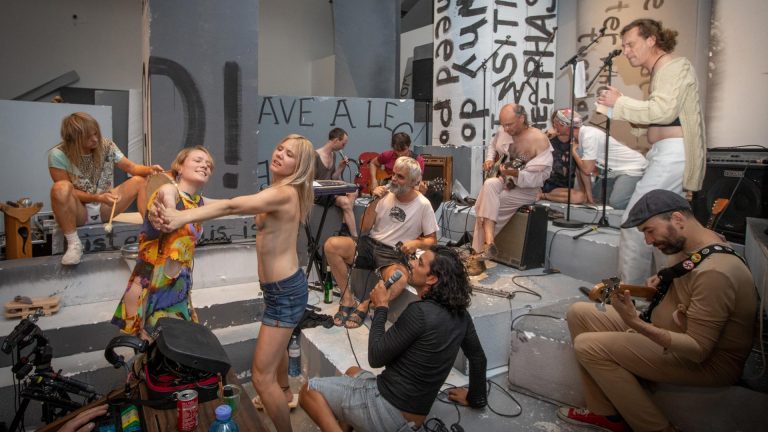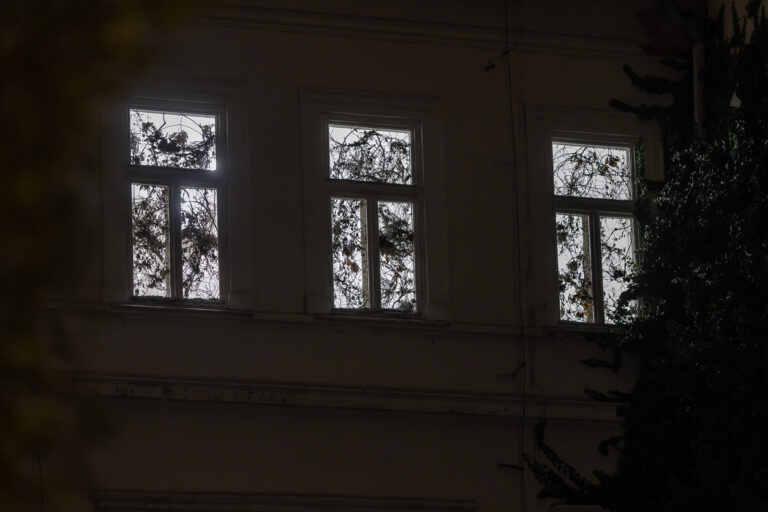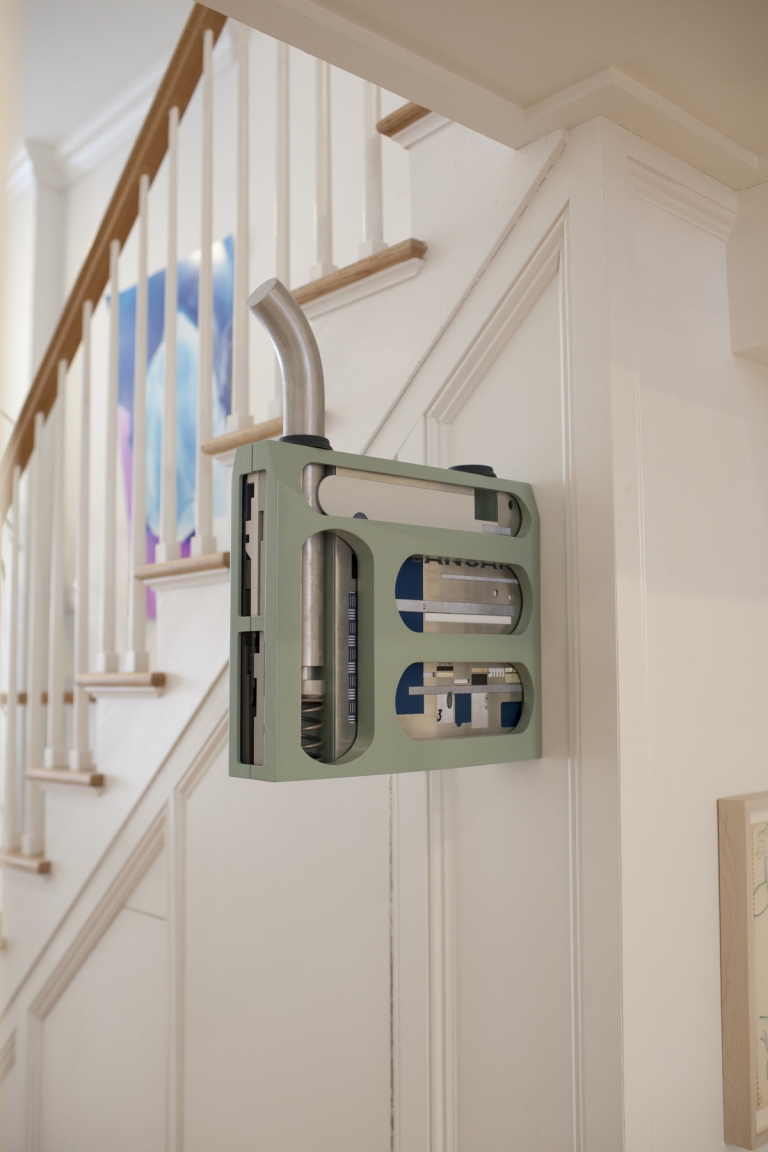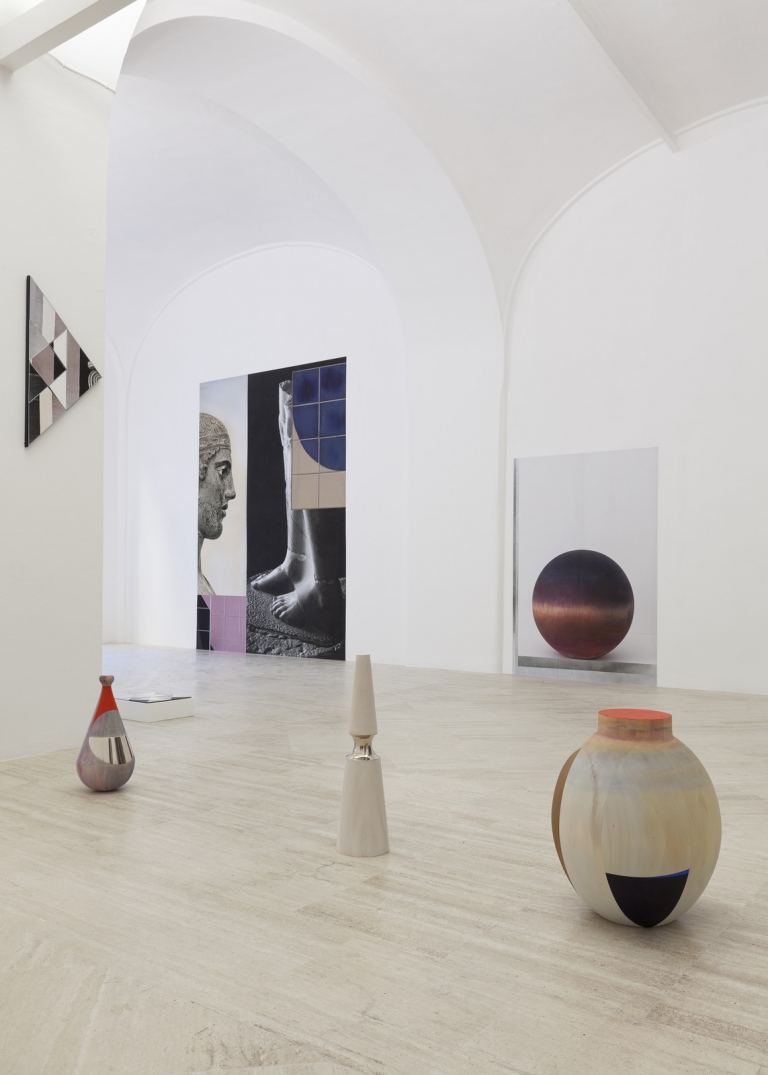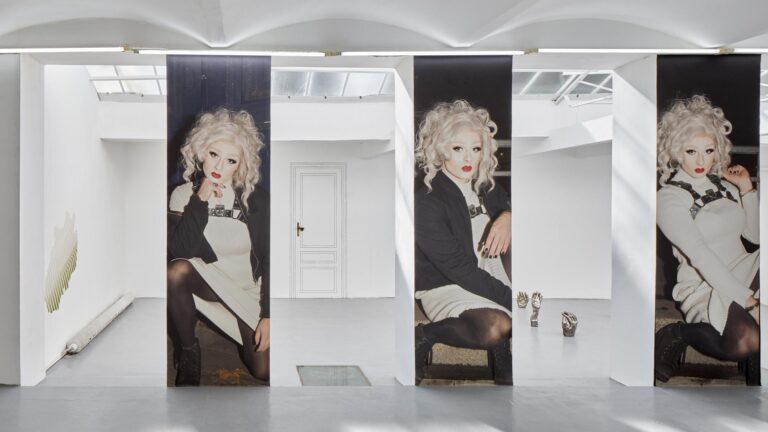Artist: Magali Reus
Exhibition title: Deeper Green
Curated by: Jen Kratochvil
Venue: Kunsthalle Bratislava, Bratislava, Slovakia
Date: September 6 – October 16, 2023
Photography: Manuel Carreon Lopez / All images copyright and courtesy of the artist, Kunsthalle Bratislava and their respective copyright owners
Note: Exhibition’s booklet is available here
The medium is the message, says someone in the line for cinema tickets —not really clear which part of the whole Barbieheimer, aka the last straw in the line of pre-strike marketing tricks they are aiming at—and they forget right away why they even say it and what it might have meant. We are outside of time, so the little comment defining it is deemed irrelevant. There is no Barbieheimer; therefore, there is no time, and vice-versa. Imagine a future. A future out of which you project to the past. Or the other way around. Imagine a different time than the one you’re living in right now. Imagine someone randomly thinking of an object from their childhood, or maybe, rather, something they’d heard of and never even seen or were confronted with in reality. That someone (a different someone than the one who said that the medium is the message) is imagining something. That thing they are imagining appears right in front of you, in variations, subtle differences, yet multiplied. And you ask, is this an orchard or a trans-atlantic liner, leaving the question behind, in confusion, and why did you even pose it in the first place. I mean, it’s not that difficult, just look at it, it’s a jar.
Did you know there was a colossal media upheaval around 2003, describing Microsoft PowerPoint as an instrument of our pending doom? Well, it was slightly less dramatic than that; basically, a theory has been discussed that proposes the reformulating of the human mind to slides and bullet points reduces our ability to think analytically and contextually. Some blamed the tragedy of the space shuttle Columbia earlier that year on PowerPoint, also for the tragic fiasco in Iraq. PowerPoint was likened to Stalin era ideological manipulation. In the Valhalla of Big Tech, Steve Jobs banned the use of PowerPoint in all their internal presentations. Twenty years later, and you might wonder. Did we? Did we all get stupid because of PowerPoint? We wouldn’t know, right? Because we’d be too stupid even to realize that.
Premeditated and meticulously harmonized and staged. Accidentally manifested. Handpicked, brought to life, and lovingly defined. Randomly occurring in space. A lamp post that might be a candle. No, it is not. Formulated, one by one, as a narrative, a story of many chapters, characters, and plot twists, navigated through time, openly manipulated to serve a purpose and to give a desired message. A courgette. A raspberry. An ear of corn. Mushrooms quietly growing inside small spaces of electric current. It’s August. Or is it? I’m slicing tiny pieces of red cabbage and starting to cry. What is love?
Memories. Organized. Yet in turmoil and constant movement. There are no bullet points. The ongoing reiteration of deeply ingrained and grainy outlines of memories. Forgetting is not a process but a state of stasis. Curation. A lived moment and its reconfiguration. Did you ever ride a hundred-year-old roller-coaster made of wood and metal? Not the hyper futuristic hydraulic, upside-down joyrides. No, not those. The green gets deeper with passing seconds, and who knows what range its tonality will develop by the journey’s end. Yet there is no end to it. Metal. Rattling. And the tickets are actually sold out. Who stands in lines these days anyway.
Deeper Green, Magali Reus’s first solo show in Slovakia, presents three bodies of new work by the artist, complimented by site-responsive interventions in the spaces of Kunsthalle Bratislava. The newly conceived constellation of the work positions itself in the main exhibition space of the late-modern building of the institution.
Deeper Green probes the limits of artificiality, the commodification of nature and the extractive logic of late capitalism. While engaging with the visual language of a new materiality educated by the digital literacy of the recent past, Reus brings together seemingly disparate industrial and handcrafted processes, and production methods, forming objects which oscillate on the border of the ready-made: elaborate assemblages that engage with a post-apocalyptic sculptural expressionism.
Reus’ recent work incorporates imagery of vegetable and plant life, commonly growing across the European continent and beyond. While the work points to the globalized agricultural market and its focus on monocultural production, it equally includes notions of personal reminiscences and memory. These seemingly contradictory languages set up frameworks that spark an interpretation imbued with nostalgia and sentiment.
References to nature and its evolving societal perception rub up against design and the politics of representation within a market-driven late-capitalist economy. Are we buying jam for its sweet strawberry taste or for its rusticlooking packaging? What connections exist between economy, design, politics, and individuation? And, in what manner can these be systematically represented? If we would think of strawberry jam as significant in an index of privilege – how do we make that jam accessible? How do we remember the taste of jam from childhood and how do we perceive that taste now? In what way do we understand a continuous expansion as opposed to a de-growth? Memory and future projection: endlessly allowing for a collapse into new unpredictables and possibilities.
-JK

